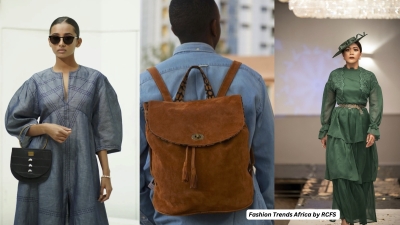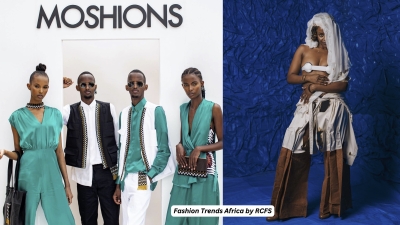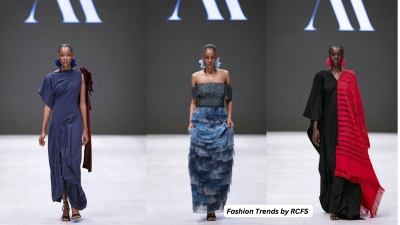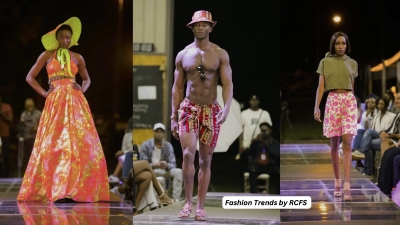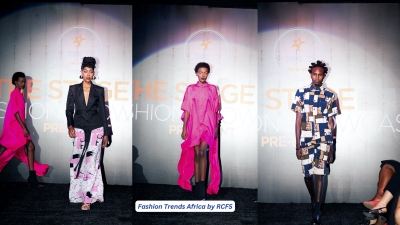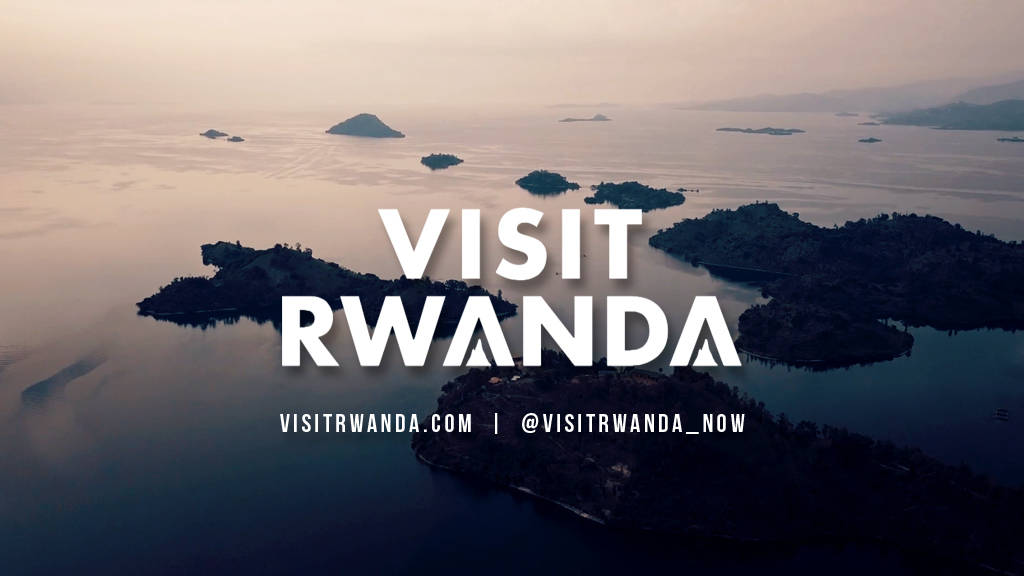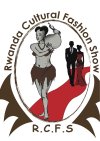
RCFS
BIGWI Collection: A Stunning Long Complete Suit Inspired by the Traditional Umushanana
In the vibrant world of fashion, where creativity knows no bounds, the Umuheto Creative has emerged with a groundbreaking creation that beautifully marries Rwanda's rich cultural heritage with contemporary style. After an extensive period of research and development, the fashion house has unveiled BIGWI, a stunning long complete suit that draws inspiration from the elegant traditional Umushanana outfit.
The BIGWI collection is a testament to the power of cultural fusion in fashion design. It showcases the brand's signature "Injishi" pattern in a striking black and white color scheme, creating a visual masterpiece that commands attention and admiration. This exquisite outfit is versatile enough to grace weddings, and special events, and serve as a unique experience for visitors seeking to immerse themselves in Rwandan tradition with a modern twist.
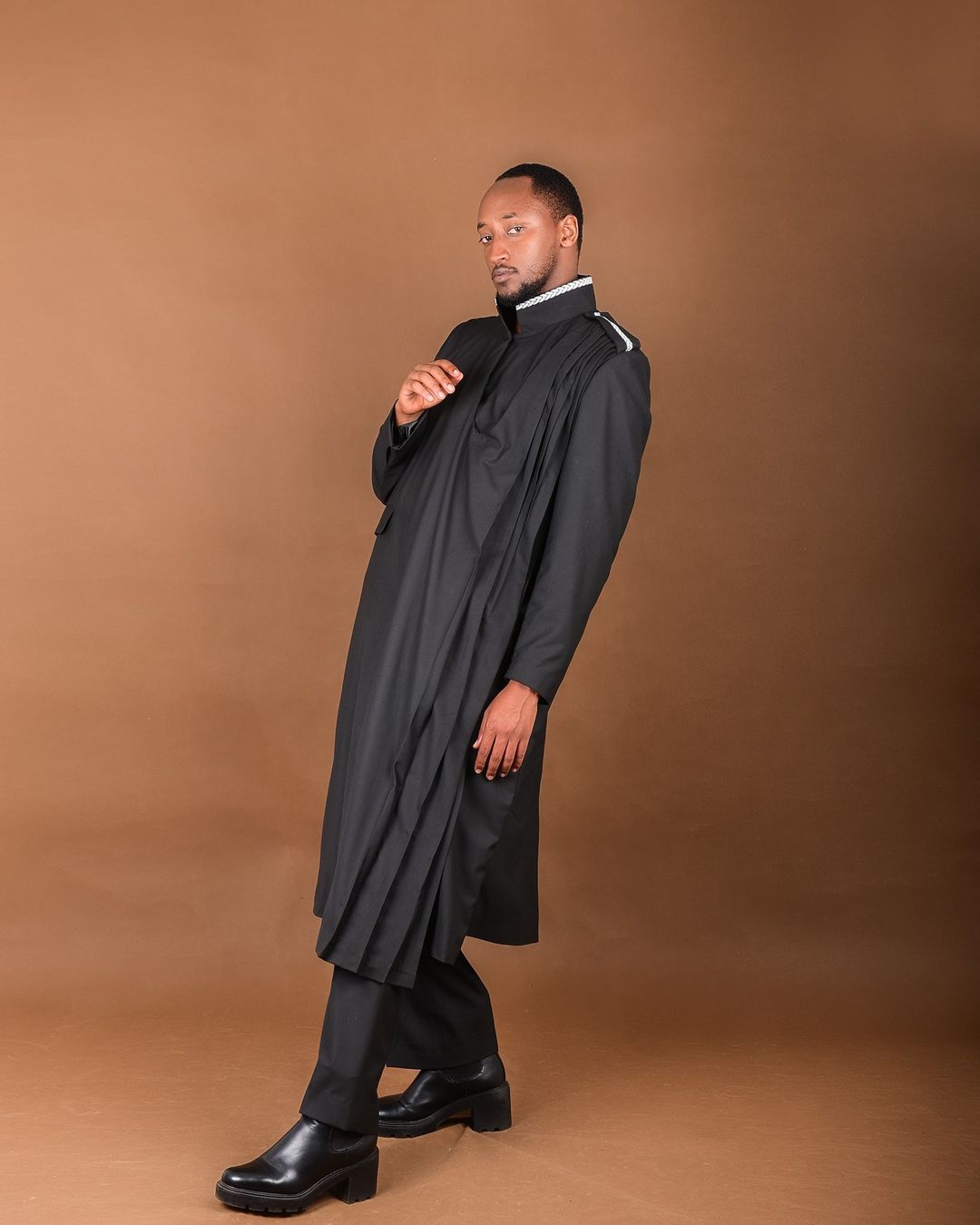 [PHOTO: BIGWI Collection by Umuheto Creative]
[PHOTO: BIGWI Collection by Umuheto Creative]
Fashion and culture are inextricably linked in Rwanda, as they are in many countries around the world. The interplay between these two elements provides a rich tapestry of inspiration for designers and creators. Umuheto Creative has expertly tapped into this cultural wellspring to craft a unique identity in the fashion landscape.
Talento UMUHETO, the visionary behind the brand, explains, "Our brand is built from the inspiration of our culture as Rwandans and as Africans, as well as the environment around us. We want to create a variety of designs so that when a client comes to our shop, they are able to find what they want."
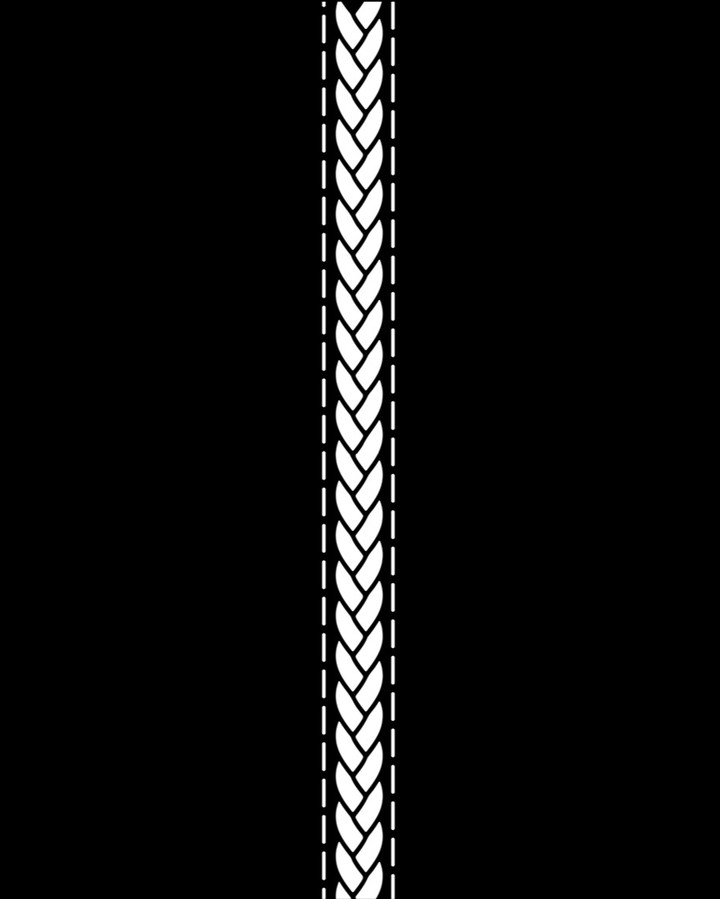 [PHOTO: The brand's signature "Injishi" pattern in a striking black and white color scheme]
[PHOTO: The brand's signature "Injishi" pattern in a striking black and white color scheme]
To fully appreciate the significance of the BIGWI collection, it's essential to delve into the historical context of Rwandan clothing. Before the introduction of European and Asian garments, Rwandans crafted a diverse array of outfits primarily using vegetable fibers and animal skins. These creations spanned all levels of society, from the royal court to the villages and hills.
Some notable traditional Rwandan garments include Impuzu: Clothes made from the pounded bark of the ficus tree, worn by adults. Uruyonga: Woven plant fiber garments worn by children between the ages of 6 and 10. Inshabure: Sophisticated clothing made from the hide of a young calf, worn by both men and young girls and the Umushanana: A ceremonial attire consisting of a floor-length skirt with a sash draped over one shoulder, worn by both men and women.
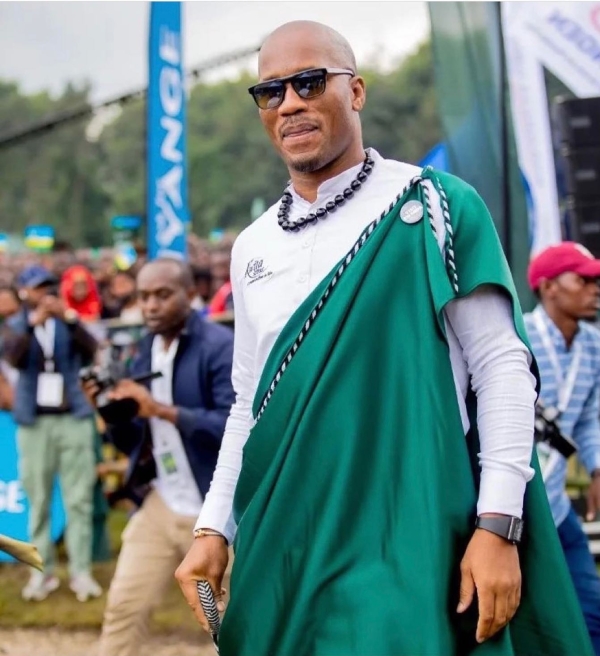 [PHOTO: Kwita Izina Guest wearing Umushanana]
[PHOTO: Kwita Izina Guest wearing Umushanana]
It is the Umushanana that serves as the primary inspiration for the BIGWI suit, reimagining this traditional garment for the modern era. The Umuheto Creative, founded in 2020 by Olivier Harerimana, also known as Talento UMUHETO, has taken on the challenge of preserving and evolving Rwandan cultural dress.
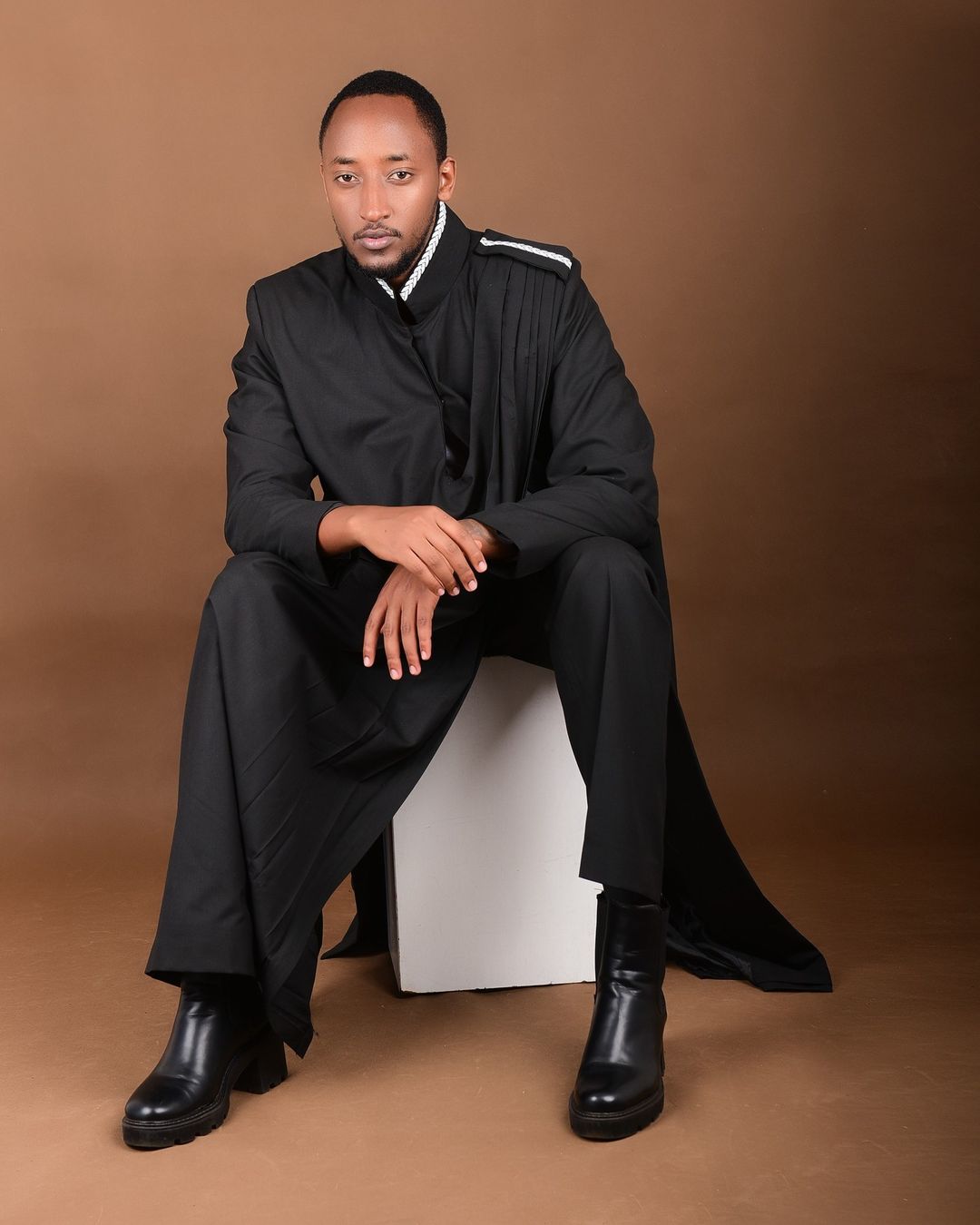 [PHOTO: BIGWI Collection by Umuheto Creative]
[PHOTO: BIGWI Collection by Umuheto Creative]
Talento UMUHETO emphasizes the importance of their work, stating, "We send a message to our community through the clothes and styles we make. We want to inspire the community around us, especially when they see our designs."
The BIGWI collection represents more than just a fashion statement; it is a cultural ambassador, bridging the gap between Rwanda's rich heritage and its contemporary identity. By incorporating traditional elements into modern designs, Umuheto Creative is not only preserving cultural practices but also making them relevant and appealing to a new generation of fashion-conscious individuals.
“BIGWI collection honors our tradition while embracing innovation inside our brand. The signature Injishi pattern, rendered in a sophisticated black and white palette, adds a layer of visual interest and cultural significance to the garment. We invite Rwandans to come visit the shop” says Talento Umuheto
Alex Muhire is a fashion enthusiast and he appreciates the BIGWI suit “Wearing the BIGWI suit is an opportunity to connect with our roots and express our cultural pride in a contemporary context”.
According to Talento Umuheto for international visitors, BIGWI offers a unique way to experience and appreciate Rwandan culture through fashion. “This cross-cultural appeal is a testament to the universal language of style and the power of fashion to transcend borders”
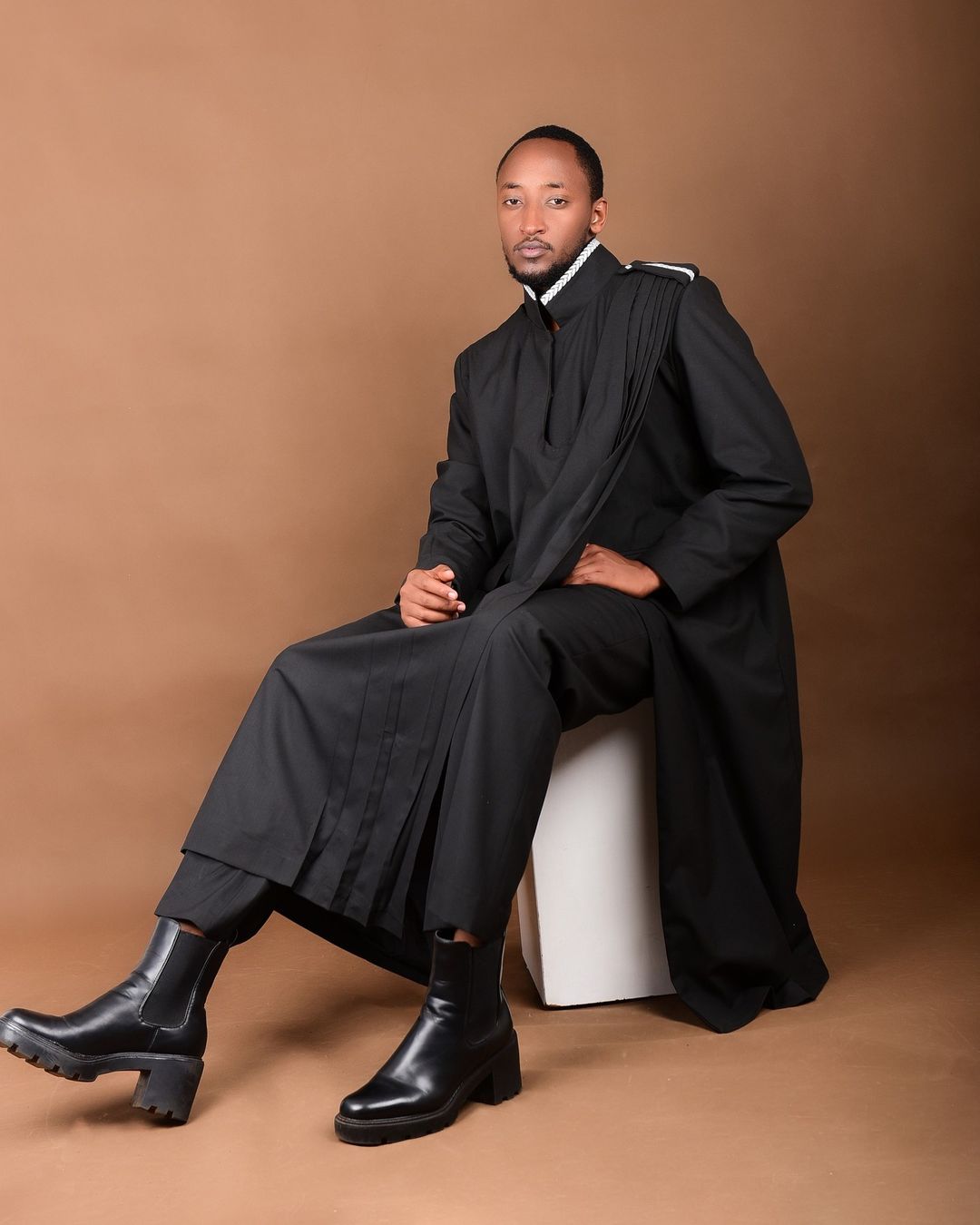 [PHOTO: BIGWI Collection by Umuheto Creative]
[PHOTO: BIGWI Collection by Umuheto Creative]
The impact of the BIGWI collection extends beyond the realm of fashion. It serves as a catalyst for conversations about cultural preservation, identity, and the role of traditional craftsmanship in the modern world. By showcasing Rwandan design on a global stage, Umuheto Creative is contributing to the country's growing reputation as a hub of creativity and innovation.
The BIGWI collection by Umuheto Creative is more than just a stunning suit; it is a celebration of Rwandan culture, a bridge between tradition and modernity, and a beacon of inspiration for the fashion industry. As it continues to captivate audiences both in Rwanda and beyond, the BIGWI suit stands as a powerful symbol of cultural pride and creative innovation, paving the way for a future where fashion and heritage coexist in harmony.
What Should Kenyan Models Expect from Africa's Next Super Model 2024 by ISIS
The modeling industry in Africa has been undergoing a significant transformation in recent years, with agencies and initiatives aimed at showcasing African talent on the global stage. At the forefront of this revolution is the ISIS modeling agency, founded by Nigerian businesswoman Joan Okorodudu. ISIS has played a pivotal role in elevating African models to international prominence, and one of its flagship programs, Africa's Next Super Model, is set to return to Nairobi in 2024.
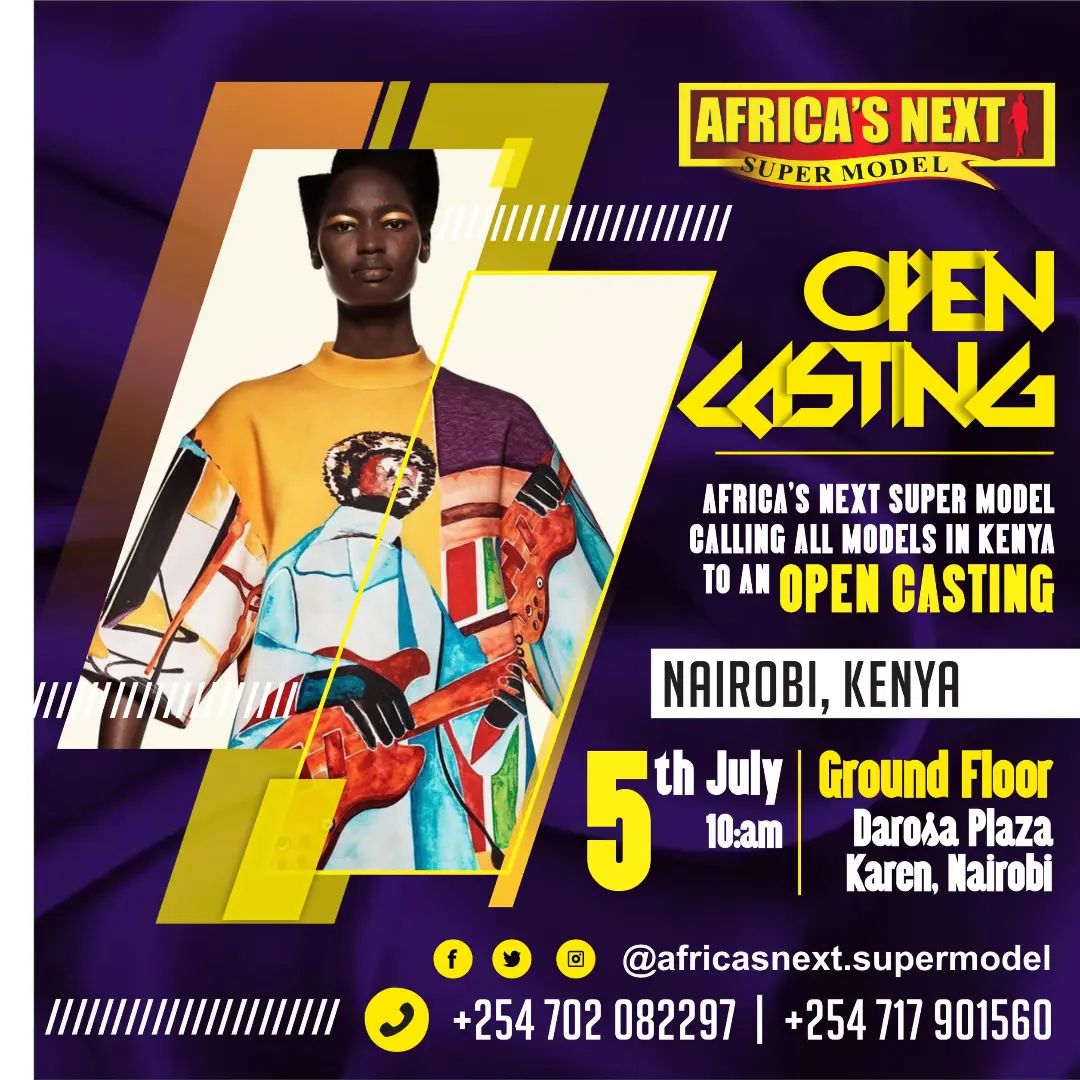
[POSTER: Africa's Next Super Model 2024 casting call is scheduled on the 5th of July in Nairobi-Kenya]
As aspiring Kenyan models prepare for the upcoming casting call, it's essential to understand what they can expect from this prestigious event and the opportunities it may present. This article delves into the background of Africa's Next Super Model, its impact on the African modeling scene, and what participants should anticipate in the 2024 edition.
Africa's Next Super Model was conceived as a platform to discover, nurture, and promote African modeling talent. According to Joan Okorodudu, the CEO and founder of ISIS, the core mission of the program is to "empower and elevate African talent onto the global stage." By providing a showcase for emerging models and designers, Africa's Next Super Model aims to launch successful and profitable careers in the international fashion industry.
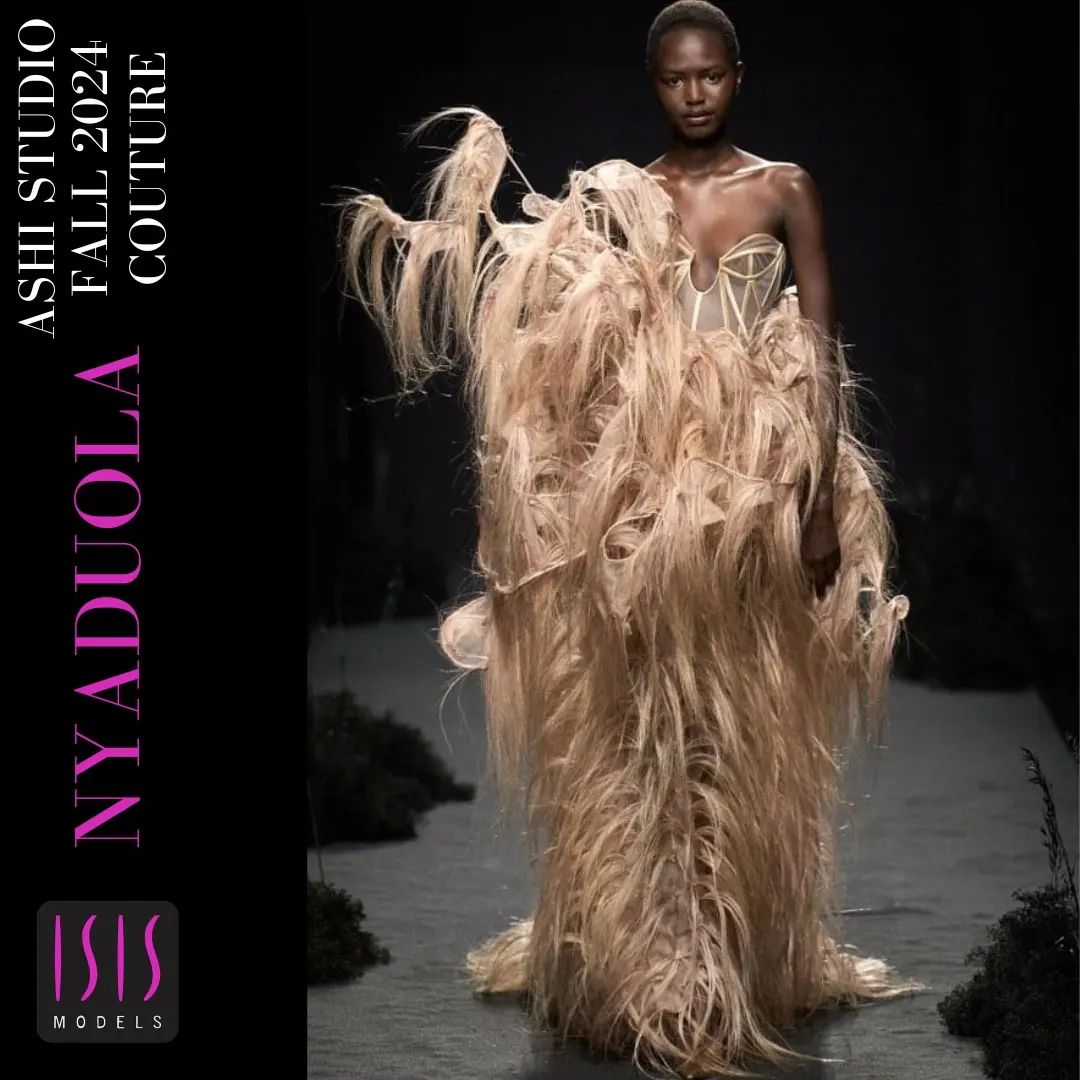 [PHOTO: ISIS's Model on the runway]
[PHOTO: ISIS's Model on the runway]
The decision to host the event annually in Nairobi underscores the growing importance of East Africa in the global fashion landscape. As Okorodudu stated in 2023 after a successful edition, "Africa's Next Super Model will be happening in Nairobi every year." This commitment to the Kenyan capital offers local models a unique opportunity to shine on their home turf while competing against talent from across the continent.
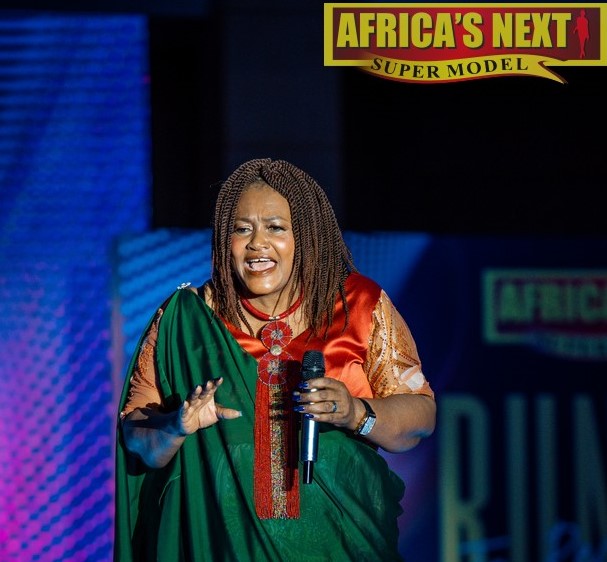
[PHOTO: Founder of the ISIS Models Ms Joan Okorodudu]
The anticipation for Africa's Next Super Model 2024 is building, with the casting call scheduled for July 5th in Karen, Nairobi, which serves as the headquarters for ISIS in the East African region. However, the announcement has left some aspiring models with questions and concerns about the selection process and their chances of success.
One of the primary issues raised by potential participants is the lack of clear criteria for the casting call. The communication materials published on ISIS's social media platforms, including Instagram, have been sparse on details regarding the requirements for attendance. This ambiguity has led to speculation and uncertainty among the modeling community.
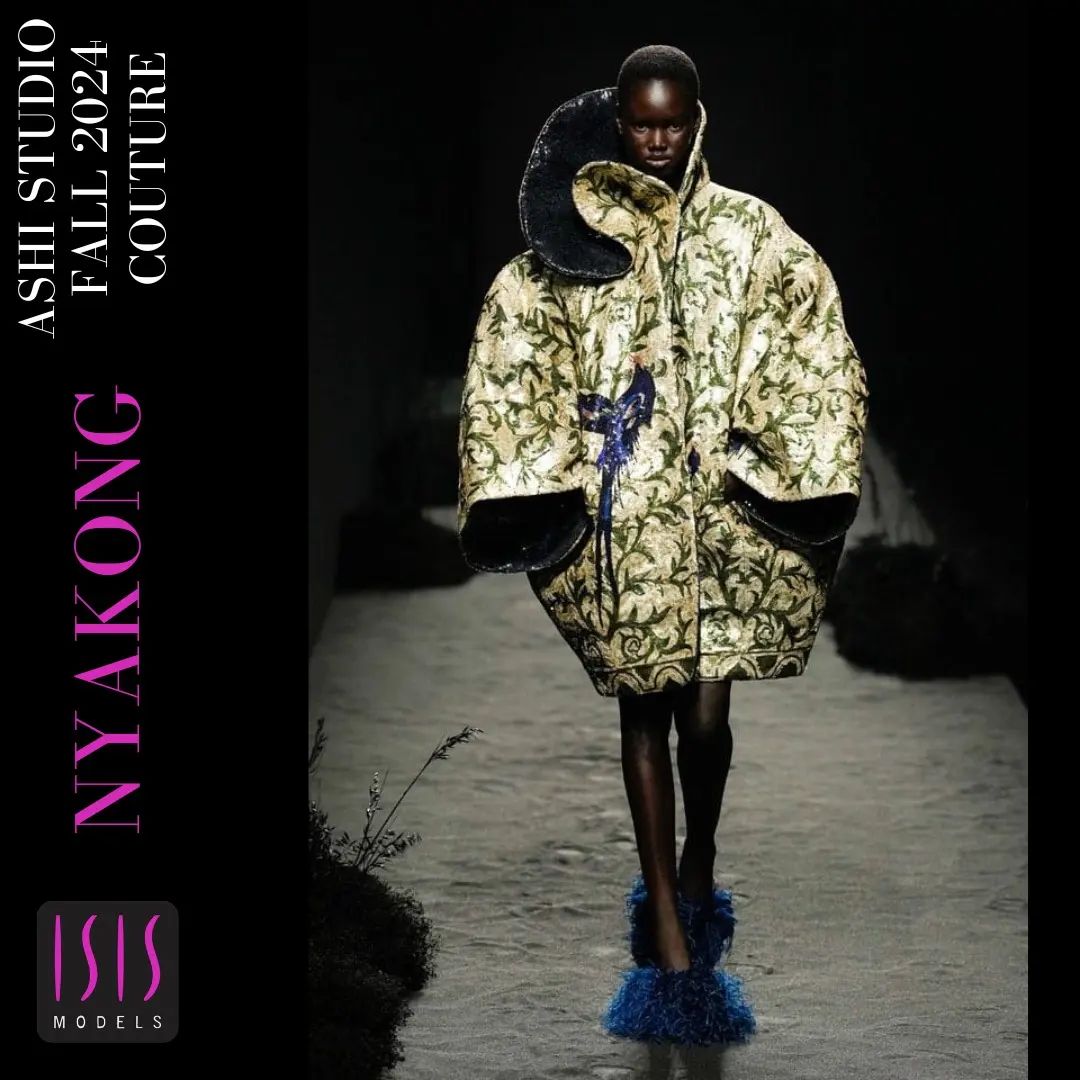 [PHOTO: ISIS's Model on the runway]
[PHOTO: ISIS's Model on the runway]
Some models have expressed skepticism about their chances of winning, citing the presence of more established and well-known competitors. One model, speaking anonymously to RCFS's Media, shared, "I will go, but I am not sure if I will win. There are many models here in Kenya who are known better than me, and they will also come." This sentiment reflects a common concern among emerging talent: the perception that visibility and existing popularity may play a significant role in the selection process.
Another model added fuel to this speculation, stating, "My friend told me that according to their previous casting, they choose a model who is already known on social media to boost their visibility." While this claim remains unverified, it highlights the importance of social media presence in today's modeling industry and the potential advantages that come with a strong online following.
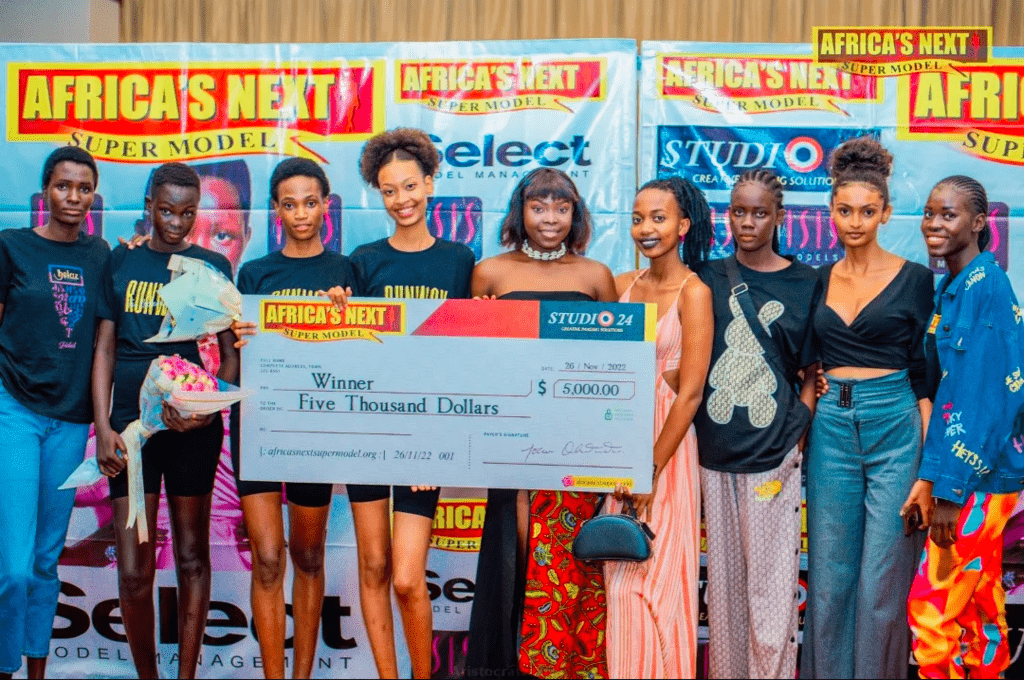 [PHOTO: ISIS Models pays money to the winner]
[PHOTO: ISIS Models pays money to the winner]
Despite these concerns, the success of previous winners serves as an inspiration to many aspiring models. Chol Khan, a 19-year-old model from South Sudan, emerged victorious as Africa's Next Super Model 2023, beating out 34 other finalists. Khan's win demonstrates the life-changing potential of the competition and the doors it can open for talented individuals from across the continent.
Reflecting on her victory, Khan shared, "I didn't know I would be the winner because all the other finalists looked perfect. I was extremely excited about it when I was announced the winner." Her experience underscores the competitive nature of the event and the high caliber of talent it attracts.
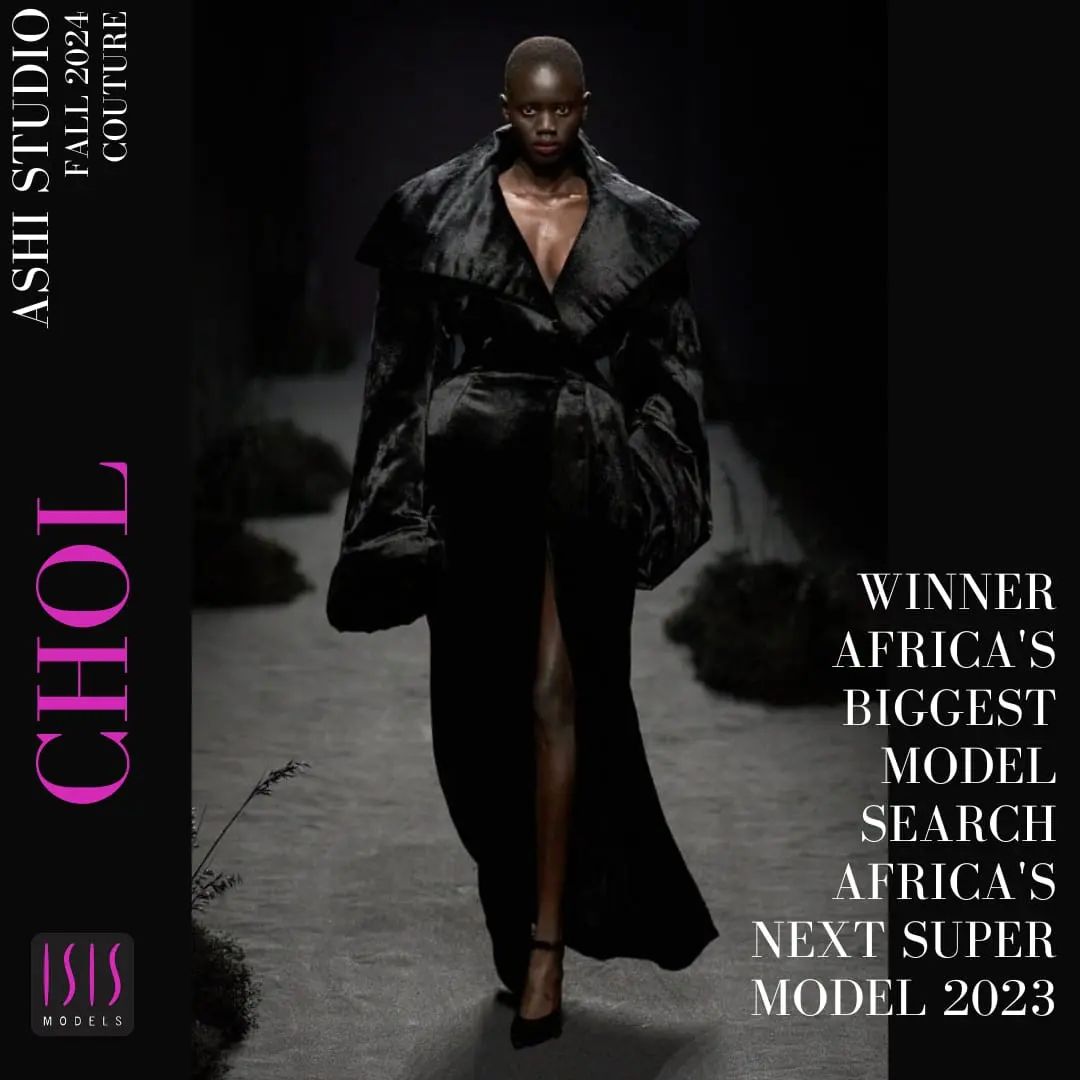 [PHOTO: ISIS's Model the winner of the Africa's Next Super Model 2023 on the runway]
[PHOTO: ISIS's Model the winner of the Africa's Next Super Model 2023 on the runway]
While Africa's Next Super Model has undoubtedly created opportunities for many aspiring models, it has not been without its challenges and criticisms. Some models have raised concerns about the short notice given for the 2024 casting call. As one model pointed out, "The poster calling for the casting was published on June 29th, 2024, which means that the casting is in 6 days. I don't think many models will know about this as they don't have radio or TV advertisements."
This limited timeframe for promotion raises questions about the accessibility of the event and whether it truly provides equal opportunities for all aspiring models, particularly those who may not be closely connected to the industry or active on social media.
Beyond Africa's Next Super Model, ISIS has made significant strides in diversifying its talent pool and creating opportunities for models from various backgrounds. The agency has conducted castings in refugee camps, searching for new talent and providing selected models with opportunities to participate in international fashion weeks in Europe. This initiative has been praised for its inclusivity and for opening doors that might otherwise remain closed to displaced individuals.
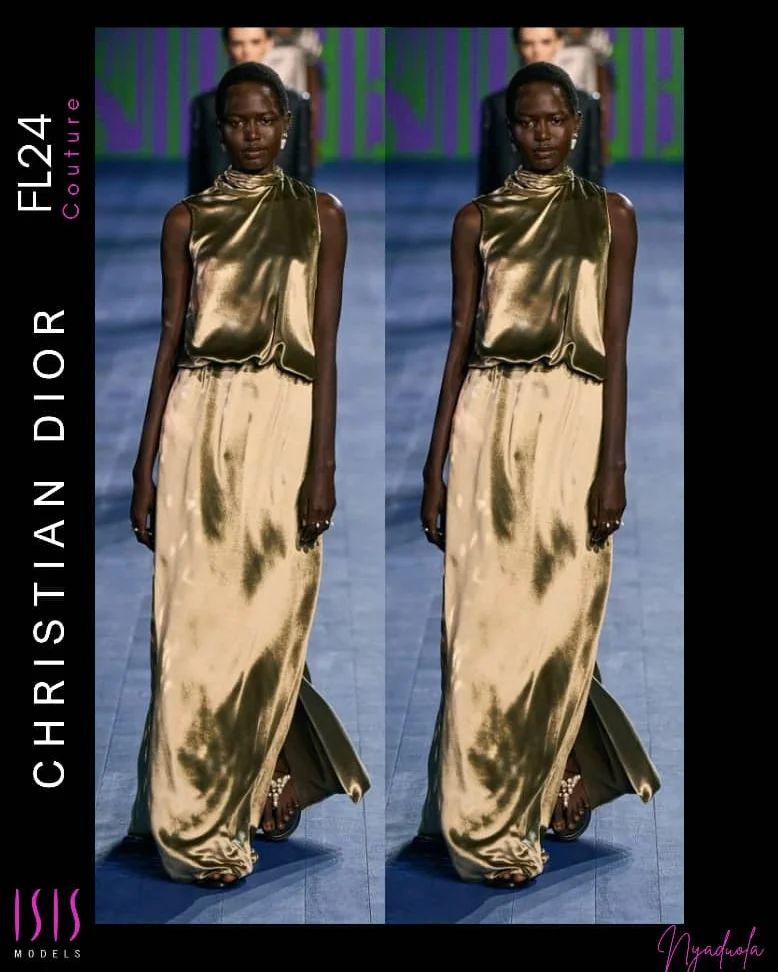 [PHOTO: ISIS's Model on the runway]
[PHOTO: ISIS's Model on the runway]
However, ISIS and Joan Okorodudu have not been immune to controversy. Reports have circulated about some models expressing dissatisfaction with their treatment by the agency. An investigation revealed that Ms. Okorodudu, affectionately known as 'Mama Joan' to her models, would sign up talent to ISIS Models as their mother agency before marketing them to larger agencies. This practice, while not uncommon in the industry, has led to complaints from some models about their experiences.
One such case involved Biliny Manyang, a 23-year-old model who was scouted by ISIS Models in 2019 in Kakuma Refugee Camp located in the North-western region of Kenya. Manyang terminated her contract with the agency in 2021, citing concerns that the agency would not fulfill its promise to help her reach Europe. Her decision to write to the UN to complain about her experience brought attention to the challenges faced by some models working with ISIS.
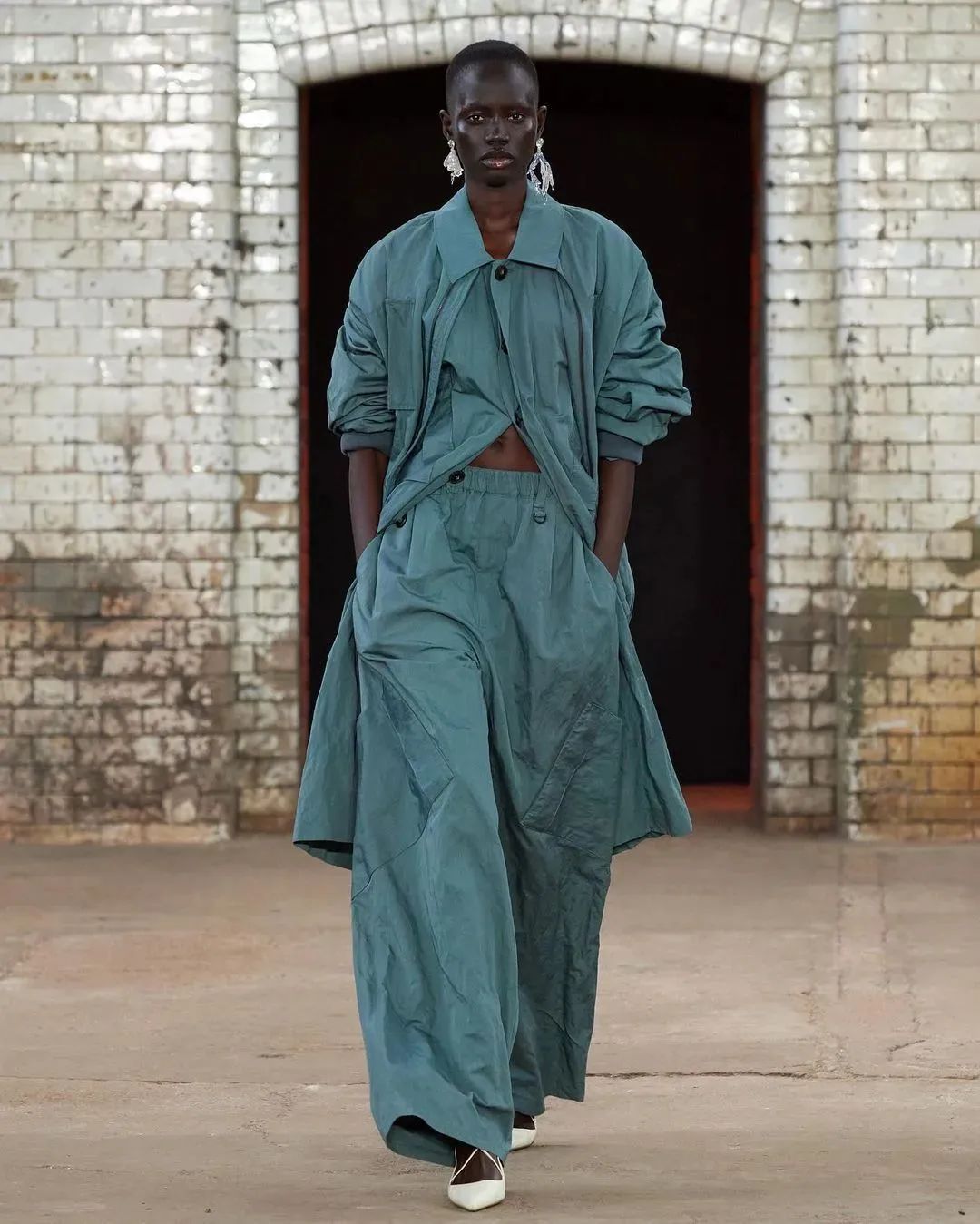 [PHOTO: ISIS's Model on photoshoot scene]
[PHOTO: ISIS's Model on photoshoot scene]
It's important to note, however, that these criticisms are not universally shared. Following the investigations, several models came forward in recorded videos to defend 'Mama Joan,' stating that she treats African models well and has positively impacted many lives. One supporter emphasized, "She is absolutely a good person. She has changed lives and is still changing the lives of young models for the better."
“As the 2024 edition of Africa's Next Super Model approaches, Kenyan models should prepare for a competitive and potentially life-changing experience. Forget criticism this is a platform and they should go and see” a Fashion expert from Nairobi told the RCFS’s MEDIA.
The Africa's Next Super Model 2024 by ISIS represents both an exciting opportunity and a significant challenge for Kenyan models. While the event offers the potential for career-changing exposure and success, it also comes with uncertainties and fierce competition. Aspiring models should approach the casting call with a blend of optimism, preparation, and realistic expectations.
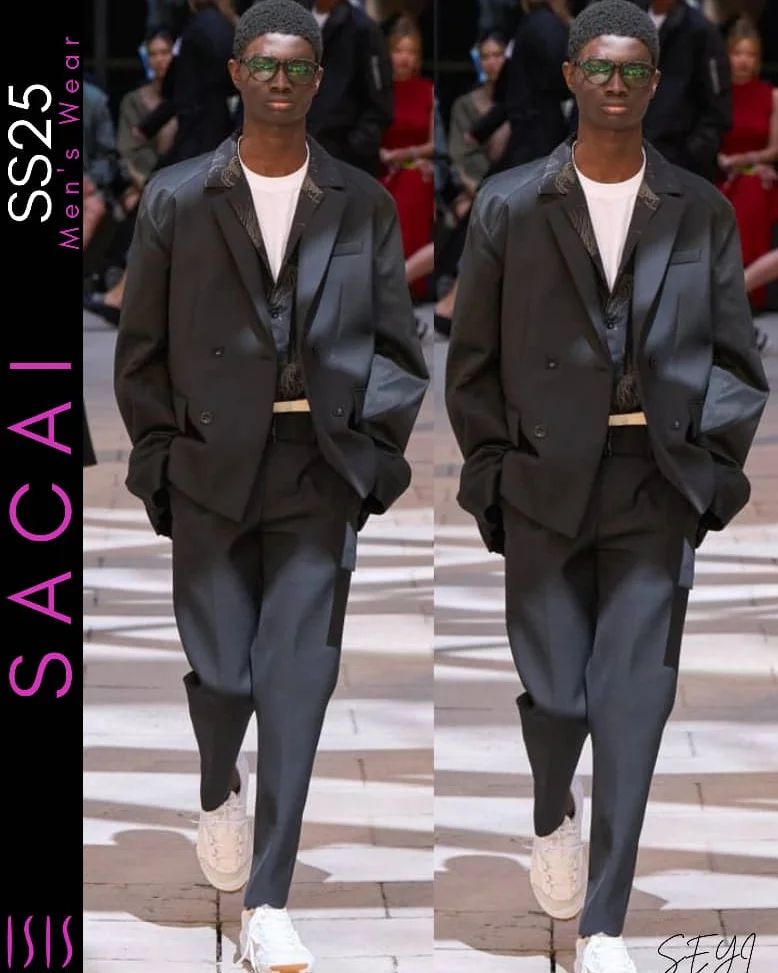 [PHOTO: ISIS's Model on the runway]
[PHOTO: ISIS's Model on the runway]
As the African modeling industry continues to evolve and gain recognition on the global stage, events like Africa's Next Super Model play a crucial role in showcasing the continent's diverse talent. For Kenyan models, this represents a chance to be part of a transformative movement in the fashion world, potentially opening doors to international careers and helping to reshape perceptions of African beauty and style.
According to the fashion expert, Ultimately, the success of Africa's Next Super Model 2024 will depend not only on the talents discovered but also on the industry's commitment to nurturing and supporting these emerging stars. As Kenyan models step onto the stage in Nairobi, they carry with them the hopes and aspirations of a continent ready to make its mark on the global fashion scene.
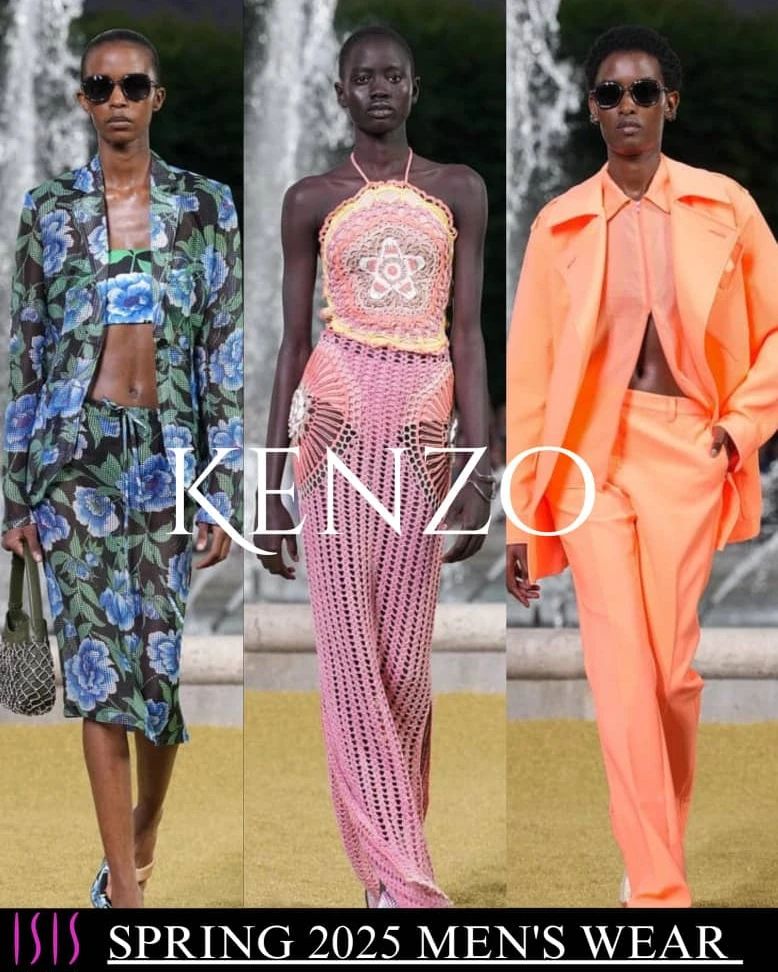 [PHOTO: ISIS's Models on the runway]
[PHOTO: ISIS's Models on the runway]
What Should Kenyan Models Expect from Africa's Next Super Model 2024 by ISIS
The modeling industry in Africa has been undergoing a significant transformation in recent years, with agencies and initiatives aimed at showcasing African talent on the global stage. At the forefront of this revolution is the ISIS modeling agency, founded by Nigerian businesswoman Joan Okorodudu. ISIS has played a pivotal role in elevating African models to international prominence, and one of its flagship programs, Africa's Next Super Model, is set to return to Nairobi in 2024.

[POSTER: Africa's Next Super Model 2024 casting call is scheduled on the 5th of July in Nairobi-Kenya]
As aspiring Kenyan models prepare for the upcoming casting call, it's essential to understand what they can expect from this prestigious event and the opportunities it may present. This article delves into the background of Africa's Next Super Model, its impact on the African modeling scene, and what participants should anticipate in the 2024 edition.
Africa's Next Super Model was conceived as a platform to discover, nurture, and promote African modeling talent. According to Joan Okorodudu, the CEO and founder of ISIS, the core mission of the program is to "empower and elevate African talent onto the global stage." By providing a showcase for emerging models and designers, Africa's Next Super Model aims to launch successful and profitable careers in the international fashion industry.
 [PHOTO: ISIS's Model on the runway]
[PHOTO: ISIS's Model on the runway]
The decision to host the event annually in Nairobi underscores the growing importance of East Africa in the global fashion landscape. As Okorodudu stated in 2023 after a successful edition, "Africa's Next Super Model will be happening in Nairobi every year." This commitment to the Kenyan capital offers local models a unique opportunity to shine on their home turf while competing against talent from across the continent.

[PHOTO: Founder of the ISIS Models Ms Joan Okorodudu]
The anticipation for Africa's Next Super Model 2024 is building, with the casting call scheduled for July 5th in Karen, Nairobi, which serves as the headquarters for ISIS in the East African region. However, the announcement has left some aspiring models with questions and concerns about the selection process and their chances of success.
One of the primary issues raised by potential participants is the lack of clear criteria for the casting call. The communication materials published on ISIS's social media platforms, including Instagram, have been sparse on details regarding the requirements for attendance. This ambiguity has led to speculation and uncertainty among the modeling community.
 [PHOTO: ISIS's Model on the runway]
[PHOTO: ISIS's Model on the runway]
Some models have expressed skepticism about their chances of winning, citing the presence of more established and well-known competitors. One model, speaking anonymously to RCFS's Media, shared, "I will go, but I am not sure if I will win. There are many models here in Kenya who are known better than me, and they will also come." This sentiment reflects a common concern among emerging talent: the perception that visibility and existing popularity may play a significant role in the selection process.
Another model added fuel to this speculation, stating, "My friend told me that according to their previous casting, they choose a model who is already known on social media to boost their visibility." While this claim remains unverified, it highlights the importance of social media presence in today's modeling industry and the potential advantages that come with a strong online following.
 [PHOTO: ISIS Models pays money to the winner]
[PHOTO: ISIS Models pays money to the winner]
Despite these concerns, the success of previous winners serves as an inspiration to many aspiring models. Chol Khan, a 19-year-old model from South Sudan, emerged victorious as Africa's Next Super Model 2023, beating out 34 other finalists. Khan's win demonstrates the life-changing potential of the competition and the doors it can open for talented individuals from across the continent.
Reflecting on her victory, Khan shared, "I didn't know I would be the winner because all the other finalists looked perfect. I was extremely excited about it when I was announced the winner." Her experience underscores the competitive nature of the event and the high caliber of talent it attracts.
 [PHOTO: ISIS's Model the winner of the Africa's Next Super Model 2023 on the runway]
[PHOTO: ISIS's Model the winner of the Africa's Next Super Model 2023 on the runway]
While Africa's Next Super Model has undoubtedly created opportunities for many aspiring models, it has not been without its challenges and criticisms. Some models have raised concerns about the short notice given for the 2024 casting call. As one model pointed out, "The poster calling for the casting was published on June 29th, 2024, which means that the casting is in 6 days. I don't think many models will know about this as they don't have radio or TV advertisements."
This limited timeframe for promotion raises questions about the accessibility of the event and whether it truly provides equal opportunities for all aspiring models, particularly those who may not be closely connected to the industry or active on social media.
Beyond Africa's Next Super Model, ISIS has made significant strides in diversifying its talent pool and creating opportunities for models from various backgrounds. The agency has conducted castings in refugee camps, searching for new talent and providing selected models with opportunities to participate in international fashion weeks in Europe. This initiative has been praised for its inclusivity and for opening doors that might otherwise remain closed to displaced individuals.
 [PHOTO: ISIS's Model on the runway]
[PHOTO: ISIS's Model on the runway]
However, ISIS and Joan Okorodudu have not been immune to controversy. Reports have circulated about some models expressing dissatisfaction with their treatment by the agency. An investigation revealed that Ms. Okorodudu, affectionately known as 'Mama Joan' to her models, would sign up talent to ISIS Models as their mother agency before marketing them to larger agencies. This practice, while not uncommon in the industry, has led to complaints from some models about their experiences.
One such case involved Biliny Manyang, a 23-year-old model who was scouted by ISIS Models in 2019 in Kakuma Refugee Camp located in the North-western region of Keny. Manyang terminated her contract with the agency in 2021, citing concerns that the agency would not fulfill its promise to help her reach Europe. Her decision to write to the UN to complain about her experience brought attention to the challenges faced by some models working with ISIS.
 [PHOTO: ISIS's Model on photoshoot scene]
[PHOTO: ISIS's Model on photoshoot scene]
It's important to note, however, that these criticisms are not universally shared. Following the investigations, several models came forward in recorded videos to defend 'Mama Joan,' stating that she treats African models well and has positively impacted many lives. One supporter emphasized, "She is absolutely a good person. She has changed lives and is still changing the lives of young models for the better."
“As the 2024 edition of Africa's Next Super Model approaches, Kenyan models should prepare for a competitive and potentially life-changing experience. Forget criticism this is a platform and they should go and see” a Fashion expert from Nairobi told the RCFS’s MEDIA.
The Africa's Next Super Model 2024 by ISIS represents both an exciting opportunity and a significant challenge for Kenyan models. While the event offers the potential for career-changing exposure and success, it also comes with uncertainties and fierce competition. Aspiring models should approach the casting call with a blend of optimism, preparation, and realistic expectations.
 [PHOTO: ISIS's Model on the runway]
[PHOTO: ISIS's Model on the runway]
As the African modeling industry continues to evolve and gain recognition on the global stage, events like Africa's Next Super Model play a crucial role in showcasing the continent's diverse talent. For Kenyan models, this represents a chance to be part of a transformative movement in the fashion world, potentially opening doors to international careers and helping to reshape perceptions of African beauty and style.
According to the fashion expert, Ultimately, the success of Africa's Next Super Model 2024 will depend not only on the talents discovered but also on the industry's commitment to nurturing and supporting these emerging stars. As Kenyan models step onto the stage in Nairobi, they carry with them the hopes and aspirations of a continent ready to make its mark on the global fashion scene.
 [PHOTO: ISIS's Models on the runway]
[PHOTO: ISIS's Models on the runway]
What is Matheo Doing in Ethiopia? New Collection "The Lost Soldier" Released
In a surprising move that has caught the attention of fashion enthusiasts across Africa, the Rwandan clothing brand Matheo has released its latest collection, "The Lost Soldier," just hours before its Creative Designer and CEO, Mr. Niyigena Maurice, departed for Ethiopia. This unexpected launch on Instagram, rather than through a traditional fashion show, has sparked discussions about the evolving landscape of African fashion and the challenges faced by emerging designers.
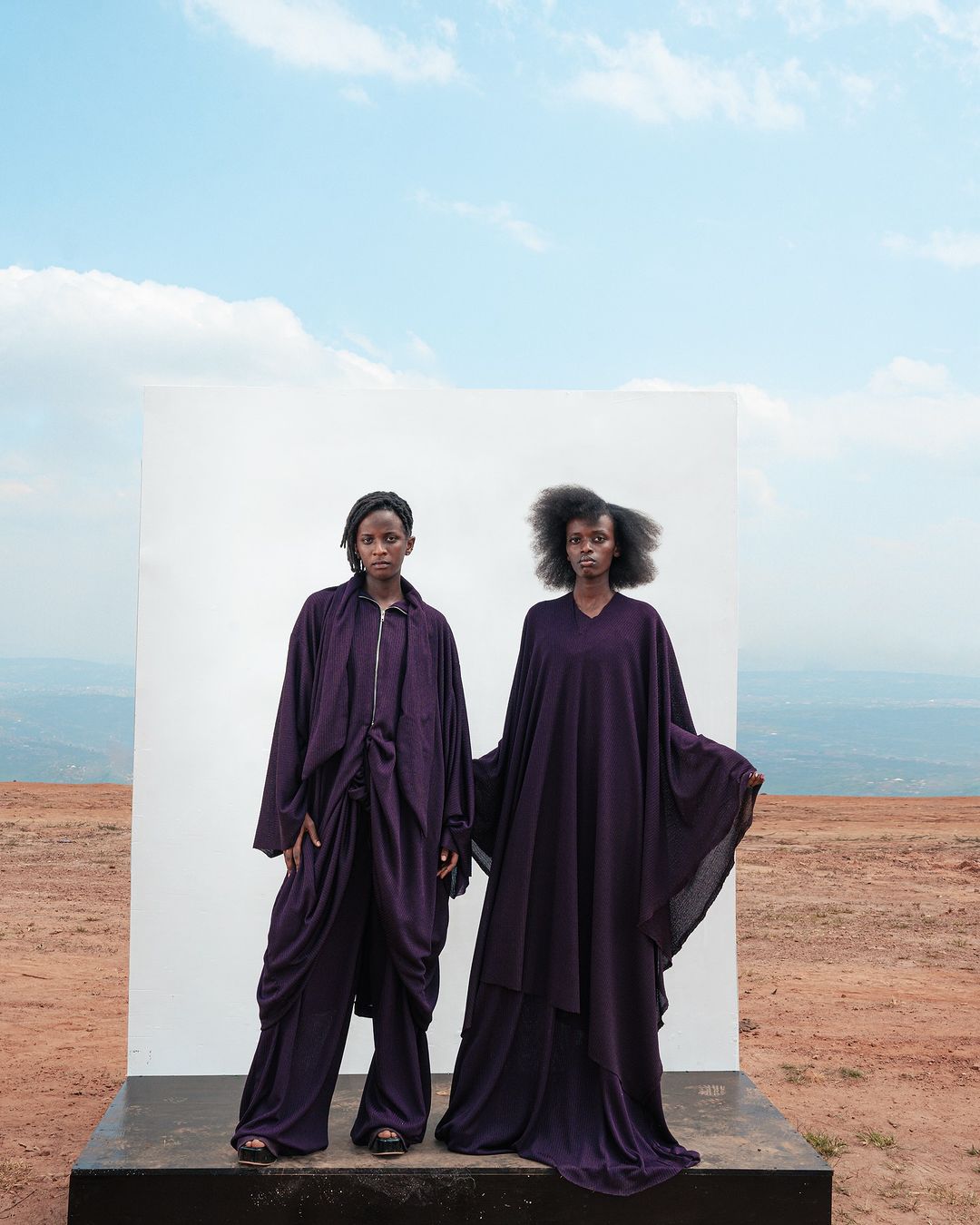 [PHOTO: New Collection "The Lost Soldier" Released by the Matheo]
[PHOTO: New Collection "The Lost Soldier" Released by the Matheo]
ALSO READ: "I Have Loyalty Inside the Matheo Brand": The Future Warriors Collection 2023 Released
Mr. Maurice's trip to Ethiopia is not just a casual visit but a significant step for the brand as he attends the prestigious Shenen Africa Festival Week 2024. This grand event, scheduled from June 28 to June 30, 2024, is set to take place at the iconic Adwa Victory Memorial Museum in Addis Ababa. The festival stands as a testament to the growing influence and unity of African fashion, bringing together designers and models from a diverse array of nations including South Africa, Morocco, Tanzania, Rwanda, Zambia, Malawi, Burundi, Uganda, Ghana, Kenya, Libya, Nigeria, Somalia, South Sudan, and the host country, Ethiopia.
 [PHOTO: Creative Designer Mr. Maurice Niyigena in Ethiopia to attend the Shenen Africa Festival Week 2024]
[PHOTO: Creative Designer Mr. Maurice Niyigena in Ethiopia to attend the Shenen Africa Festival Week 2024]
The choice of venue for the festival is particularly poignant. The Adwa Victory Memorial Museum, commemorating Ethiopia's historic victory against Italian colonialism, serves as a powerful backdrop for a celebration of African creativity and resilience. This setting aligns perfectly with the theme of Matheo's new collection, creating a synergy between fashion, history, and cultural pride.
Matheo's latest offering, "The Lost Soldier," stands out as a unique departure from the brand's previous collections. Designed for both men and women, this collection is more than just a line of clothing; it's a narrative woven in fabric, telling the stories of Africa's unsung heroes. As Mr. Maurice eloquently puts it, "It is a collection that celebrates African heroes, those that fought before us, those that sacrificed themselves for 'Africa' to rise and to stand."
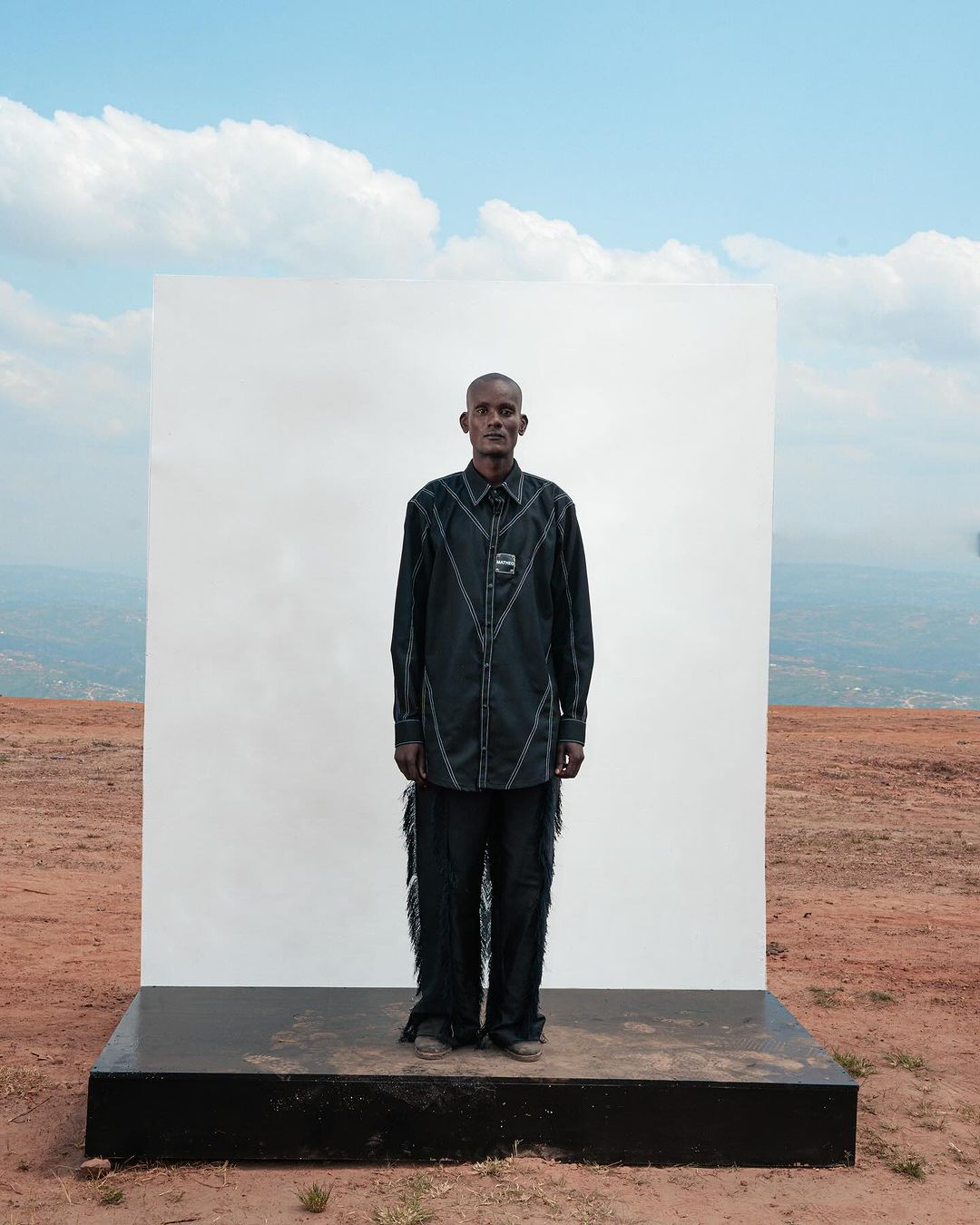 [PHOTO: New Collection "The Lost Soldier" Released by the Matheo]
[PHOTO: New Collection "The Lost Soldier" Released by the Matheo]
The inspiration behind the collection is deeply personal for Mr. Maurice. In a touching letter released alongside the collection, he dedicates the line to his father, drawing parallels between personal experiences and the broader African narrative of sacrifice and resilience. The letter, spanning five emotionally charged paragraphs, offers insight into the designer's motivation:
"Our father's love that we couldn't understand when we were young but we finally can feel it. Know it, understand it, and see it. We see that you never left us, you never ignored us, you never gave love to anyone else. Instead, you fought for us, you fought for our future, for our good education, and for our good life and success."
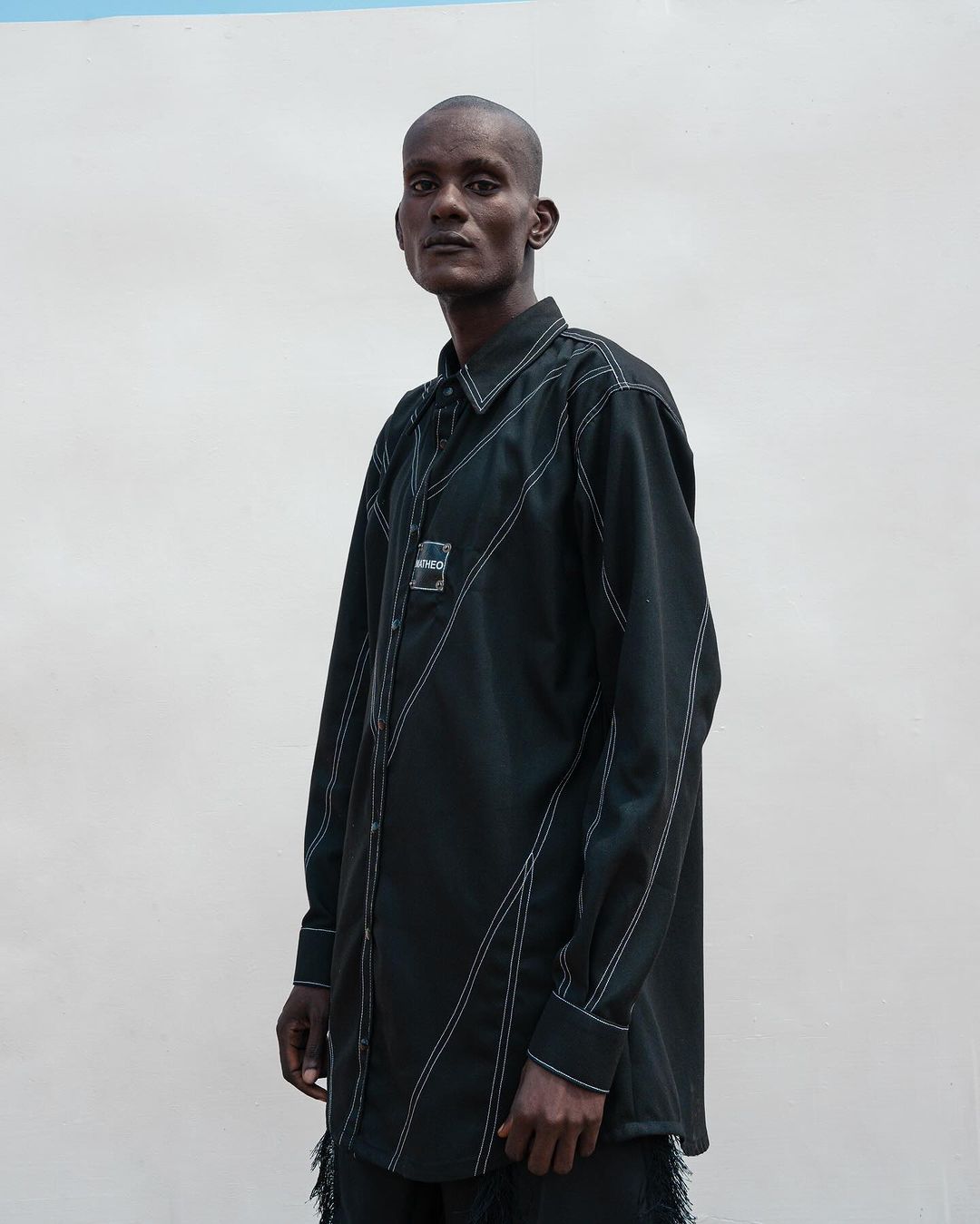 [PHOTO: New Collection "The Lost Soldier" Released by the Matheo}
[PHOTO: New Collection "The Lost Soldier" Released by the Matheo}
This poignant tribute not only adds depth to the collection but also resonates with many across the continent who recognize similar stories of sacrifice in their own families.
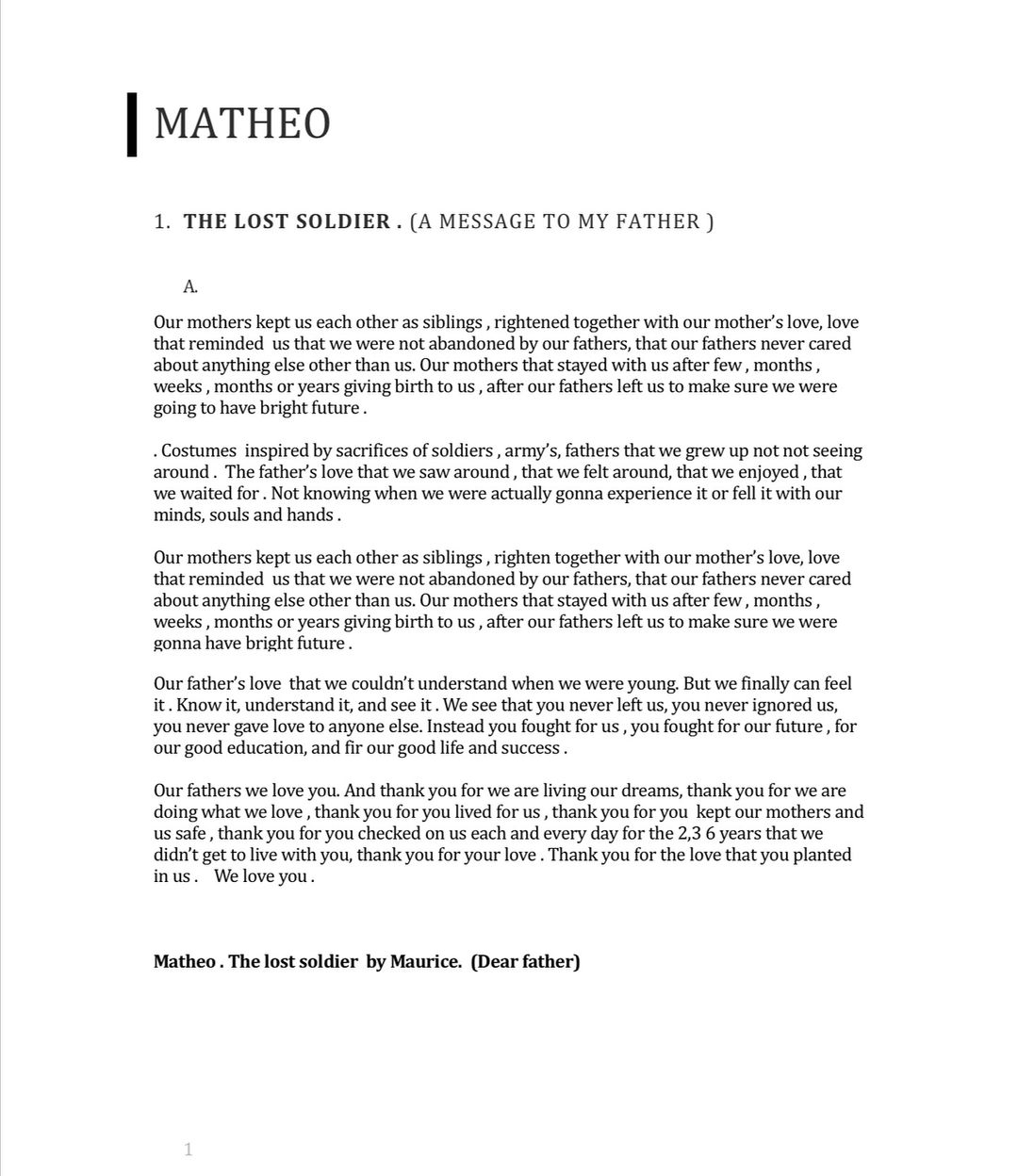 [PHOTO: The Lost Soldier letter by Mr. Maurice
[PHOTO: The Lost Soldier letter by Mr. Maurice
The rapid growth of Matheo as a brand is evident in its collaborations with prominent models. Names like Kabano Franco, Mucyo Sandine, and international model Eveline Gonzenbach have graced the brand's photoshoots and promotions, elevating its visibility and appeal. These partnerships reflect Matheo's ambition to position itself as a significant player in the African fashion scene, bridging local talent with international appeal.
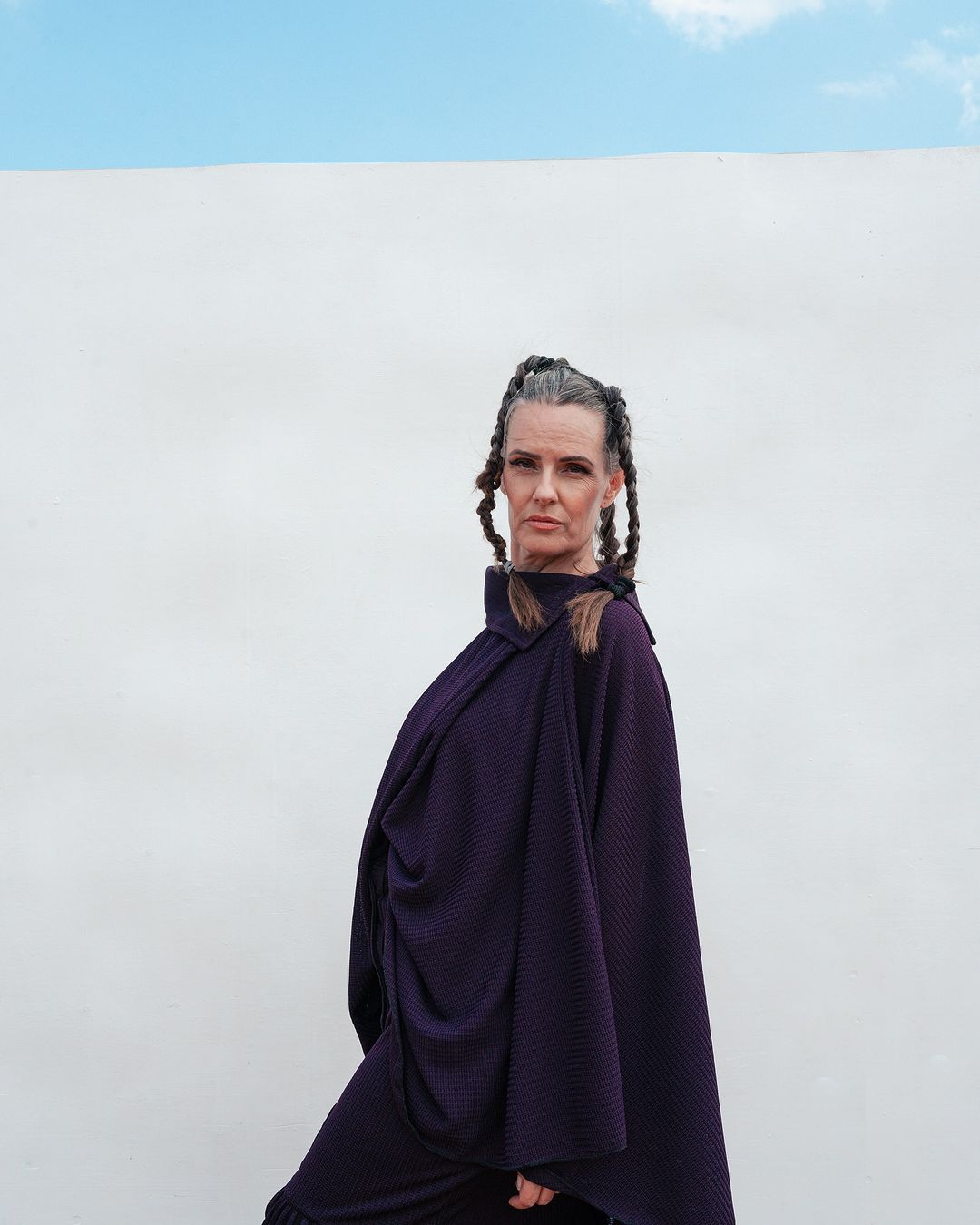 [PHOTO: International model Eveline Gonzenbach in New Collection "The Lost Soldier" Released by the Matheo]
[PHOTO: International model Eveline Gonzenbach in New Collection "The Lost Soldier" Released by the Matheo]
“In 5 years, I see my brand’s visibility in Africa and outside the continent,” Mr. Maurice told the RCFS’s MEDIA during the interview in 2023
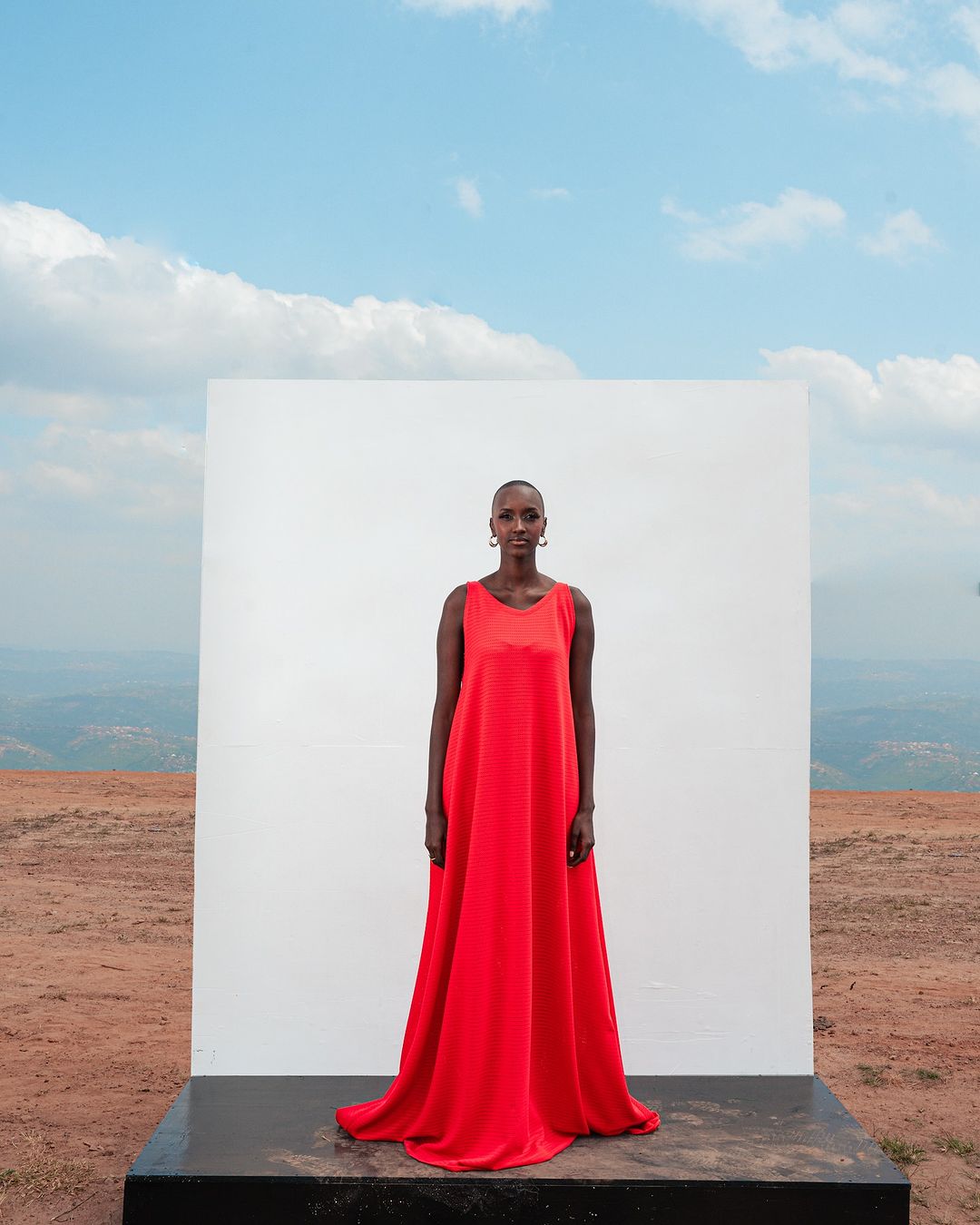 [PHOTO: Rwanda's known model Sandrine in a New Collection "The Lost Soldier" Released by the Matheo]
[PHOTO: Rwanda's known model Sandrine in a New Collection "The Lost Soldier" Released by the Matheo]
ALSO READ: Where Do Matheo and Franco Get Those Fashion Ideas? 50 Trending Styles in Rwanda
The decision to launch "The Lost Soldier" collection on Instagram, rather than through a traditional fashion show, has been met with mixed reactions. While some fashion enthusiasts in Kigali expressed surprise and a hint of disappointment at the lack of a physical event, others see it as a savvy move in the digital age. One fashion enthusiast remarked, "When I saw that letter, I was expecting like a nice small fashion show at his shop to interact with his fans."
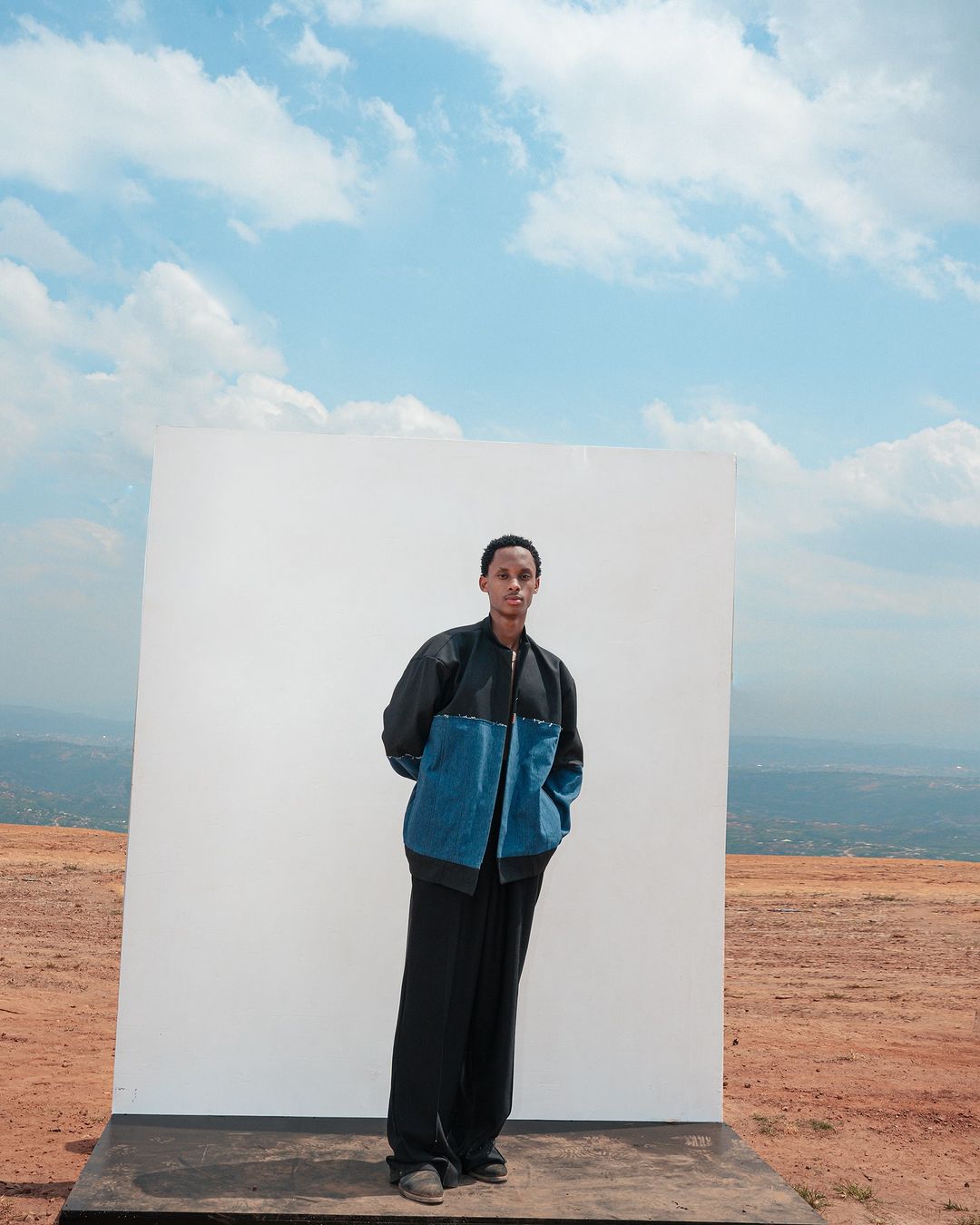 [PHOTO: New Collection "The Lost Soldier" Released by the Matheo]
[PHOTO: New Collection "The Lost Soldier" Released by the Matheo]
However, this approach highlights a significant challenge faced by many African designers: the high costs associated with organizing fashion shows. As another fashion enthusiast noted, "Our designers can't afford both. Expect them to produce clothes but when it comes to organizing a fashion show, becomes too expensive and a burden for them to pay the models."
This reality check brings to light the financial constraints that often hinder the growth of African fashion brands. While creativity and talent abound, the resources needed to showcase these creations in traditional formats can be prohibitive. Matheo's strategy of leveraging social media for its launch may well be a blueprint for other emerging Rwandan brands looking to make an impact without breaking the bank.
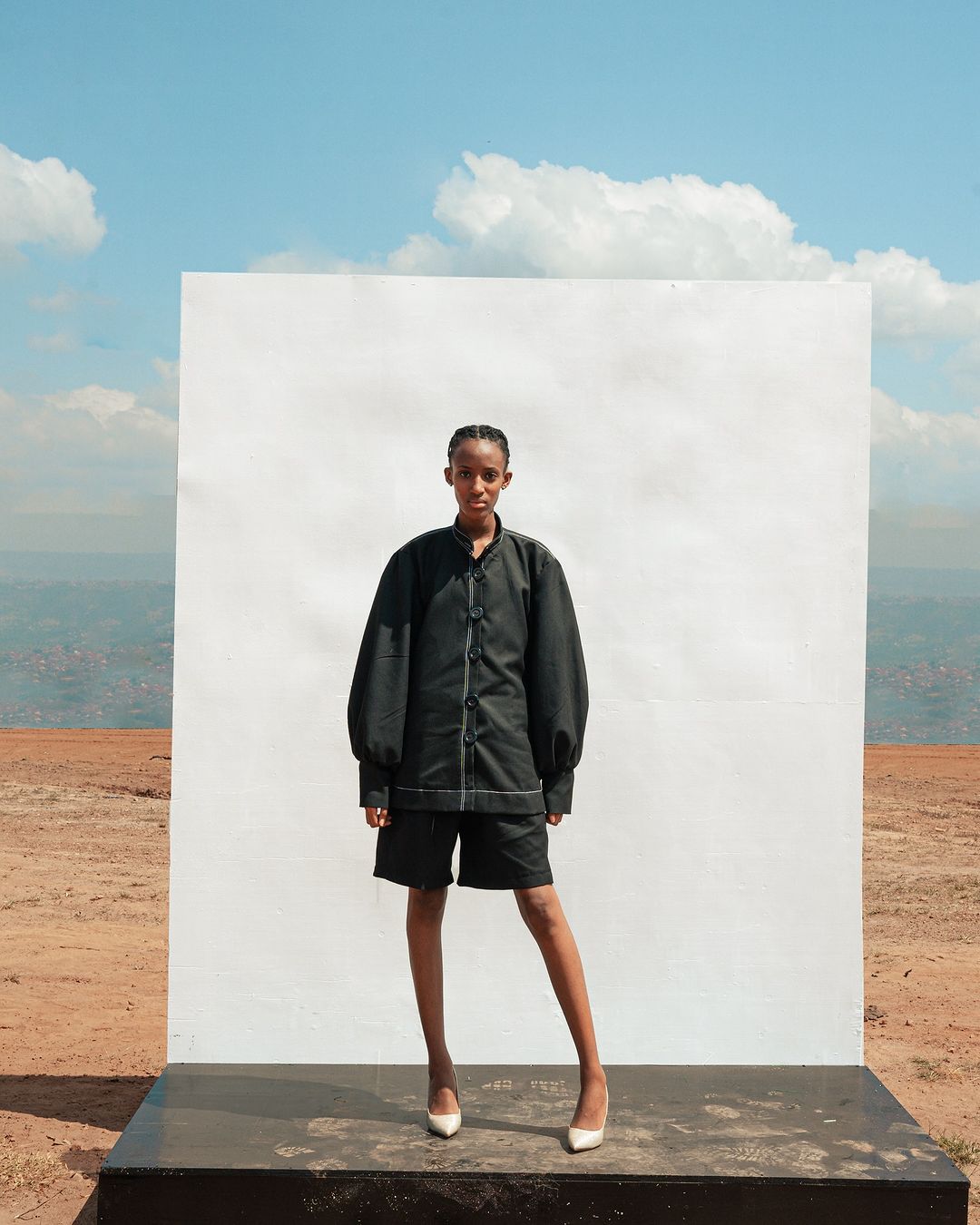 [PHOTO: New Collection "The Lost Soldier" Released by the Matheo]
[PHOTO: New Collection "The Lost Soldier" Released by the Matheo]
Matheo's journey, from its emotional connection to African heritage to its innovative launch strategies, encapsulates many of the challenges and opportunities facing African fashion today. The industry stands at a crossroads, balancing tradition with modernity, local inspiration with global appeal, and creative vision with financial realities.
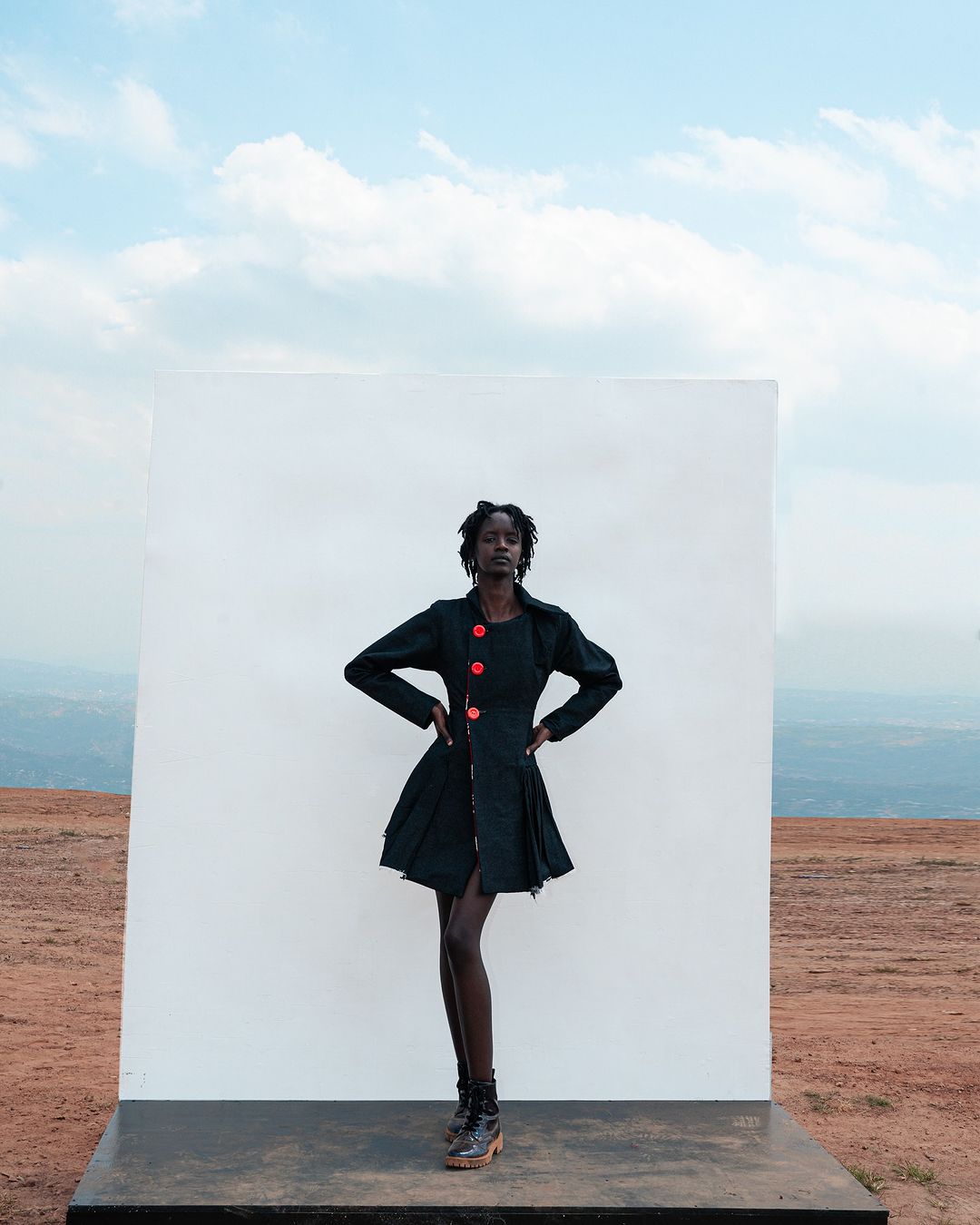 [PHOTO: New Collection "The Lost Soldier" Released by the Matheo]
[PHOTO: New Collection "The Lost Soldier" Released by the Matheo]
Events like the Shenen Africa Festival Week play a crucial role in this landscape. By bringing together designers from across the continent, they foster a sense of community and shared purpose. They provide a platform for brands like Matheo to showcase their work to a broader audience, potentially opening doors to new markets and collaborations.
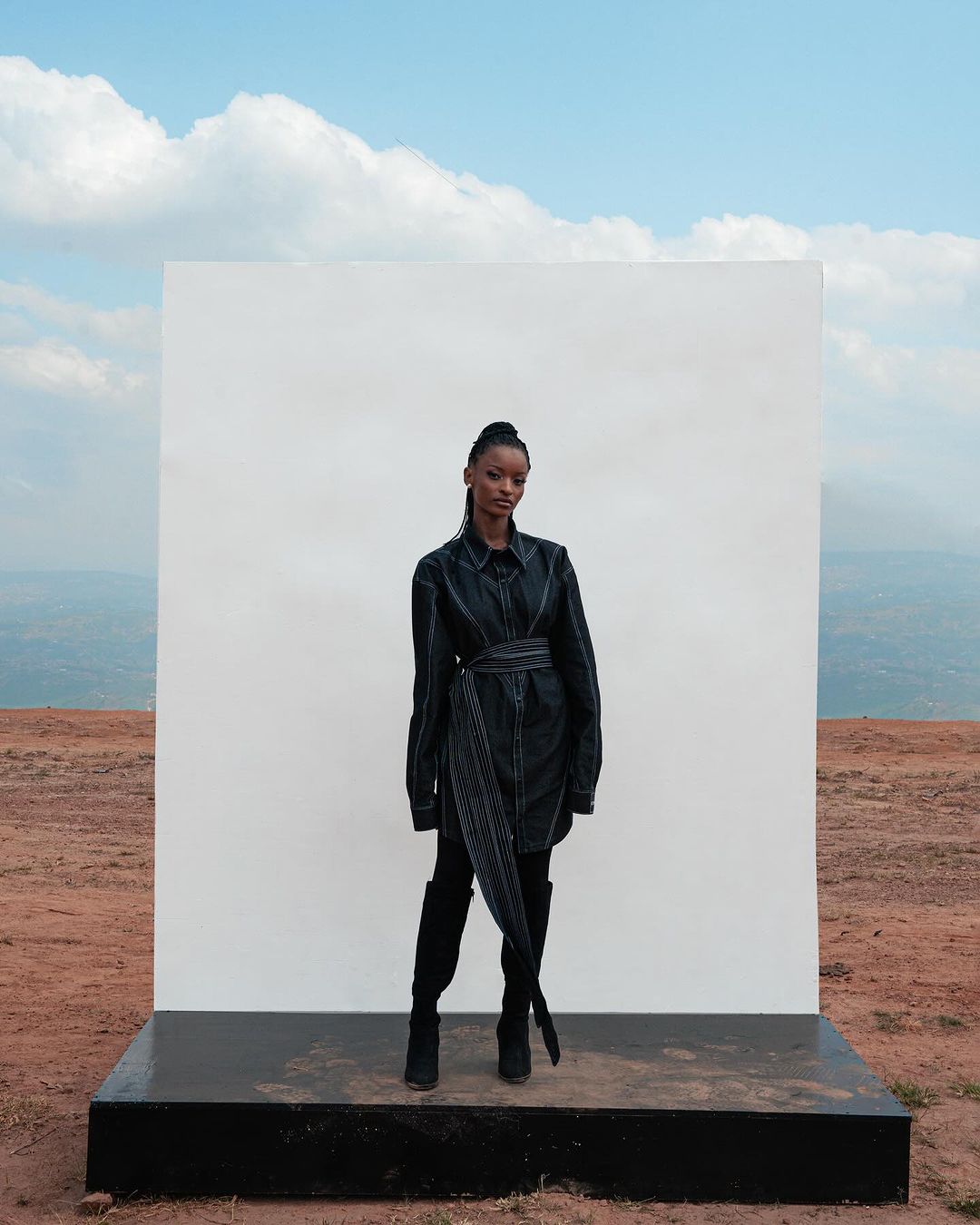 [PHOTO: New Collection "The Lost Soldier" Released by the Matheo]
[PHOTO: New Collection "The Lost Soldier" Released by the Matheo]
As Mr. Maurice and Matheo take their place at the Shenen Africa Festival Week 2024, they carry with them not just a collection of clothes, but a narrative of African resilience, creativity, and ambition. "The Lost Soldier" collection stands as a testament to the power of fashion to tell stories, honor heritage, and shape the future.
The eyes of the fashion world will be on Addis Ababa this week, watching as African designers like Matheo showcase their vision for the future of fashion. In this vibrant tapestry of creativity, each thread tells a story of struggle, triumph, and the unbreakable spirit of a continent on the rise. As the lost soldiers of yesteryear are remembered and honored, a new generation of fashion warriors steps forward, ready to conquer the global stage with designs that are uniquely, proudly African.
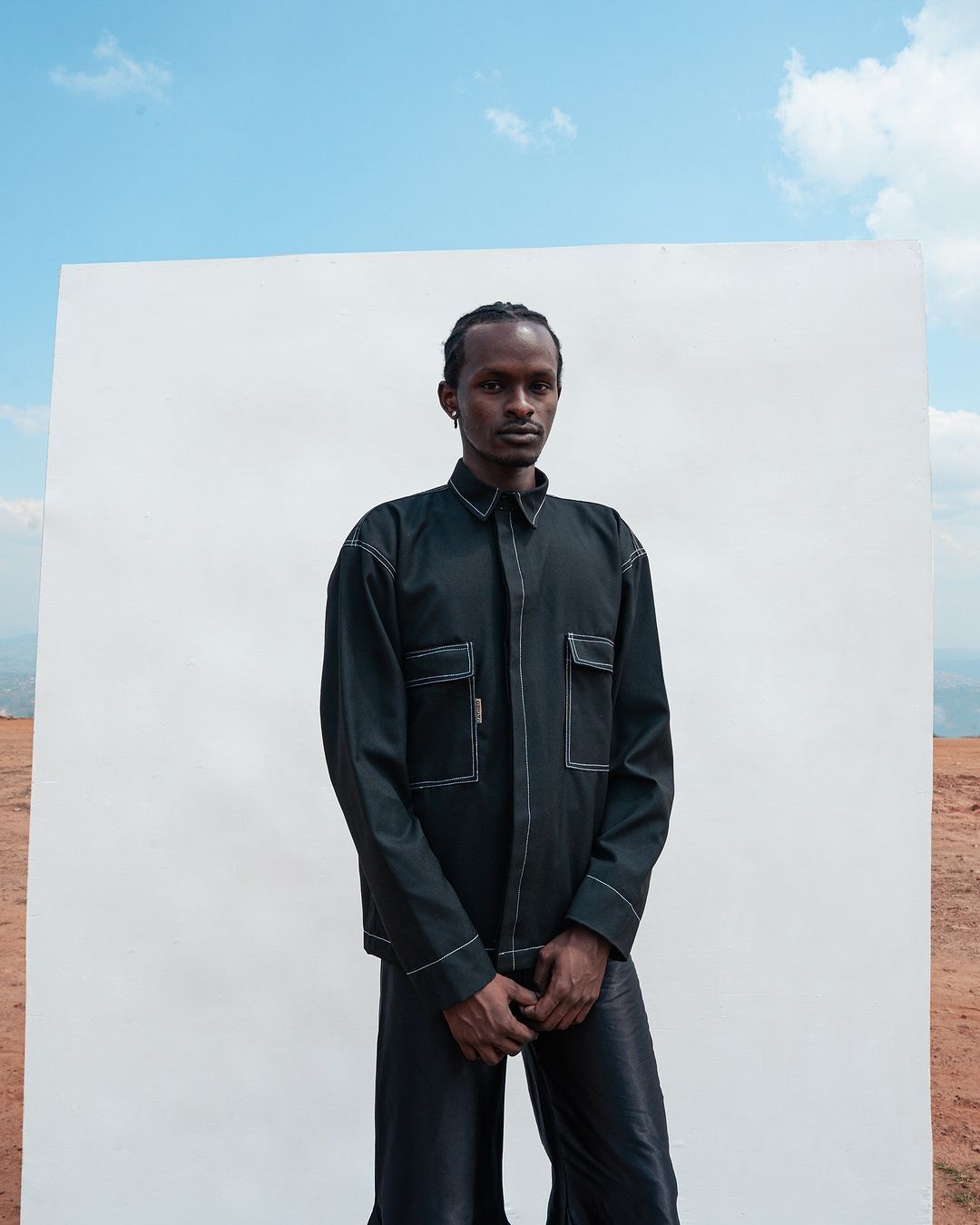 [PHOTO: New Collection "The Lost Soldier" Released by the Matheo]
[PHOTO: New Collection "The Lost Soldier" Released by the Matheo]
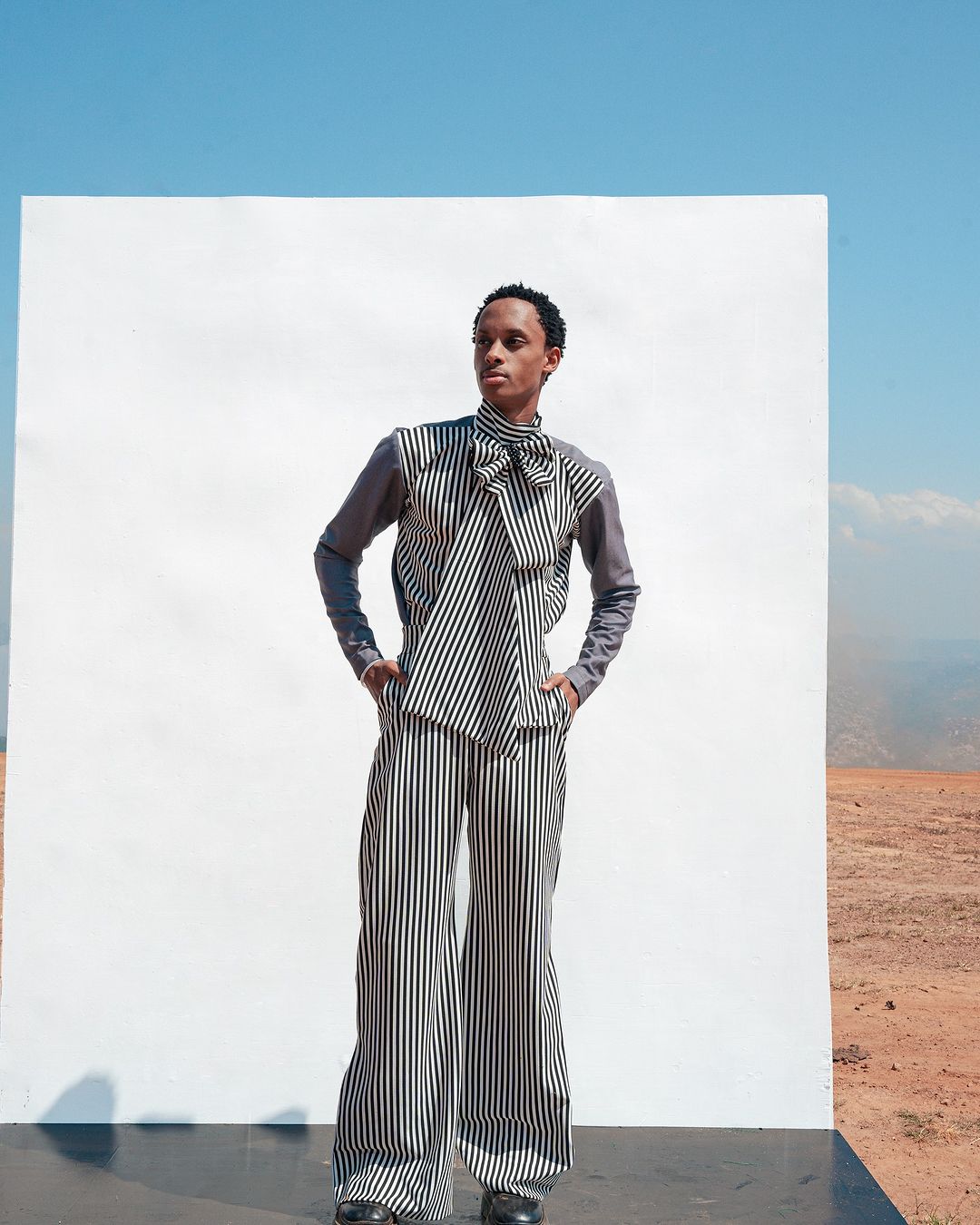 [PHOTO: New Collection "The Lost Soldier" Released by the Matheo]
[PHOTO: New Collection "The Lost Soldier" Released by the Matheo]
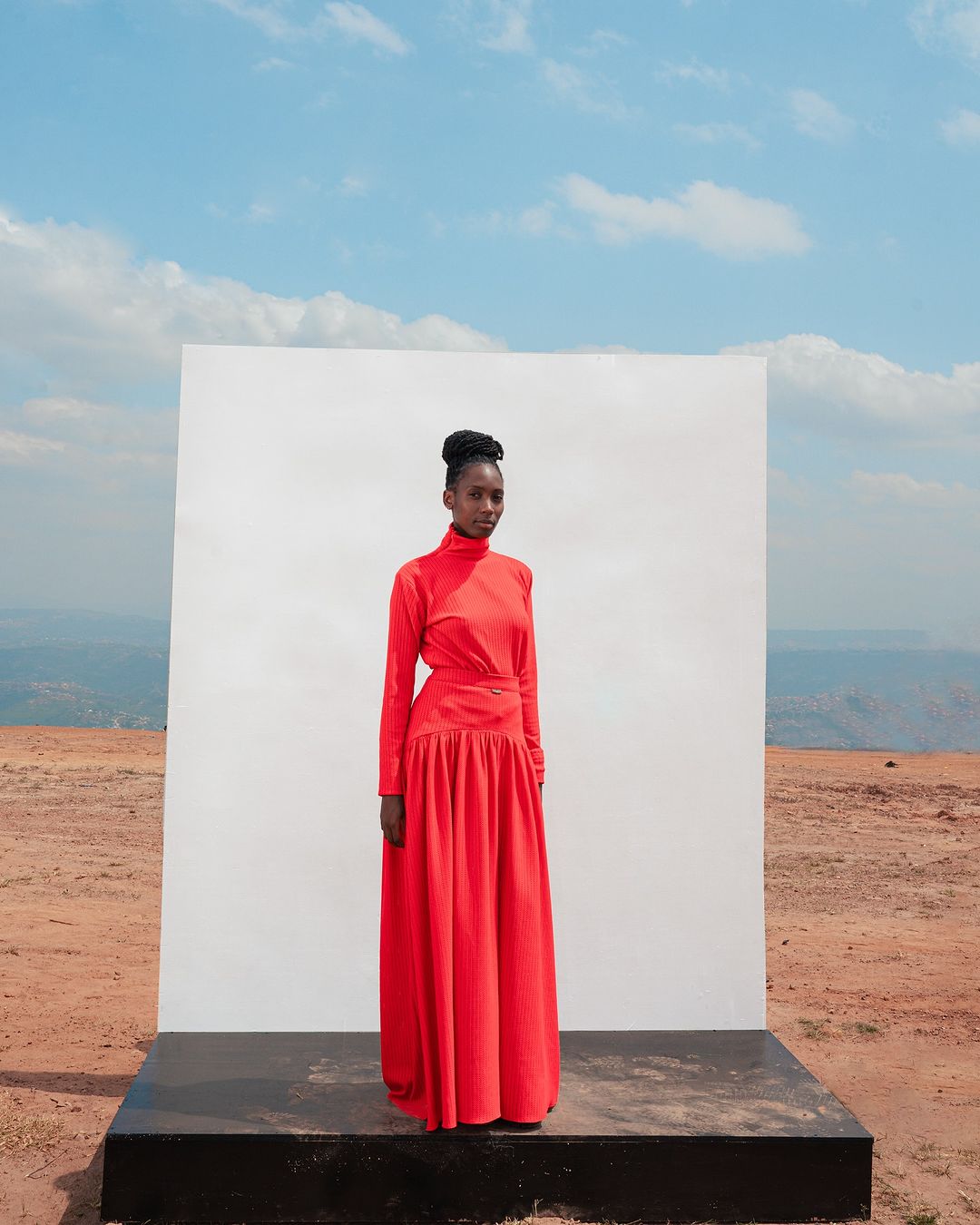 [PHOTO: New Collection "The Lost Soldier" Released by the Matheo]
[PHOTO: New Collection "The Lost Soldier" Released by the Matheo]
Fashion is not Singular as an Industry: Inside Asantii from the Land of 1000 Hills
Fashion is often perceived as a monolithic industry, but in reality, it's a multifaceted ecosystem that intertwines with various sectors and cultural elements. Asantii, a contemporary womenswear brand based in Rwanda, exemplifies this complex nature of fashion, showcasing how a single brand can embody artistic expression, cultural heritage, economic development, and global connectivity.
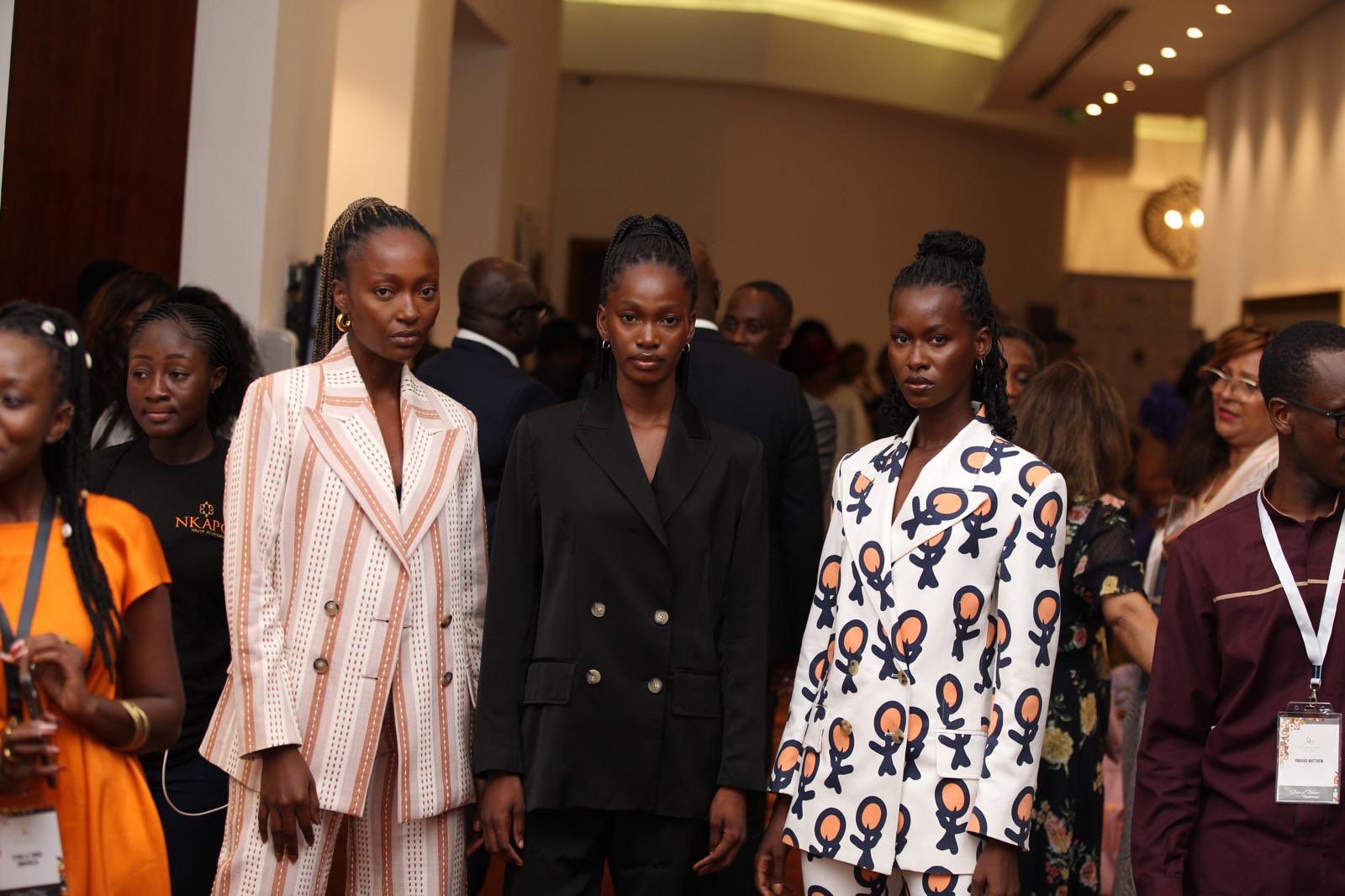 [PHOTO: Collections made by Asantii clothing brand based in Rwanda]
[PHOTO: Collections made by Asantii clothing brand based in Rwanda]
Rwanda is a rapidly growing developing country, with average GDP growth of over 7% per annum since 2010, backed by a strong policy framework. However, despite this, the country’s industrial sector remains small, with most firms facing competitiveness issues due to several supply-side constraints, exasperated by the country’s small size and geographic location. 98% of Rwandan firms are SMEs, with limited access to finance, raw materials, and skills.
Among the growing sectors is the fashion sector with its slogan #MadeInRwanda. There are many entrepreneurs including young people who continue to invest in the fashion business. However, with limited access to finance, raw materials, and skills then to sustainably running their businesses is still not easy, instead, it becomes a challenge for start-up businesses.
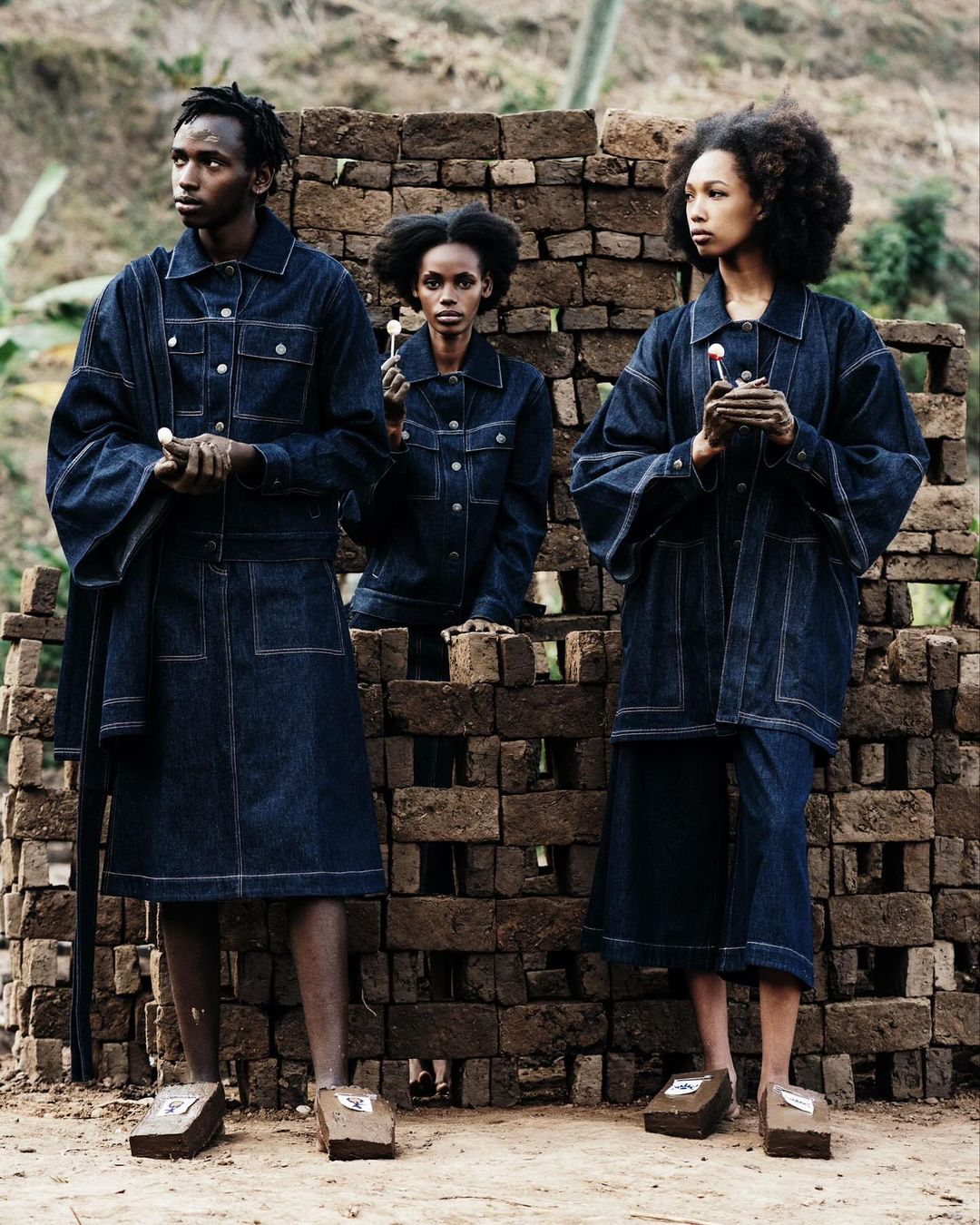 [PHOTO: Collections made by Asantii clothing brand based in Rwanda]
[PHOTO: Collections made by Asantii clothing brand based in Rwanda]
Before our journalist wrote this story read “Fashion is not Singular as an Industry” a paper published on LinkedIn by the Asantii which is sustainable by default and is dedicated to making change in the fashion industry through a meaningful commitment to consciously sourcing materials from across Africa, and ethically producing its collections at their state-of-the-art factories in Rwanda.
In Rwanda, according to the numbers, there are more than 50 established fashion designers and there are about 100 or more new and upcoming fashion designers. Of the total of 150 designers about 30 % of them are professionals who went to school to study fashion design and textile skills. Then 70% are self tough or talented and probably got sewing talents from family members or short courses in tailoring. The Made in Rwanda policy initiated by the Rwanda government which was created between 2015 and 2017 is aligned with Rwanda’s aspiration to become an upper middle-income country by 2035 and higher income by 2050.
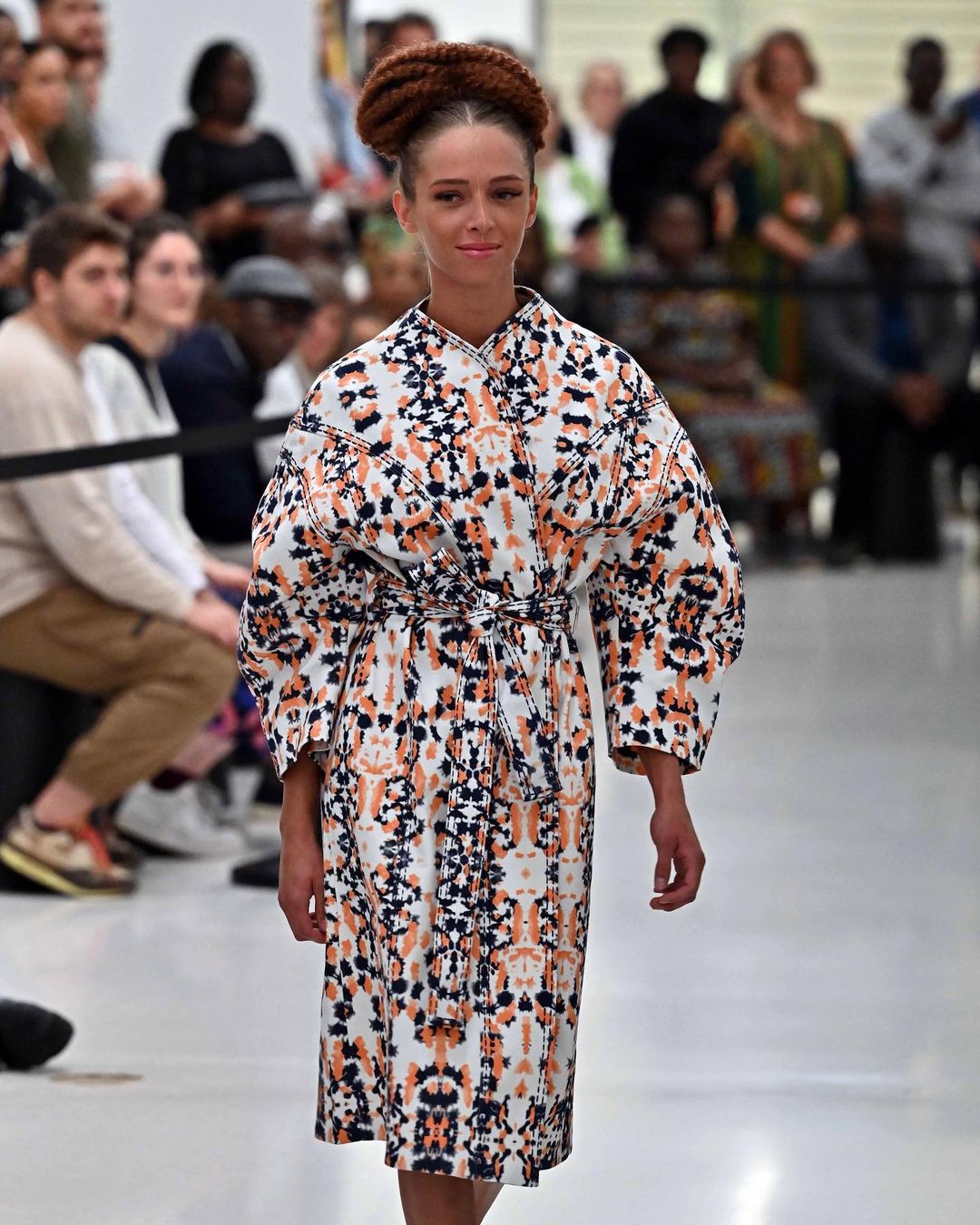 [PHOTO: Collection made by Asantii clothing brand based in Rwanda]
[PHOTO: Collection made by Asantii clothing brand based in Rwanda]
Even though there is no single fashion school in the country, the fashion sector continues to grow and the Asantii is a sign and an example of how the future fashion looks like in Rwanda. The brand was founded in 2020, according to their paper‘s perspective it is clear a lot has been done inside the brand's factory and the brand is proud to share why fashion is not singular as an industry.
The Asantii's perspective on fashion highlights its symbiotic relationship with almost every other industry. This interconnectedness not only enhances the appeal and economic impact of both fashion and its partner industries but also contributes significantly to cultural exchange and global connectivity.
“Exchange of thought is important for advancement and we remain committed to being a catalyst of this” This statement by Asantii expresses how important is for a fashion brand to interact with other businesses in various sectors.
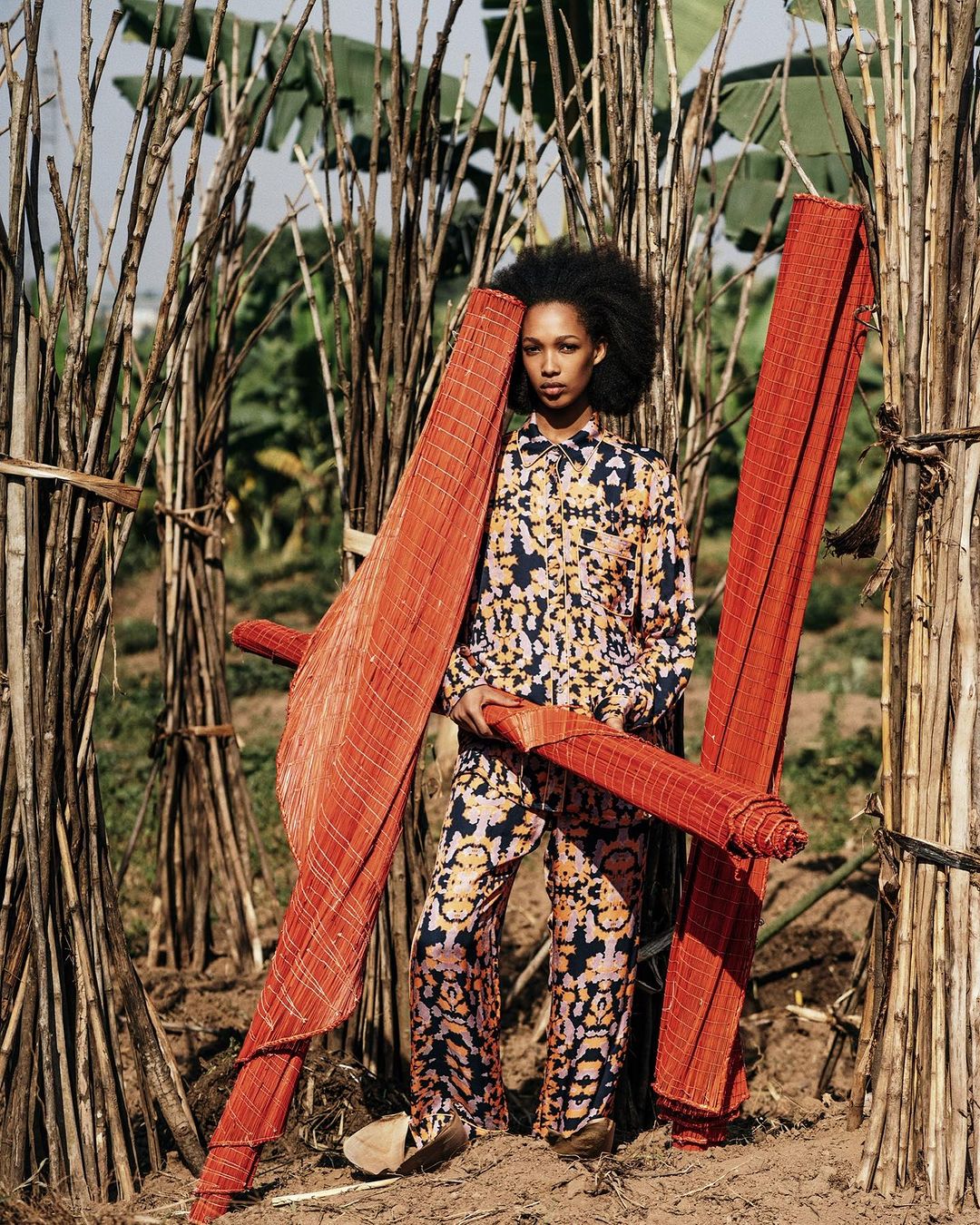 [PHOTO: Collection made by Asantii clothing brand based in Rwanda]
[PHOTO: Collection made by Asantii clothing brand based in Rwanda]
The interconnectedness of fashion with other industries is particularly noteworthy. It intersects with art, technology, business, and culture, creating a rich tapestry of influences and innovations. The retail landscape of fashion has evolved significantly, now including traditional brick-and-mortar stores, e-commerce platforms, subscription services, and rental models. This evolution demonstrates the industry's adaptability and its ability to embrace new technologies and consumer preferences.
Research byfashion experts agrees that the industry extends far beyond clothing. It encompasses a wide range of products including apparel, accessories, footwear, and beauty items.
 [PHOTO: Collection made by Asantii clothing brand based in Rwanda]
[PHOTO: Collection made by Asantii clothing brand based in Rwanda]
“The spectrum of fashion is vast, stretching from fast fashion to haute couture, catering to diverse price points and target demographics,” A Fashion Expert says “This diversity is reflected in the industry's structure, which involves design, manufacturing, distribution, retail, and marketing across numerous countries”
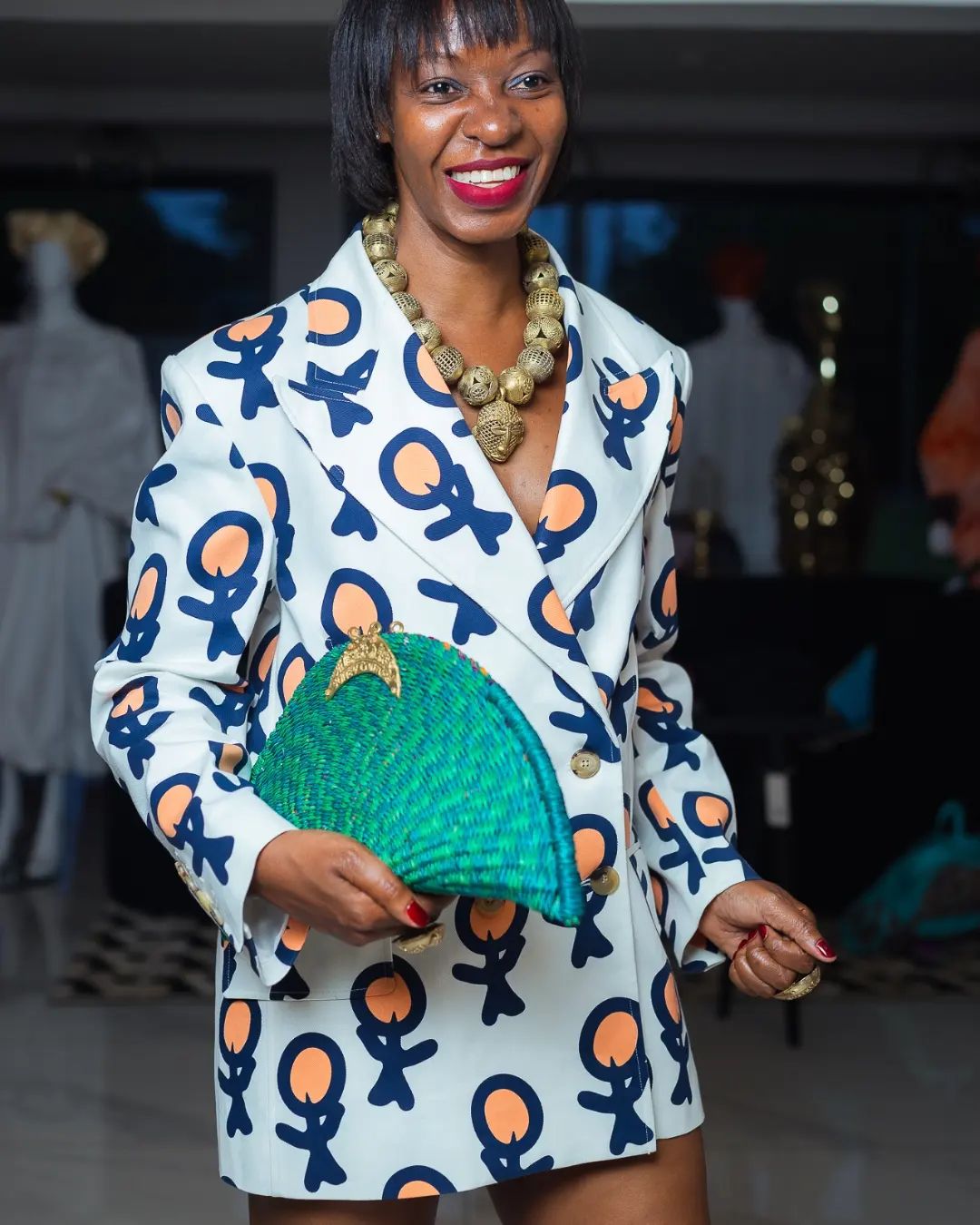 [PHOTO: Collection made by Asantii clothing brand based in Rwanda]
[PHOTO: Collection made by Asantii clothing brand based in Rwanda]
At the heart of this complex fashion ecosystem lies Asantii, a brand that embodies many of these multifaceted aspects of the industry. Asantii is more than just a clothing line; it's a celebration of African heritage and artisanship through the medium of fashion. The brand prides itself on creating joyful and effortless fashion that is proudly designed, conscientiously sourced, and beautifully made across the African continent.
Asantii's approach to fashion goes beyond mere clothing production. It serves as a cultural ambassador, showcasing African creativity and craftsmanship to the world. "This was evident when the brand hosted delegates from the Africa Soft Power Summit at its atelier in Kigali," Asantii's statement says" The event provided an opportunity for Asantii to share its journey in celebrating African heritage through fashion, while also exploring the intersections of creativity, sustainability, and women's leadership in the industry"
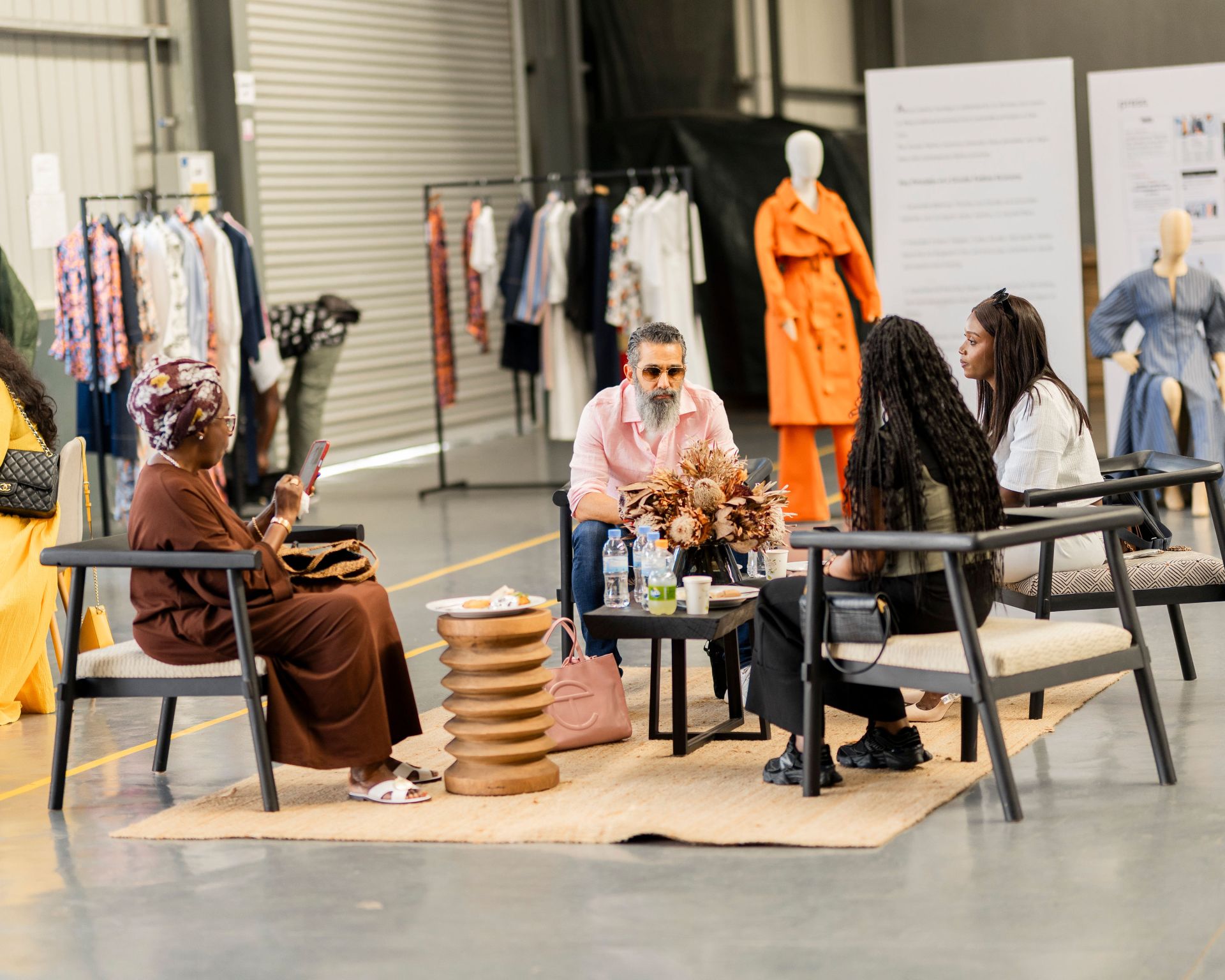 [PHOTO: Asantii clothing brand based in Rwanda hosts guests and events at their Atelier in Kigali]
[PHOTO: Asantii clothing brand based in Rwanda hosts guests and events at their Atelier in Kigali]
The brand from the land of 1000 Hills [Rwanda] recognizes that in today's interconnected fashion landscape, networking and partnerships are crucial for achieving sustainable fashion. This understanding was demonstrated during the Basketball Africa League (BAL) competitions, where Asantii hosted the Dakar Design Hub for a visit and brunch at its atelier. The experience, curated by Africa tourism solutions, facilitated important discussions on what it takes for African brands to grow and be competitive on a global level.
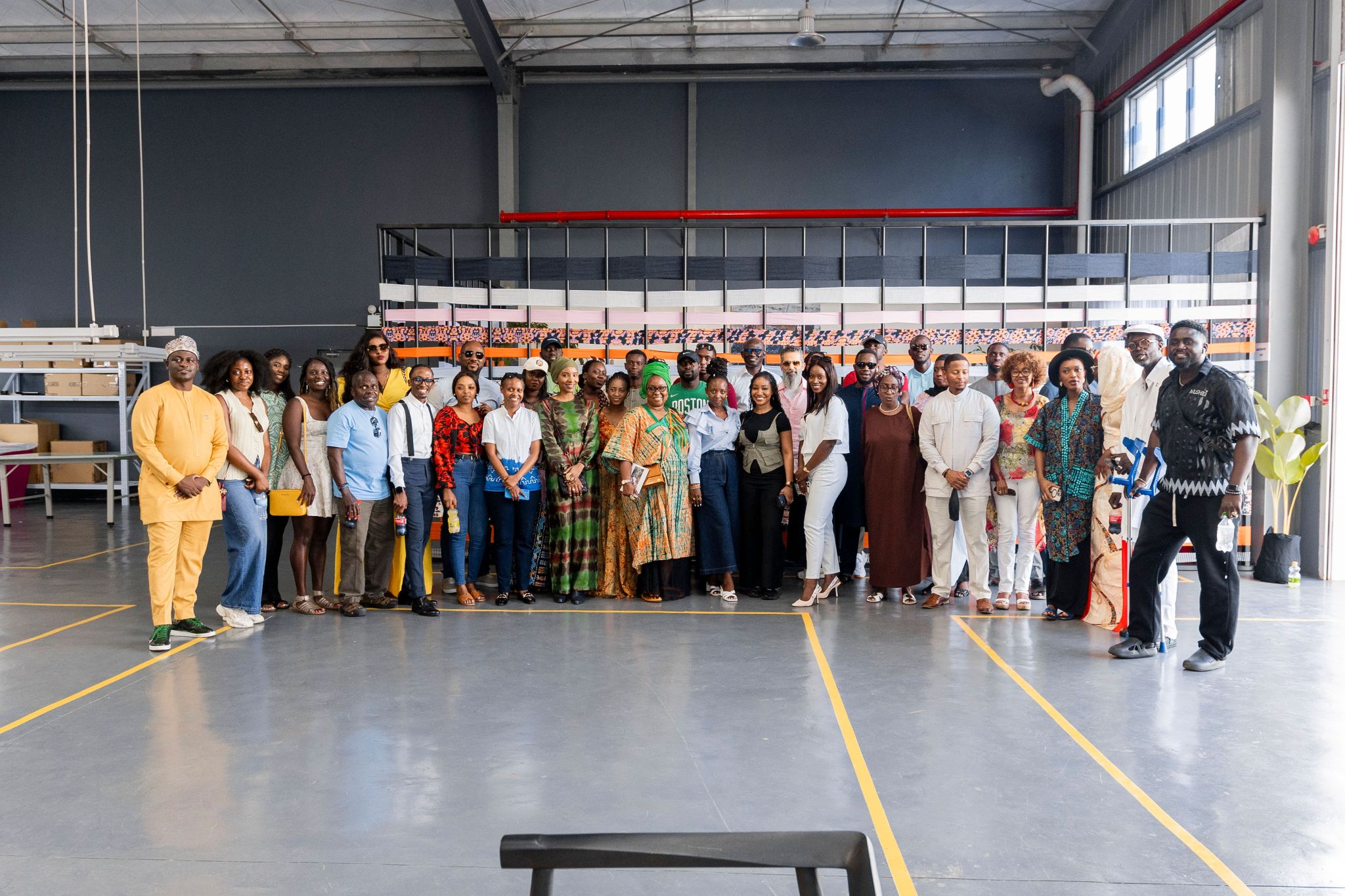 [PHOTO: Asantii clothing brand based in Rwanda engages with other business leaders in Africa]
[PHOTO: Asantii clothing brand based in Rwanda engages with other business leaders in Africa]
According to the Asantii, these networking events are not just social gatherings; they are strategic moves that allow Asantii to position itself within the broader context of African and global fashion. By engaging with other creatives, business leaders, and industry experts, Asantii can gain insights, share knowledge, and potentially form partnerships that can drive the brand and the African fashion industry forward.
 [PHOTO: a worker inside the Asantii 's factory]
[PHOTO: a worker inside the Asantii 's factory]
Maryse Mbonyumutwa, the CEO of Asantii, plays a pivotal role in shaping the brand's vision and its place in the broader African creative landscape. Her participation in high-level discussions, such as the one at the Africa CEO Forum, demonstrates Asantii's commitment to being at the forefront of conversations about the future of African creative industries.
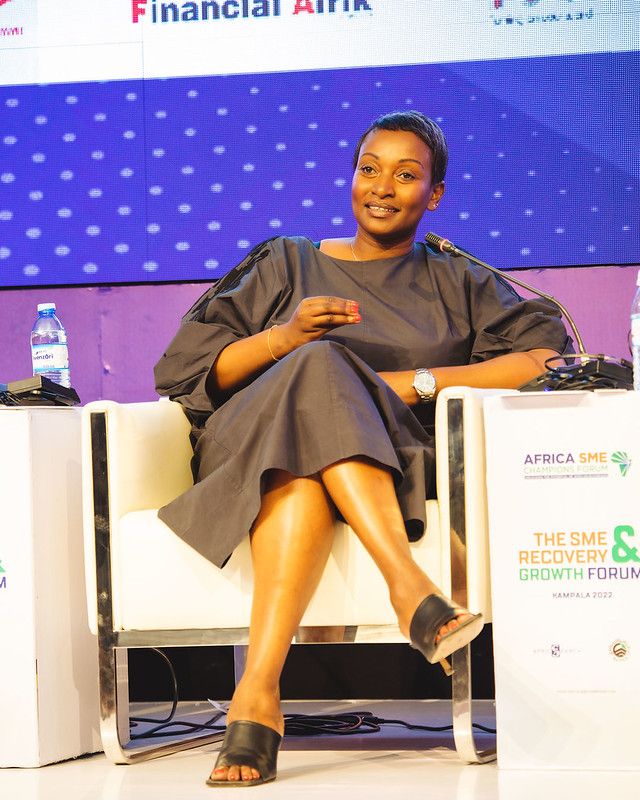 [PHOTO: Maryse Mbonyumutwa, the CEO of Asantii]
[PHOTO: Maryse Mbonyumutwa, the CEO of Asantii]
The forum focused on how Africa can 'reframe' its approach to creative industries to boost business opportunities and contribute to economic and human development. This discussion is crucial for brands like Asantii, as it explores the wide range of opportunities and challenges in financing Africa's creative industries. It also highlights the importance of pan-African collaborations to enhance supply chains and market integration, both within the continent and in lucrative export markets.
"Asantii's involvement in these discussions positions the brand not just as a fashion label, but as a thought leader in the African creative space. The brand's commitment to being a catalyst for the exchange of ideas underscores its understanding that fashion is not just about clothing, but about driving broader economic and cultural change" Asantii's statement says
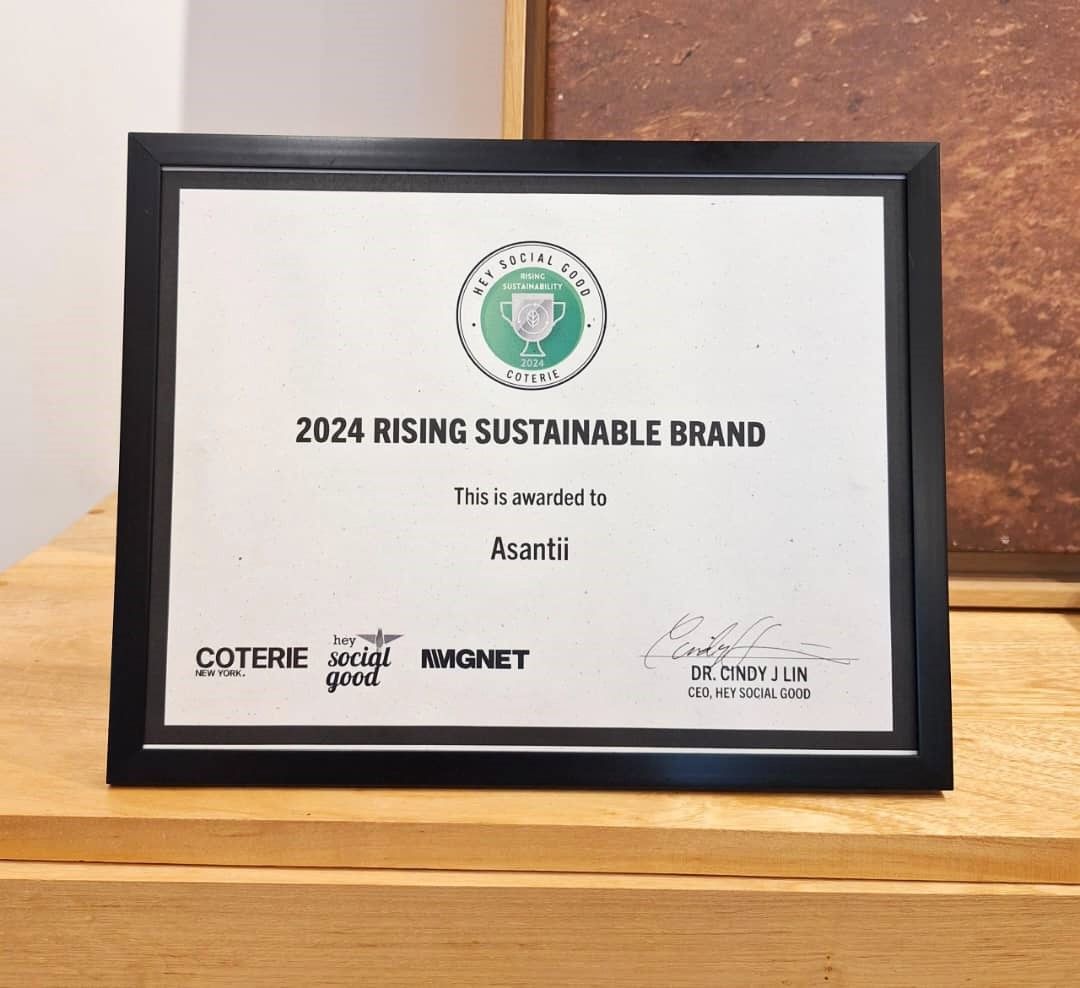 [PHOTO: Asantii received an award of the Rising Sustainable Brand 2024]
[PHOTO: Asantii received an award of the Rising Sustainable Brand 2024]
While Asantii's journey showcases the exciting possibilities within the African fashion industry, it also hints at the challenges faced by brands in Rwanda and on the African continent. "Issues such as financing, supply chain management, and accessing global markets are common hurdles that African fashion brands must overcome," Fashion Experts say
However, these challenges also present opportunities due to the growing interest in African fashion and creativity on the global stage providing a platform for brands like Asantii to showcase their unique offerings. The emphasis on sustainable and ethical fashion aligns well with Asantii's commitment to conscious sourcing and production across the continent.
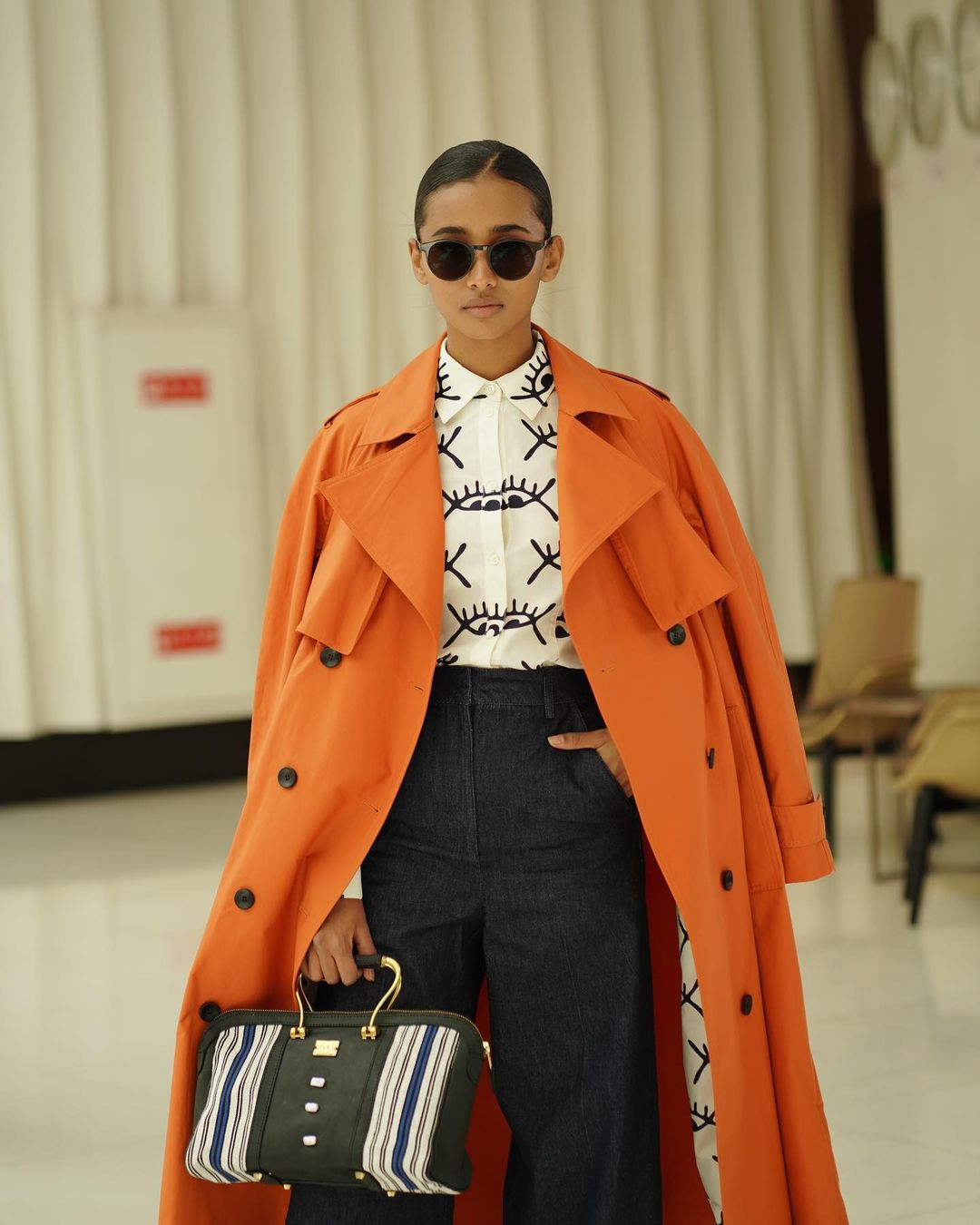 [PHOTO: Collection made by Asantii clothing brand based in Rwanda]
[PHOTO: Collection made by Asantii clothing brand based in Rwanda]
Asantii's story illustrates that fashion is indeed not singular as an industry. It is a complex ecosystem that intertwines with culture, technology, economics, and global trade. As a brand, Asantii embodies this multifaceted nature of fashion, celebrating African heritage while engaging with global trends and business practices.
The brand's approach to networking, its involvement in industry discussions, and its commitment to sustainable and ethical practices demonstrate that modern fashion brands must be more than just clothing producers. They need to be cultural ambassadors, thought leaders, and drivers of economic development.
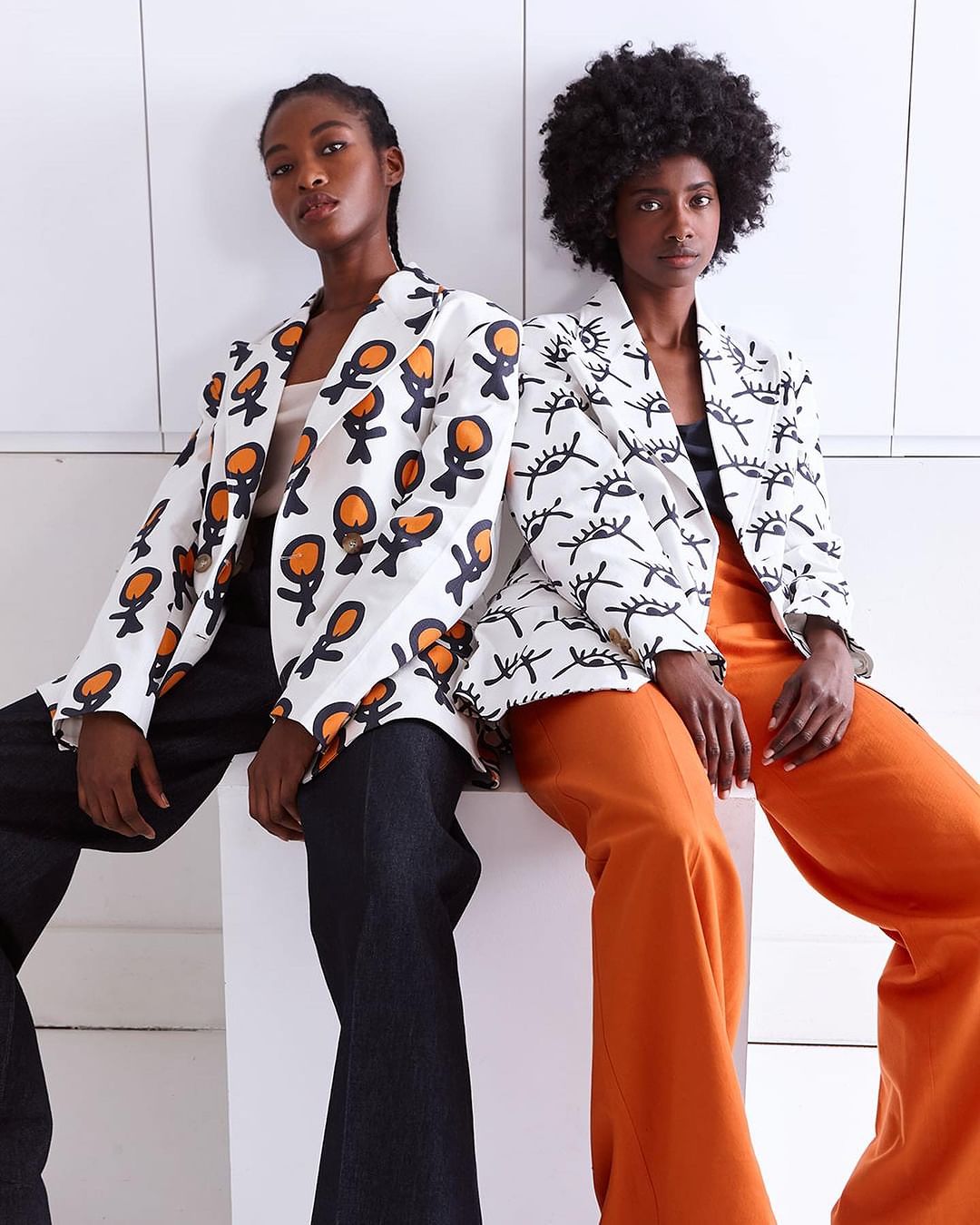 [PHOTO: Collections made by Asantii clothing brand based in Rwanda]
[PHOTO: Collections made by Asantii clothing brand based in Rwanda]
As the fashion industry continues to evolve in Rwanda, brands like Asantii are well-positioned to lead the way in redefining what fashion means in the 21st century. By embracing the interconnected nature of the industry and leveraging the unique cultural heritage of Africa, Asantii and similar brands have the potential to not only succeed in the global fashion market but also to reshape it, bringing fresh perspectives and innovative approaches to an industry that thrives on creativity and change.
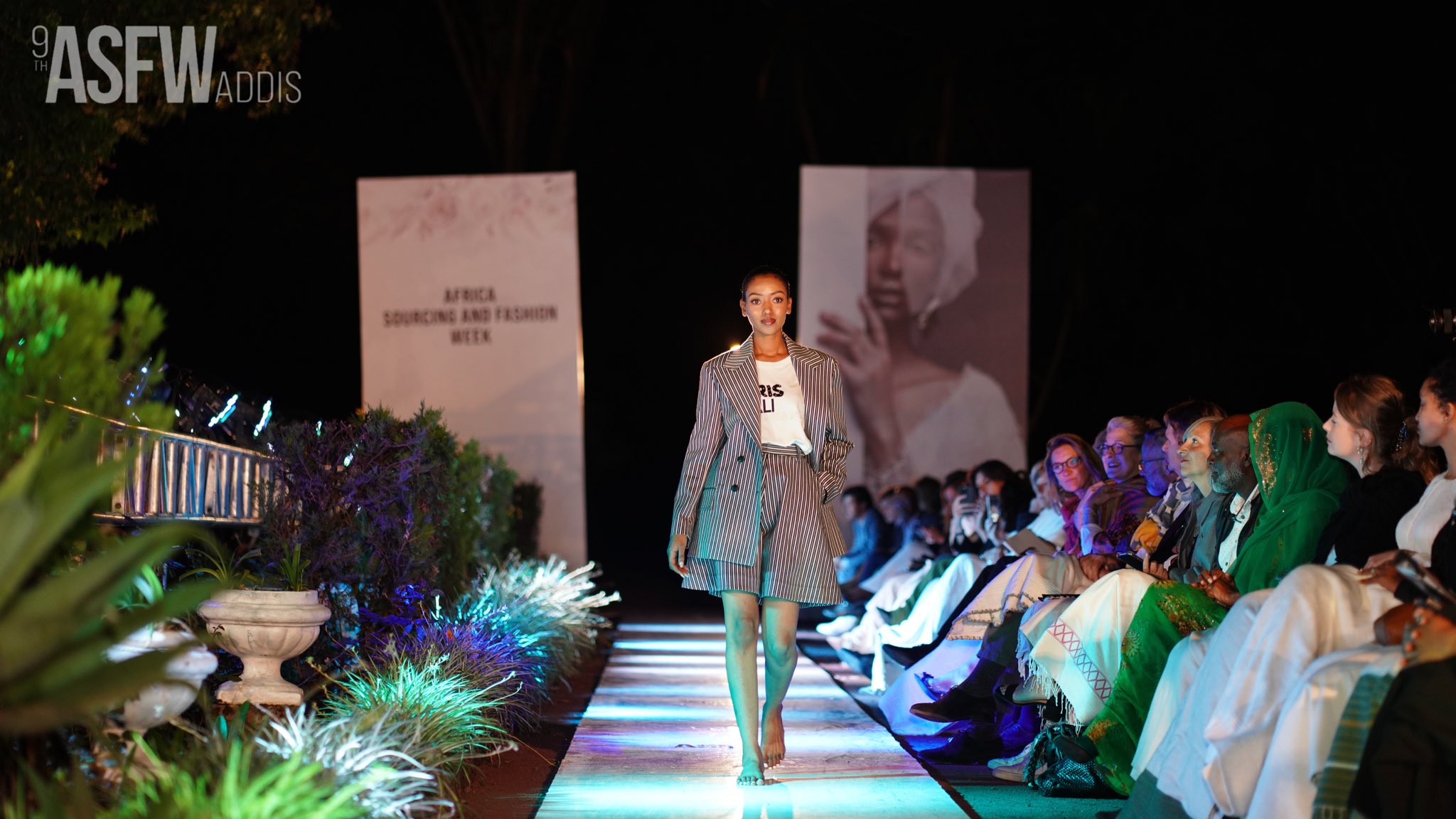 [PHOTO: A model on the runway presenting a collection made by Asantii clothing brand based in Rwanda]
[PHOTO: A model on the runway presenting a collection made by Asantii clothing brand based in Rwanda]
“It is literally been a month since we opened the vivo store in Atlanta. And woo! It has been a crazy month, it is been super busy. I have been wanting to find time literally just catching my breath, and really just find a moment to say thank you, thank to everyone who has been involved in the opening Vivo Fashion USA” says Wandia Gichuru Co-Founder and CEO of Vivo Woman
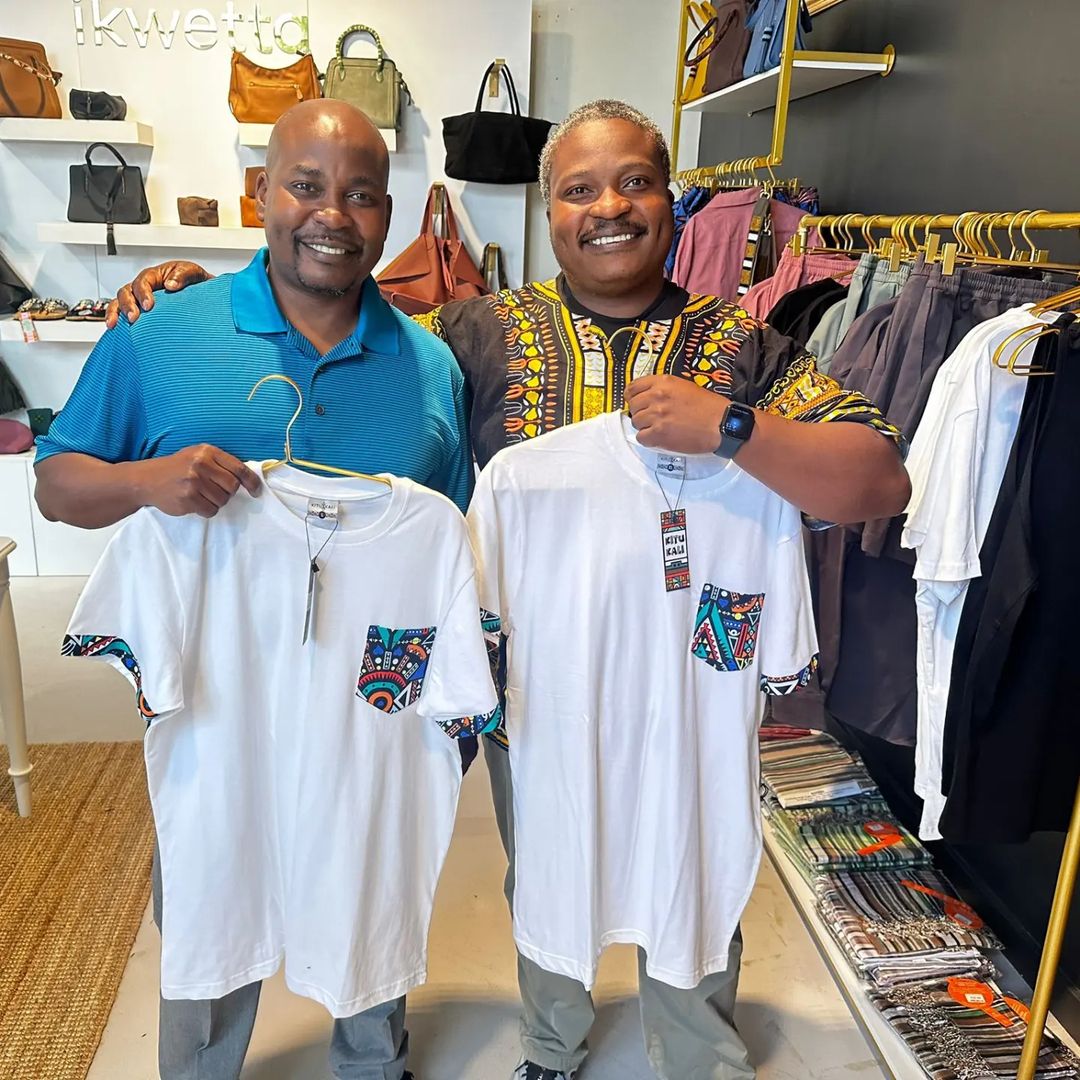 [PHOTO: Clients posing for a picture after shopping at the Vivo Fashion USA store]
[PHOTO: Clients posing for a picture after shopping at the Vivo Fashion USA store]
It has been 30 days since the Kenyan Vivo woman fashion brand opened its branch in the United States of America, marking a significant milestone for the East African fashion industry. On May 21st, 2024, Vivo and its partner brands made history by moving beyond East Africa and stepping onto the international stage. At the forefront of this remarkable achievement is Wandia Gichuru, a pioneer in supporting and promoting made-in-Kenya fashion and textiles.
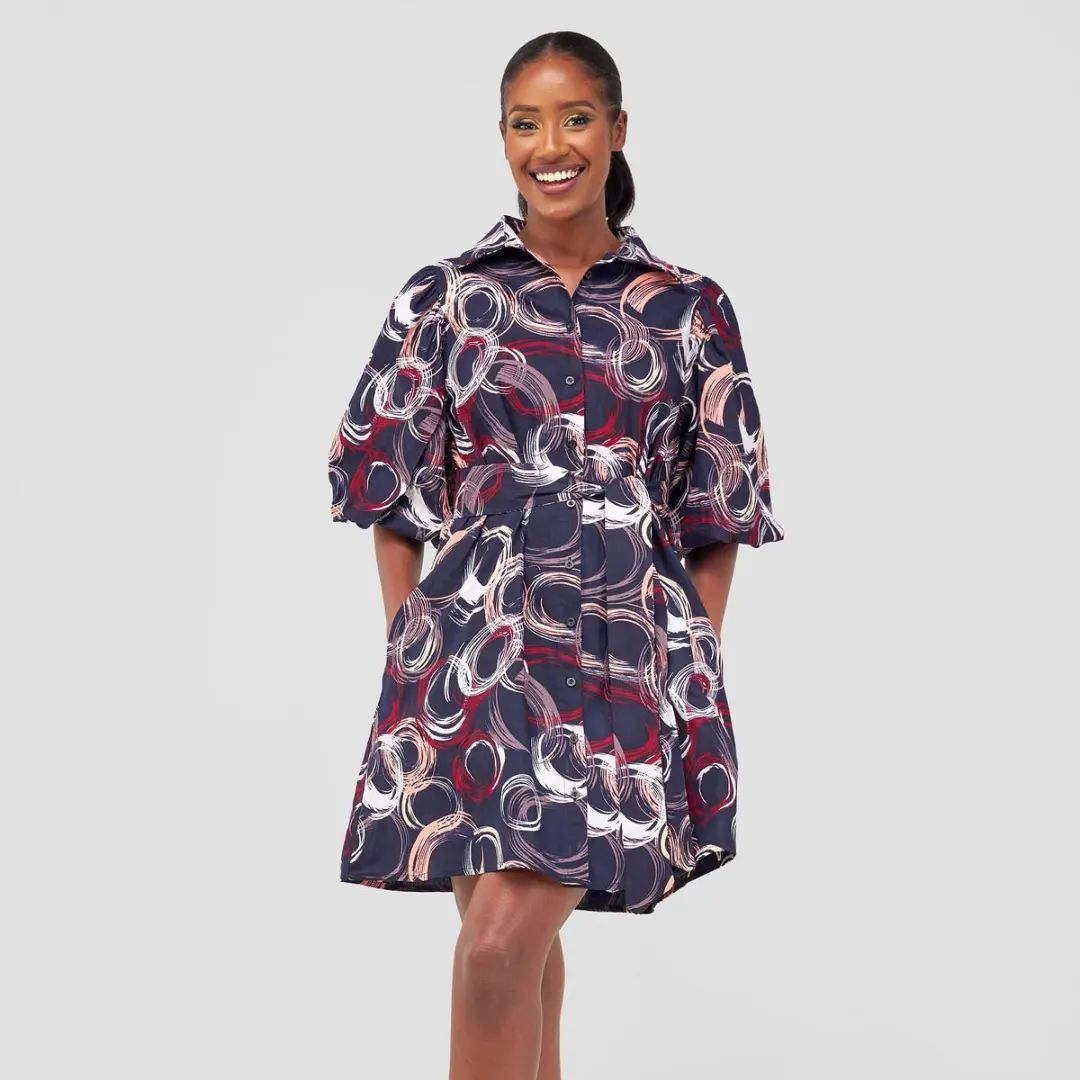 [PHOTO: Made In Kenya, latest collection at the Vivo Fashion USA store]
[PHOTO: Made In Kenya, latest collection at the Vivo Fashion USA store]
ALSO READ: The Vivo Fashion Group Opened USA Shop in Atlanta: Made in Kenya in Fashion
In a recently released video by Vivo Fashion USA and the Vivo woman, Wandia Gichuru expressed her gratitude and excitement about this groundbreaking development. She thanked everyone who contributed to this milestone for Made in Kenya fashion designers and textile manufacturers. Particularly noteworthy was her appreciation for the collaborated Kenyan fashion brands who responded to her call just three weeks before the opening of Vivo USA.
"The Vivo team first and foremost, just look at me like I am crazy every time I say there is this new thing, this new idea we want to jump on," Gichuru remarked. "They roll up their sleeves and work, and they work hard, and they work long, and somehow we make it happen."
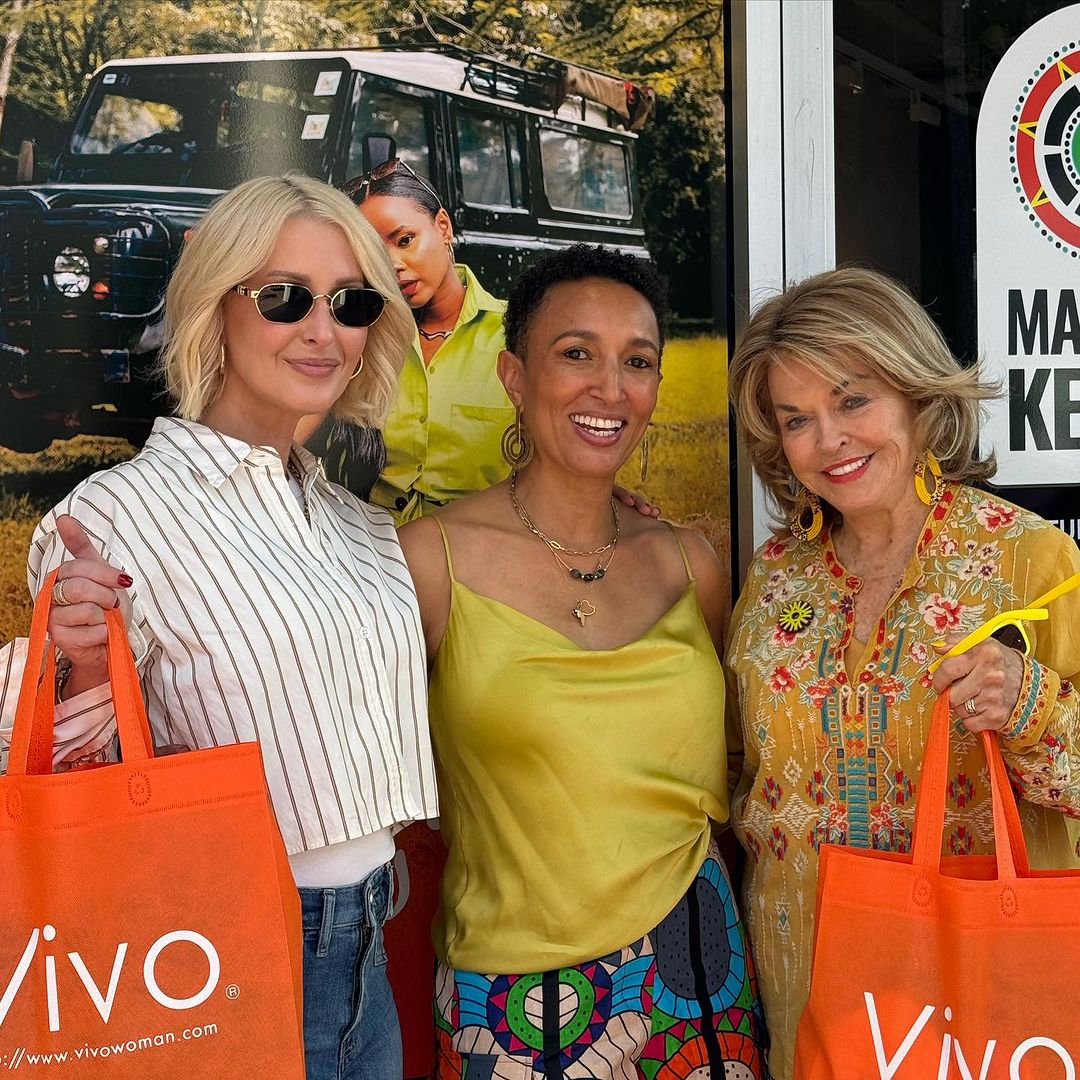 [PHOTO: Wandia Gichuru standing in the middle, Co-Founder and CEO of Vivo Woman]
[PHOTO: Wandia Gichuru standing in the middle, Co-Founder and CEO of Vivo Woman]
This statement encapsulates the dedication and resilience that have been the hallmarks of Vivo's journey to international recognition. The opening of Vivo Fashion USA didn't come out of the blue. For years, Wandia Gichuru has been vocal about her desire to help Kenyan women fashion designers and entrepreneurs sell their products. In an interview given three weeks before the successful establishment of their shop in the USA, she shared her vision.
"Now my focus, in addition to running Vivo, is to help other entrepreneurs, and especially women entrepreneurs, develop their own businesses. We are still struggling in so many ways, but unless people hear or see someone trying, it's very difficult for them to imagine what's possible."
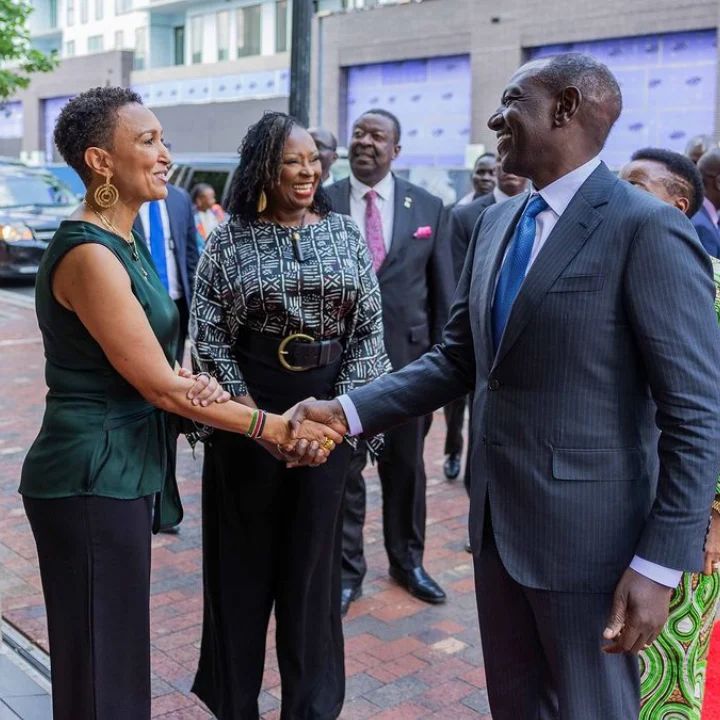 [PHOTO: Wandia Gichuru Co-Founder and CEO of Vivo Woman shaking hand with H.E William Ruto the president of the Republic of Kenya in Atlanta, USA]
[PHOTO: Wandia Gichuru Co-Founder and CEO of Vivo Woman shaking hand with H.E William Ruto the president of the Republic of Kenya in Atlanta, USA]
This commitment to empowering other entrepreneurs, particularly women, has been a driving force behind Vivo's expansion and success. The successful journey of the Vivo women opening their store in the USA was sealed with the support of His Excellency William Ruto, the President of the Republic of Kenya who inaugurated the store. This high-level endorsement underscores the significance of this achievement not just for Vivo, but for Kenya's fashion industry as a whole.
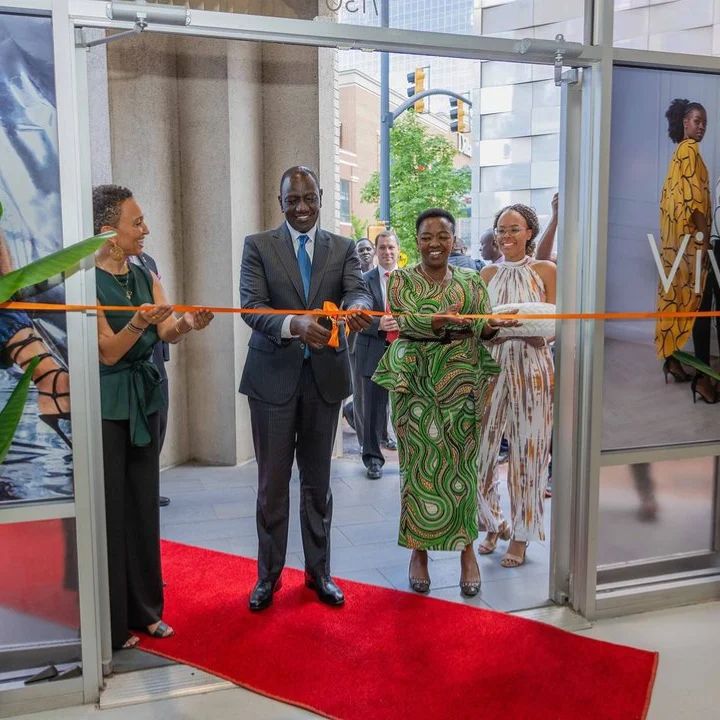 [PHOTO: H.E William Ruto the president of the Republic of Kenya and his wife during the launch of the Vivo fashion USA store in Atlanta, USA]
[PHOTO: H.E William Ruto the president of the Republic of Kenya and his wife during the launch of the Vivo fashion USA store in Atlanta, USA]
Wandia Gichuru acknowledged the wide-ranging support that made this venture possible. "I want to thank the Kenyan community in Kenya and here in the USA. They drove along to join us and they helped and spread the word about the opening and Made in Kenya fashion," she said. The support extended beyond the Kenyan diaspora to include the USA Embassy in Kenya, USAID, and many others who played crucial roles in establishing the Vivo Fashion USA store.
The enthusiasm of the Kenyan community living in the USA was particularly heartening. As Wandia noted, "Kenyan community living in the USA showed us the love and ownership, they were saying yes, our brands, our brands are coming. Everywhere on social media. It was amazing to see their support."
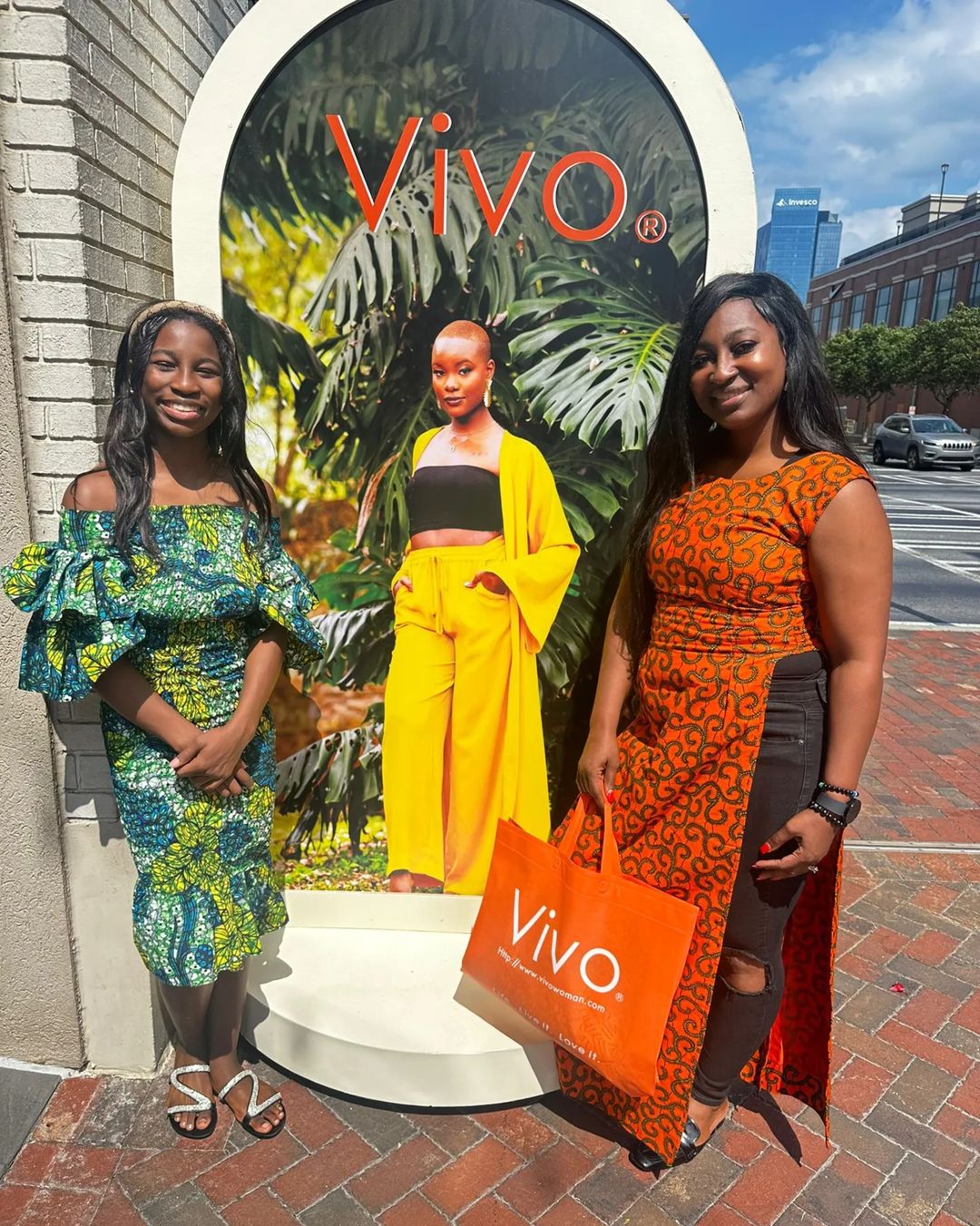 [PHOTO: Clients posing for a picture outside, after shopping at the Vivo Fashion USA store]
[PHOTO: Clients posing for a picture outside, after shopping at the Vivo Fashion USA store]
This outpouring of support demonstrates the pride and excitement surrounding the international expansion of a Kenyan brand, and the potential it represents for the country's fashion industry as a whole.
The fashion industry in Kenya is experiencing rapid growth, with numerous upcoming fashion designers looking for opportunities similar to what Wandia and her team have achieved by opening a store in the USA. The Nairobi Street Fashion 2024 event, held at Karen Village, showcased this burgeoning talent, with more than 15 upcoming Kenyan fashion designers presenting unique and inspiring collections.
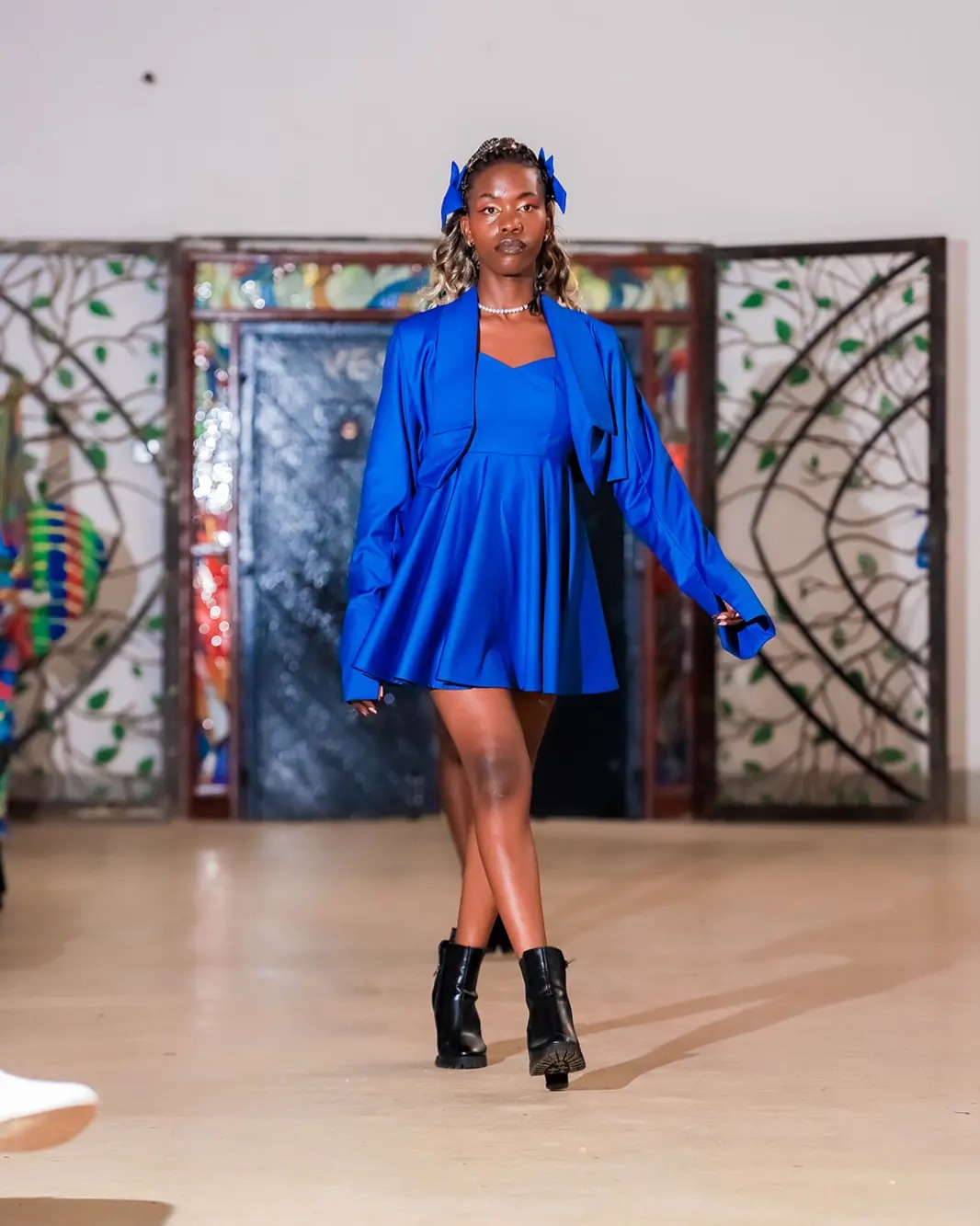 [PHOTO: A model on the runway showcasing a collection made by an upcoming Kenyan fashion designer at the Nairobi Street Fashion 2024]
[PHOTO: A model on the runway showcasing a collection made by an upcoming Kenyan fashion designer at the Nairobi Street Fashion 2024]
RCFS'SMEDIA spoke to several of these upcoming designers to gauge their reactions to Vivo's USA expansion and whether they saw it as a potential opportunity for their own futures.
Opinions among the designers were mixed. One designer expressed skepticism, saying, "Our community doesn't understand the upcoming fashion designer and even the government doesn't support the upcoming designers. It will take us a lot of energy to be able to sell in that store USA, I don't even think it will be possible."
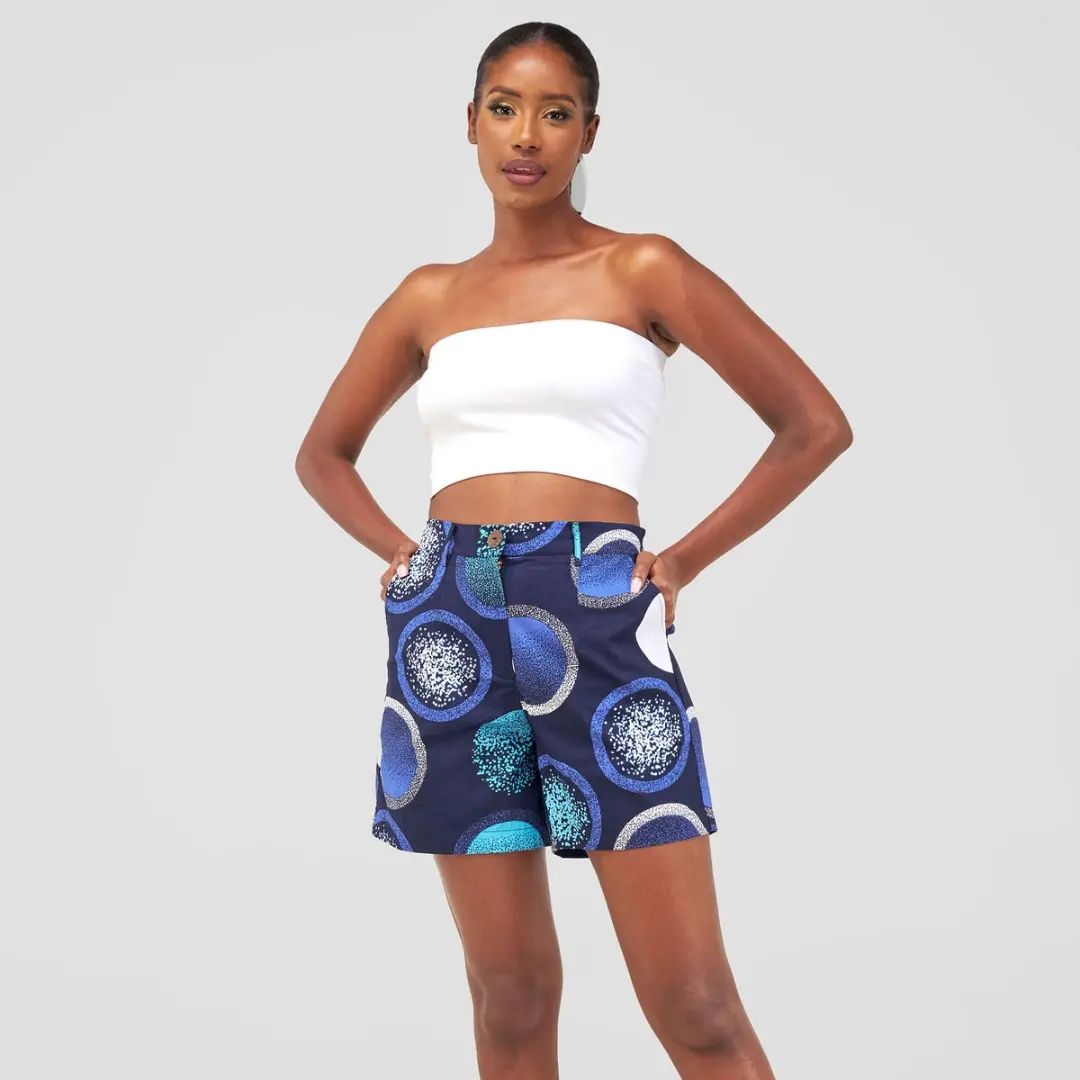 [PHOTO: Made In Kenya, latest collection at the Vivo Fashion USA store]
[PHOTO: Made In Kenya, latest collection at the Vivo Fashion USA store]
This perspective highlights the challenges still faced by many in Kenya's fashion industry, including a lack of understanding and support from both the community and government bodies.
However, not all designers shared this pessimistic view. Another upcoming Kenyan fashion designer saw Vivo's achievement as a positive development for the industry as a whole. "I haven't met with Wandia Gichuru before, just following her on her Instagram page. I really like her work there is no doubt that Vivo Fashion USA will benefit all of us," she said, expressing hope that her products would soon find their way to the US store.
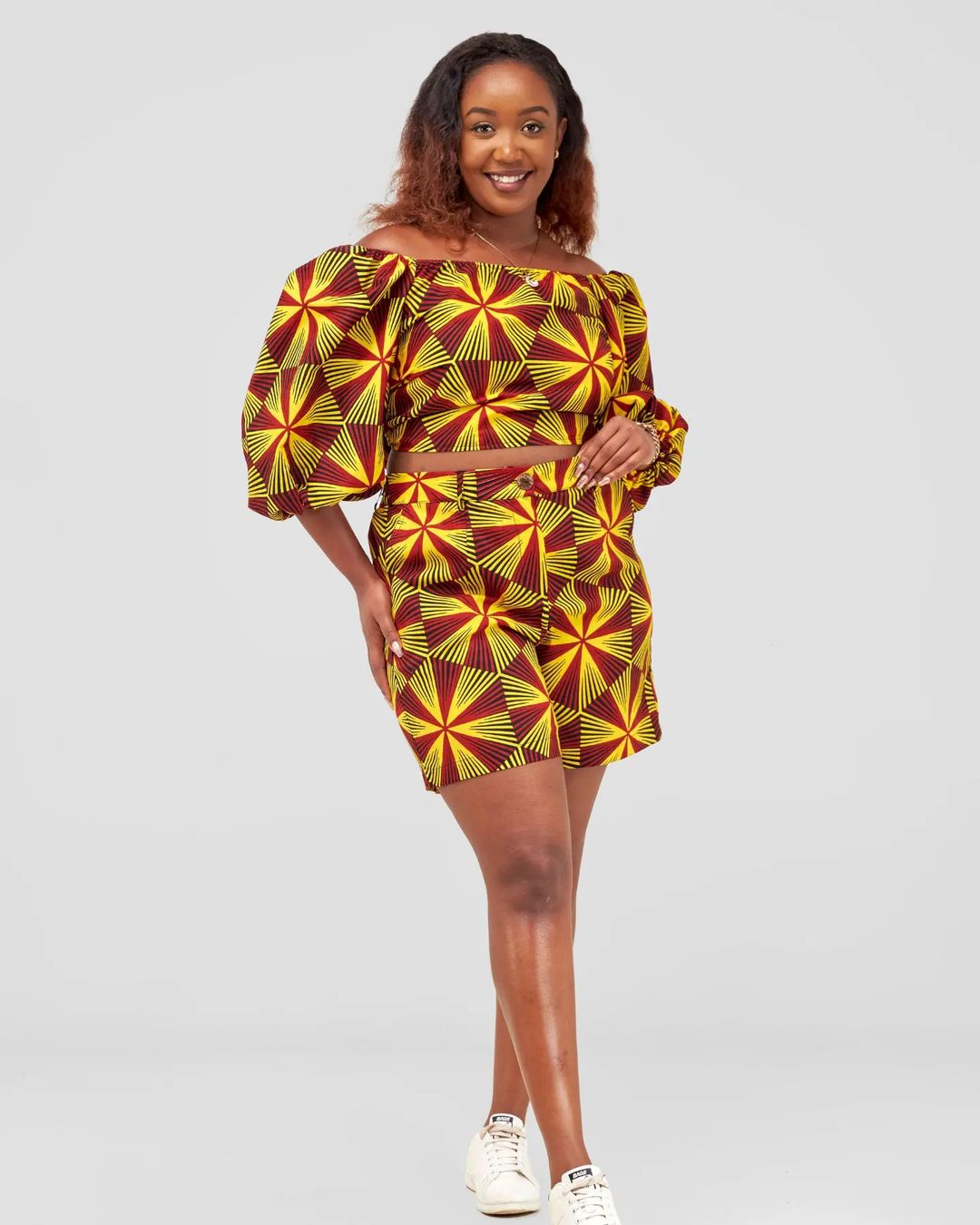 [PHOTO: Made In Kenya, latest collection at the Vivo Fashion USA store]
[PHOTO: Made In Kenya, latest collection at the Vivo Fashion USA store]
These contrasting opinions reflect the complex reality of Kenya's fashion industry one filled with both challenges and opportunities. The opening of Vivo Fashion USA is more than just a success story for one brand; it represents a potential turning point for Kenya's entire fashion industry. By breaking into the US market, Vivo has opened doors and minds to the possibility of Kenyan fashion gaining international recognition and market share.
For established brands, this expansion provides a direct pathway to reach a broader, more diverse customer base. It offers exposure to new trends, preferences, and market dynamics that can inform and enhance their designs and business strategies back home.
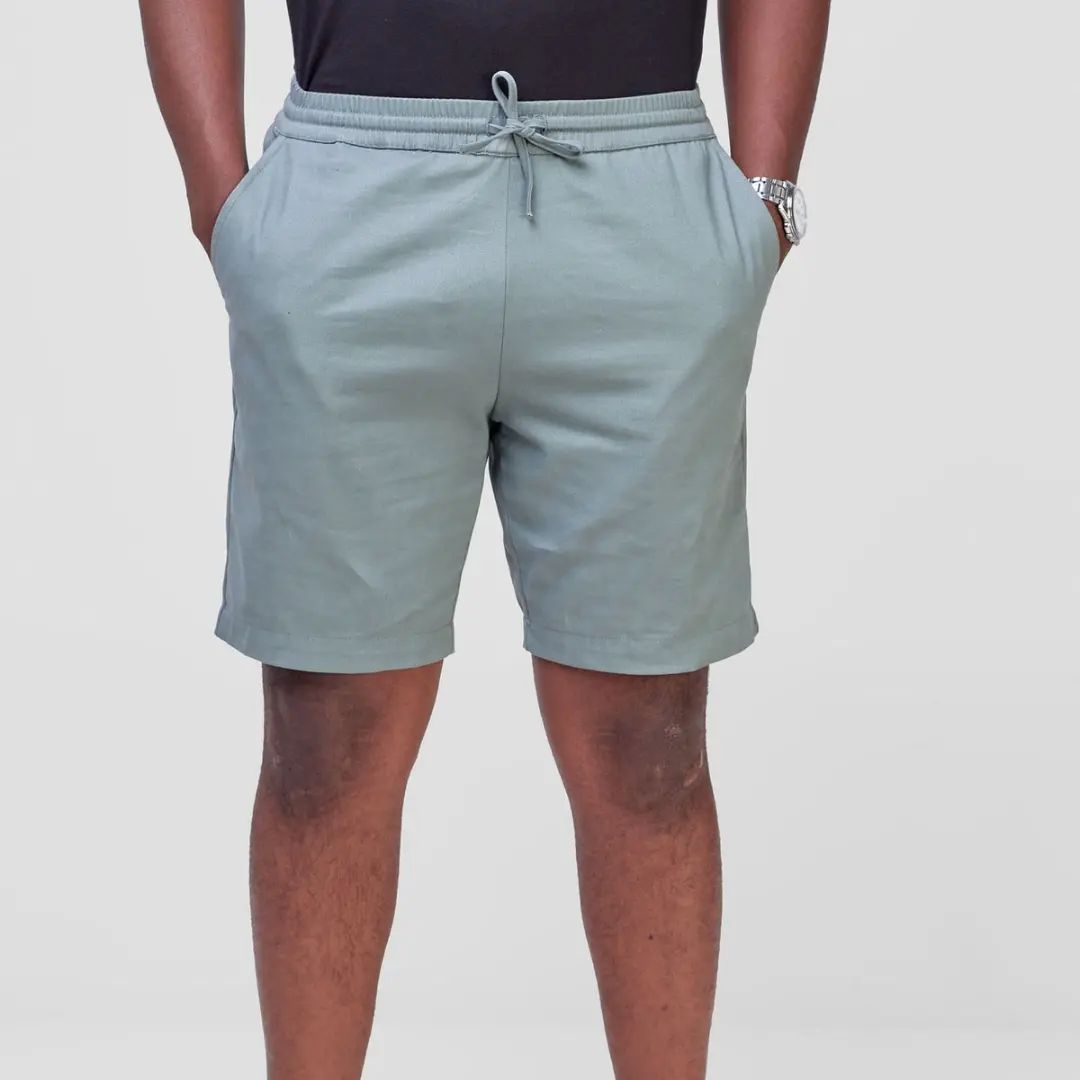 [PHOTO: Made In Kenya, latest collection at the Vivo Fashion USA store]
[PHOTO: Made In Kenya, latest collection at the Vivo Fashion USA store]
For upcoming designers, while the path to selling in the US store may seem daunting, Vivo's success serves as both inspiration and proof of concept. It demonstrates that with the right combination of quality, creativity, perseverance, and support, Kenyan fashion can compete on the global stage.
Despite the excitement surrounding Vivo's US expansion, it's important to acknowledge the challenges that remain for Kenya's fashion industry. As highlighted by some of the upcoming designers, there are still significant hurdles to overcome, including; limited understanding and support from local communities and a lack of government support for upcoming designers.
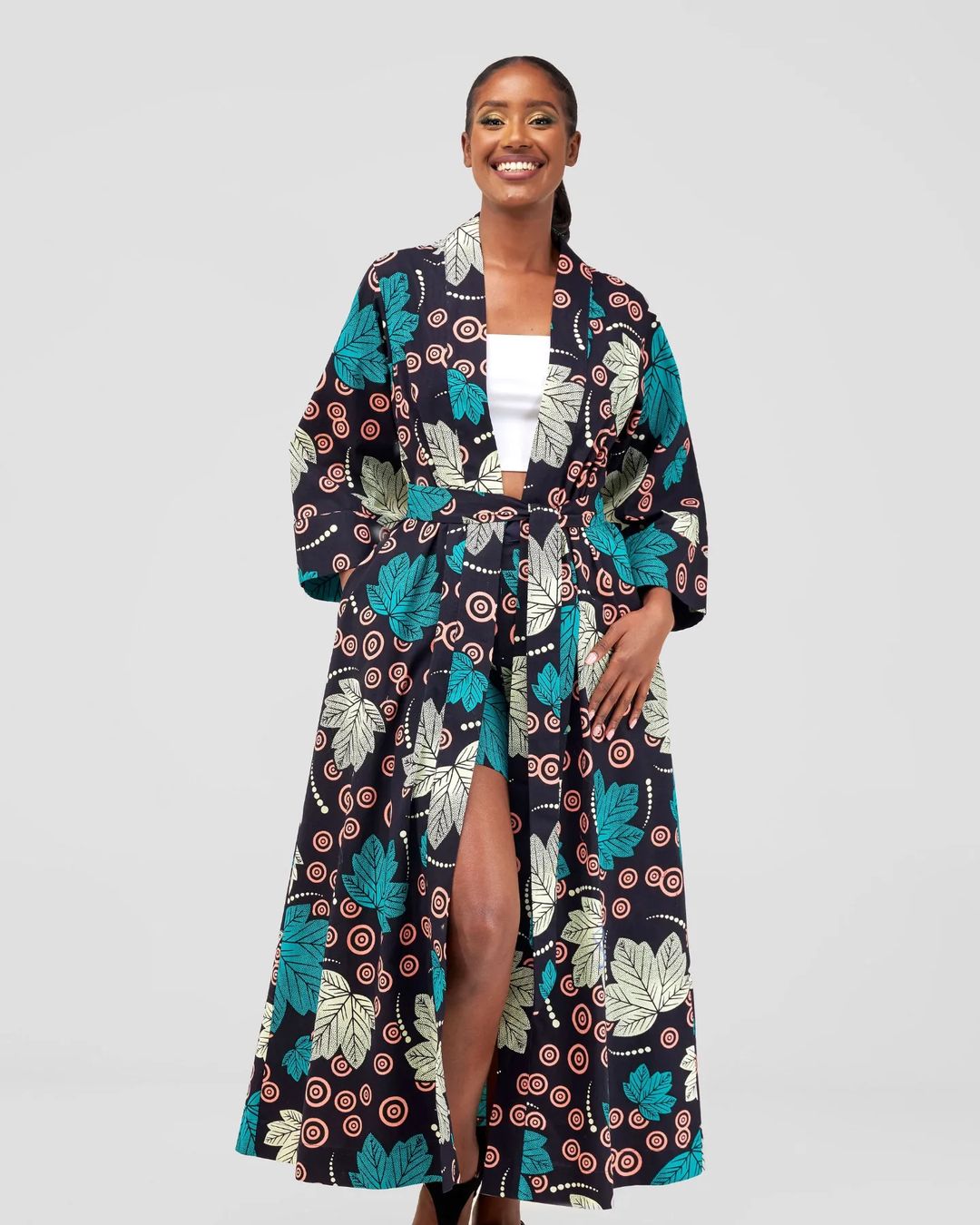 [PHOTO: Made In Kenya, latest collection at the Vivo Fashion USA store]
[PHOTO: Made In Kenya, latest collection at the Vivo Fashion USA store]
According to a Kenyan fashion expert, there are some other challenges such as limited access to resources and capital, difficulties in scaling production to meet international demand, and navigating complex international trade regulations and logistics. However, Vivo's success also points to potential solutions and opportunities.
“ Then we can see the increased collaboration between established and upcoming designers and a greater focus on educating the public about the value of local fashion, this includes the advocacy for more supportive government policies as well as leveraging technology and e-commerce to reach global markets,” Fashion expert says
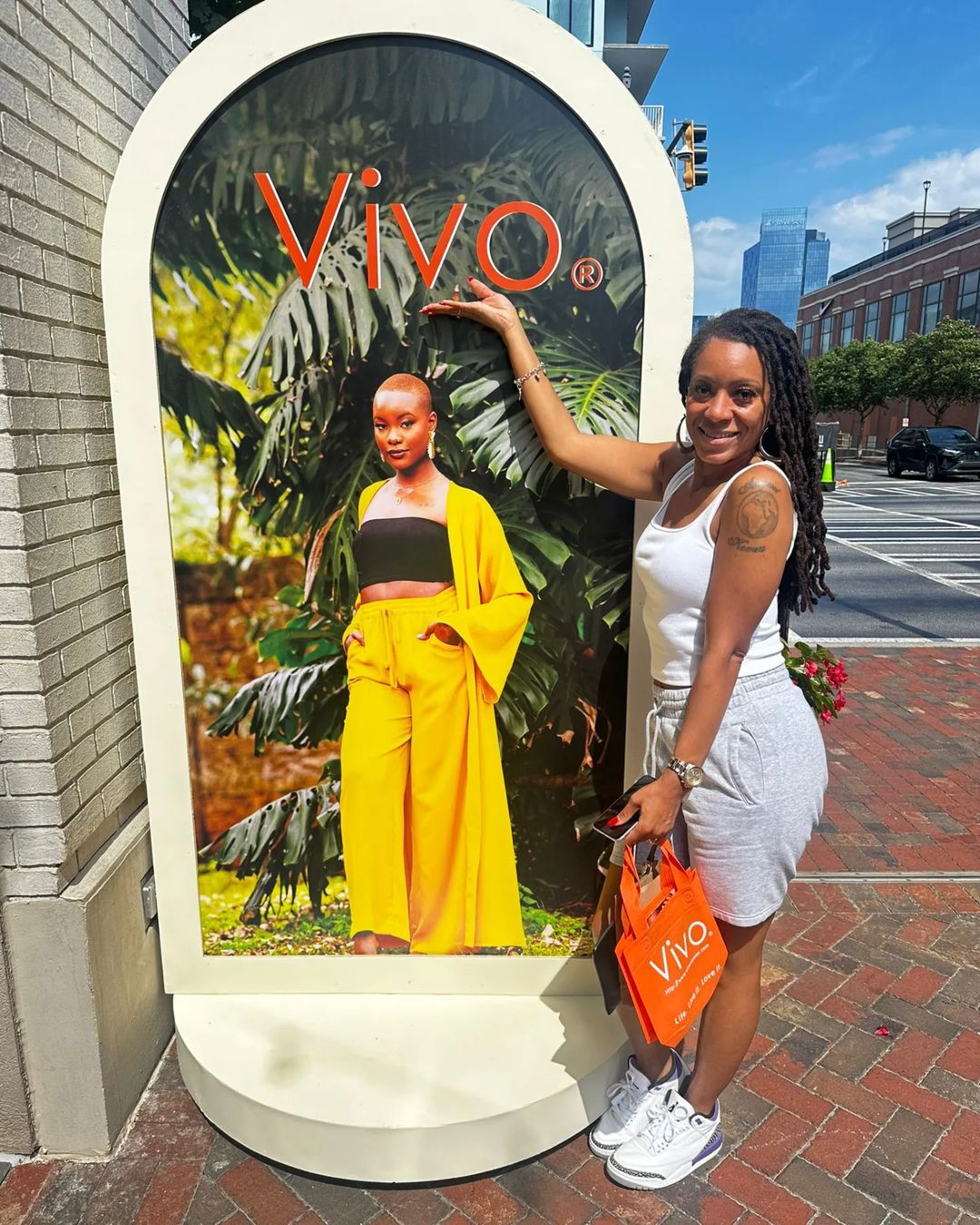 [PHOTO: A Client posing for a picture outside, after shopping at the Vivo Fashion USA store]
[PHOTO: A Client posing for a picture outside, after shopping at the Vivo Fashion USA store]
As Vivo Fashion USA completes its first month of operation, the initial signs are promising. The enthusiasm from the Kenyan community in the US, coupled with the support from various stakeholders, suggests a strong foundation for future growth.
However, the true test will be in the months and years to come. Can Vivo maintain its momentum and establish a lasting presence in the competitive US market? Will other Kenyan brands be able to follow in its footsteps? How will this international exposure influence the development of Kenya's fashion industry back home?
These are questions that only time will answer. What is clear, however, is that Vivo's expansion represents a significant milestone for Kenyan fashion. It has shown what is possible and set a new benchmark for the industry to aspire to.
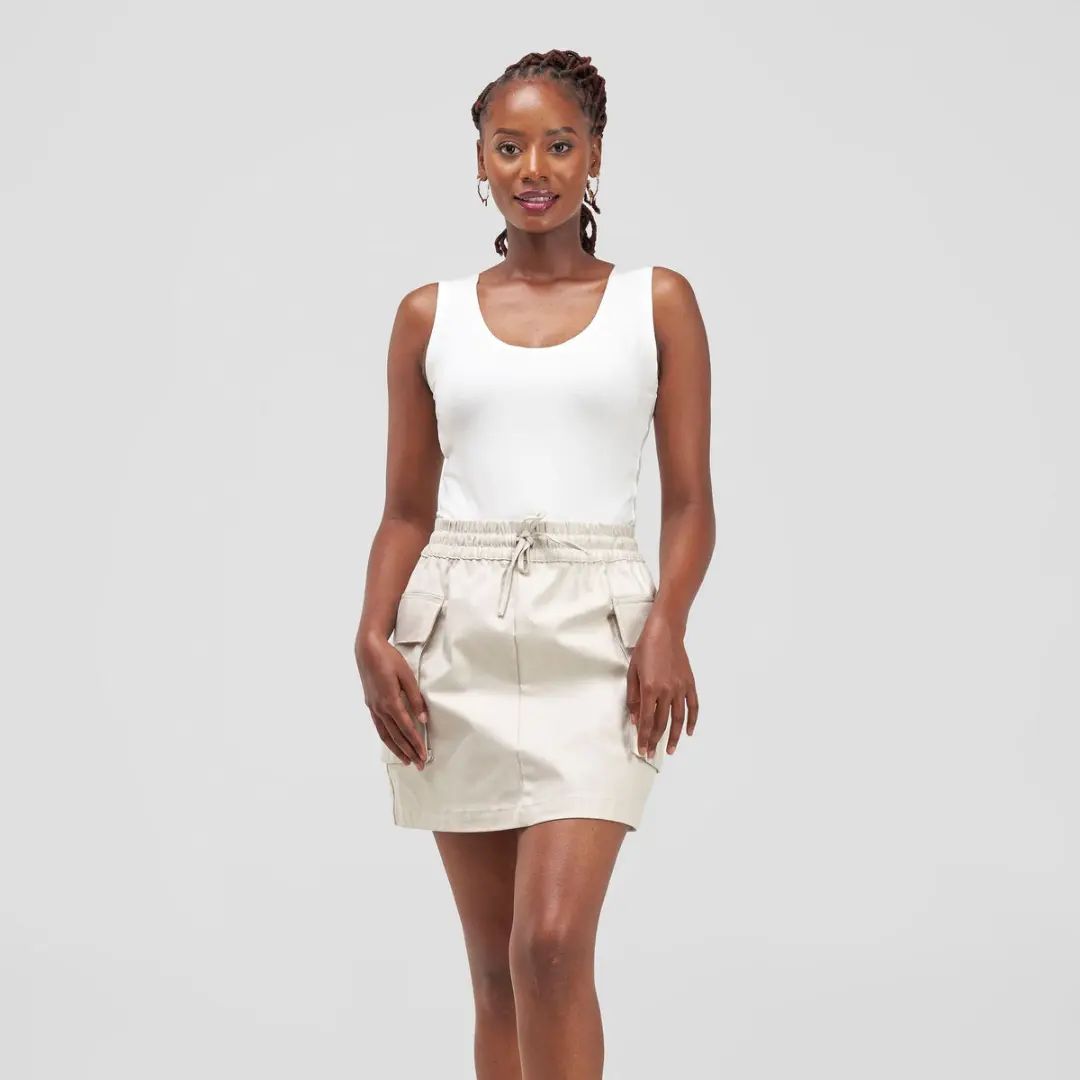 [PHOTO: Made In Kenya, latest collection at the Vivo Fashion USA store]
[PHOTO: Made In Kenya, latest collection at the Vivo Fashion USA store]
Wandia Gichuru's vision of helping other entrepreneurs, especially women, develop their own businesses is now more relevant than ever. As Vivo continues to blaze a trail in the US market, it will be crucial for the brand to stay true to this mission, using its success to lift up other Kenyan designers and brands.
ALSO READ: Fashion in Kenya- Wandia Gichuru on Building a Fashion Business in Kenya and Beyond
The opening of Vivo Fashion USA marks a new chapter in the story of Kenyan fashion. It's a testament to the creativity, quality, and potential of Made in Kenya products, and a tribute to the hard work and vision of Wandia Gichuru and her team.
 [PHOTO: Wandia Gichuru speaking at the Vivo Fashion USA store event]
[PHOTO: Wandia Gichuru speaking at the Vivo Fashion USA store event]
" That is a very good step for our fashion designers and the fashion industry in general. That store will keep our flag high on the global fashion scene" A fashion expert explains"We should keep in mind that we have many fashion designers who want that opportunity, who want to see their collection being sold in that store. The answer for Ms Wandia and her team is to continue to include other Kenyan brands not necessarily the group brands.
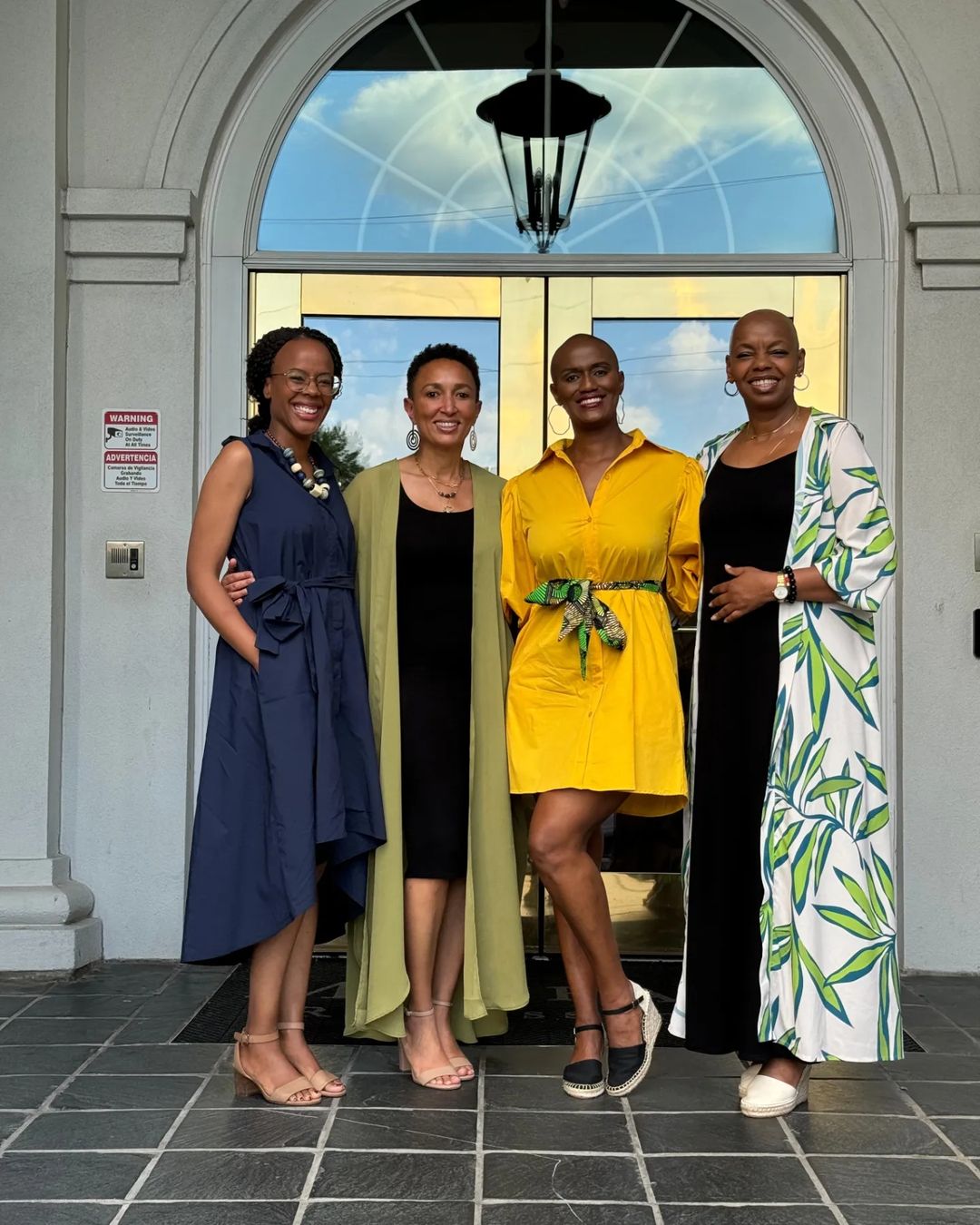 [PHOTO: Second form left- Wandia Gichuru Co-Founder and CEO of Vivo Woman at the launch of the Vivo Fashion USA store]
[PHOTO: Second form left- Wandia Gichuru Co-Founder and CEO of Vivo Woman at the launch of the Vivo Fashion USA store]
So far, so good for Vivo Fashion USA and potentially, for the future of Kenyan fashion on the global stage.
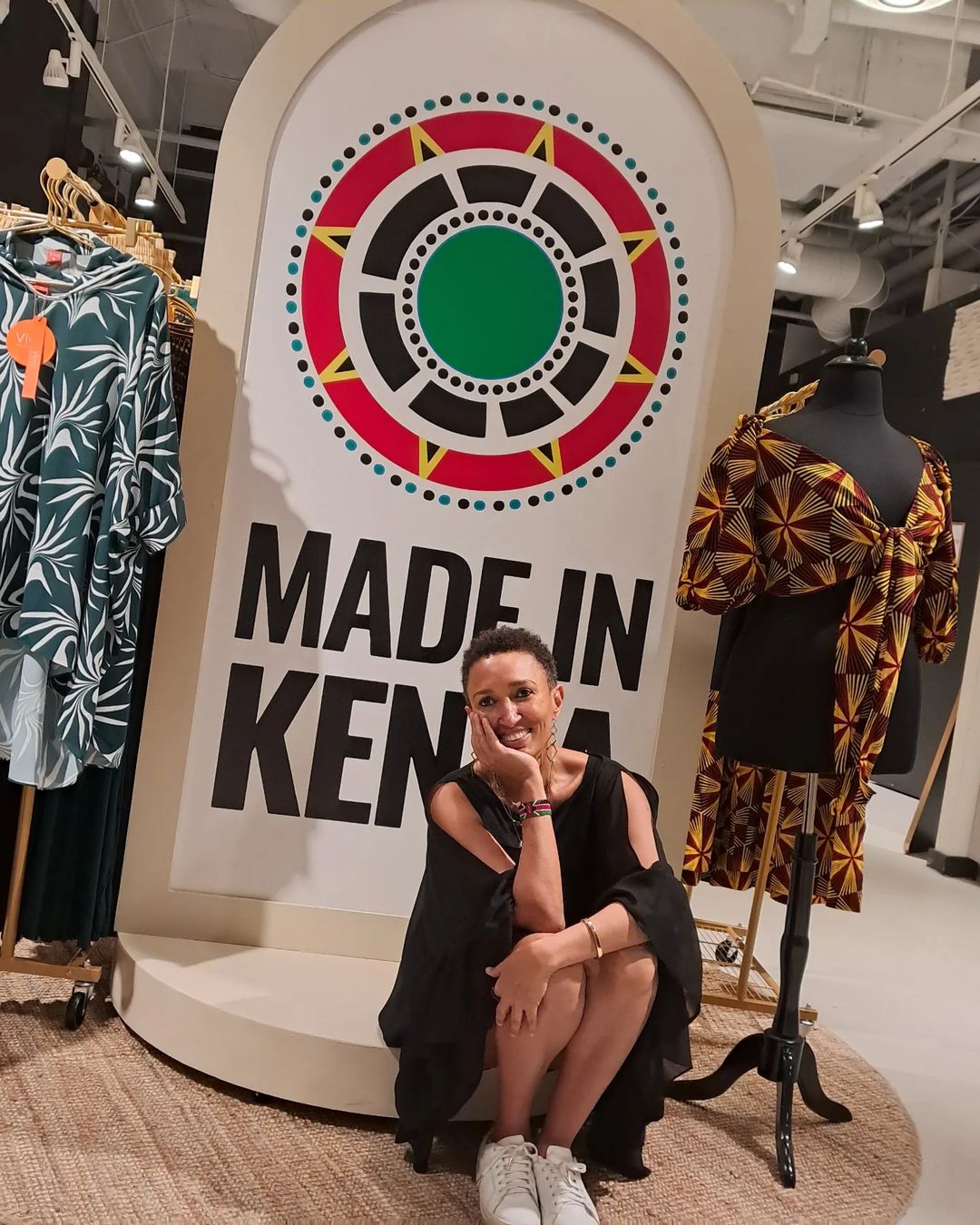 [PHOTO: Wandia Gichuru Co-Founder and CEO of Vivo Woman inside their shop in Atlanta, the USA]
[PHOTO: Wandia Gichuru Co-Founder and CEO of Vivo Woman inside their shop in Atlanta, the USA]
The AFAA East Africa Fashion and Art Expo 2024 in Nairobi: A Resounding Success
The African Fashion and Art Awards (AFAA2024) is organizing its annual continental events including the East Africa Fashion and Art Expo held in partnership with the 4Real Fashion Festival (4FF), which concluded triumphantly on May 11, 2024, at the Best Western Meridian Hotel in Nairobi, Kenya. This remarkable event brought together an eclectic mix of designers, models, and fashion enthusiasts from across the East Africa region, creating an unforgettable celebration of African creativity and talent.
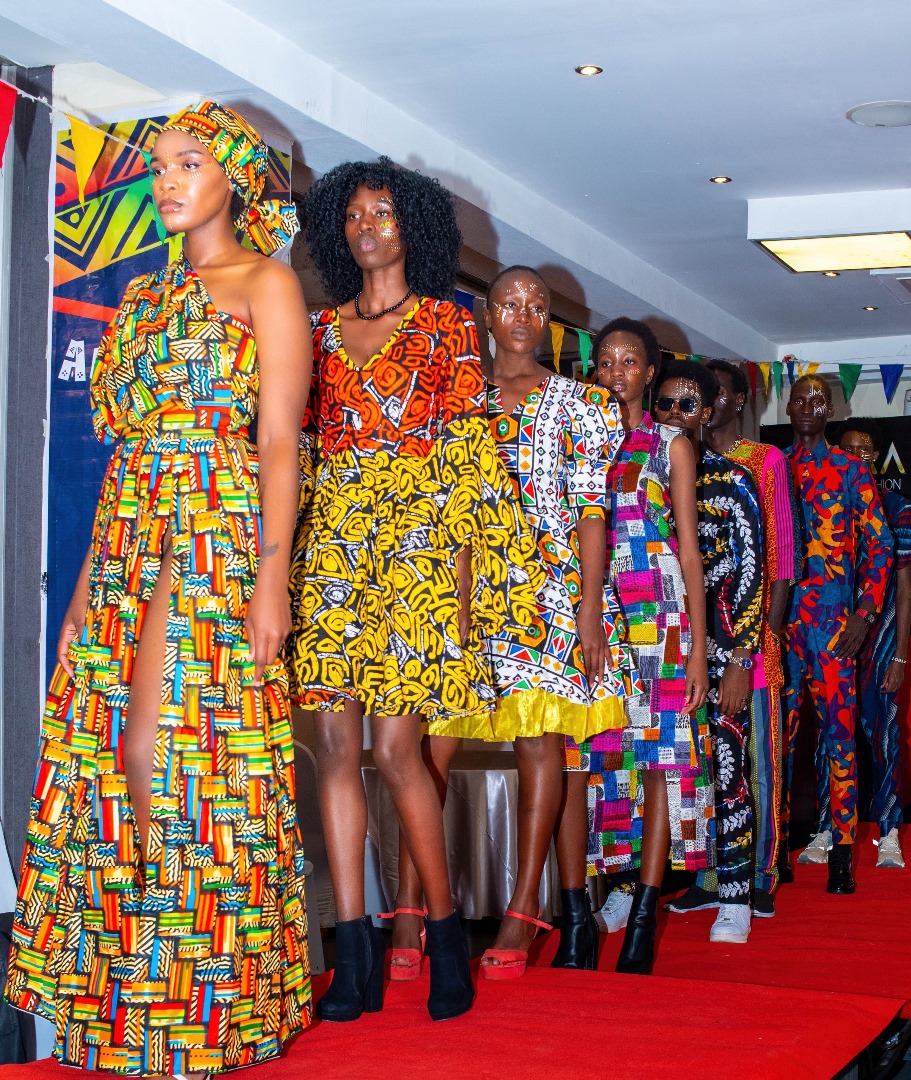 [PHOTO: The African Fashion and Art Award (AFAA2024)- East Africa Fashion and Art Expo in Nairobi}
[PHOTO: The African Fashion and Art Award (AFAA2024)- East Africa Fashion and Art Expo in Nairobi}
The East Africa Fashion and Art Expo 2024 featured an impressive lineup of 13 fashion designers from Kenya and South Sudan, showcasing their unique collections to an eager audience. Among the standout designers was the 9Lives Brand Known for their avant-garde approach, they captivated the audience with innovative and bold designs. There was also the House of Barikay who displayed their mastery of intricate patterns and vibrant colors, embodying the spirit of African heritage.
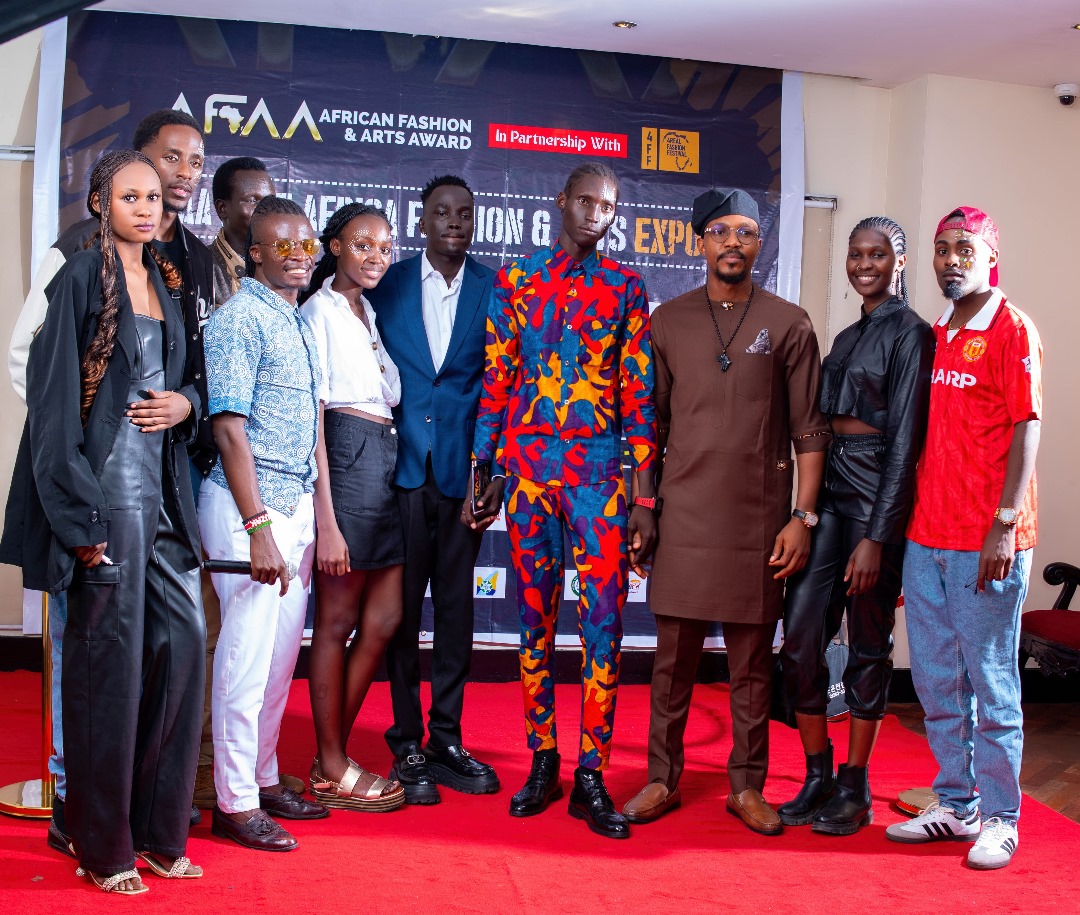 [PHOTO: 3rd from the right on the photo Mr. Kingsley Amako CEO and founder of the African Fashion and Art Awards with fashion designers, his team, and models ]
[PHOTO: 3rd from the right on the photo Mr. Kingsley Amako CEO and founder of the African Fashion and Art Awards with fashion designers, his team, and models ]
Among other names showcased in the AFAA2024 Nairobi edition included; ANIEZ Unique Designs, Emerald, Twitch Stitches, Taj Luxury Collection, House of Zahra, Billions, Jane's Fashion, KB Fashion, Just Luxury, Rieldo and the Kenyan Raw An incredible designer with a collection that reveals his creativity in recycled fashion.
The event organizer Kingsley Amako who is the CEO and the founder of the AFAA emphasized that the primary aim was to help these designers showcase their creations and generate sales. To bring the collections to life, approximately 30 models were hired to present the various designs on the runway.
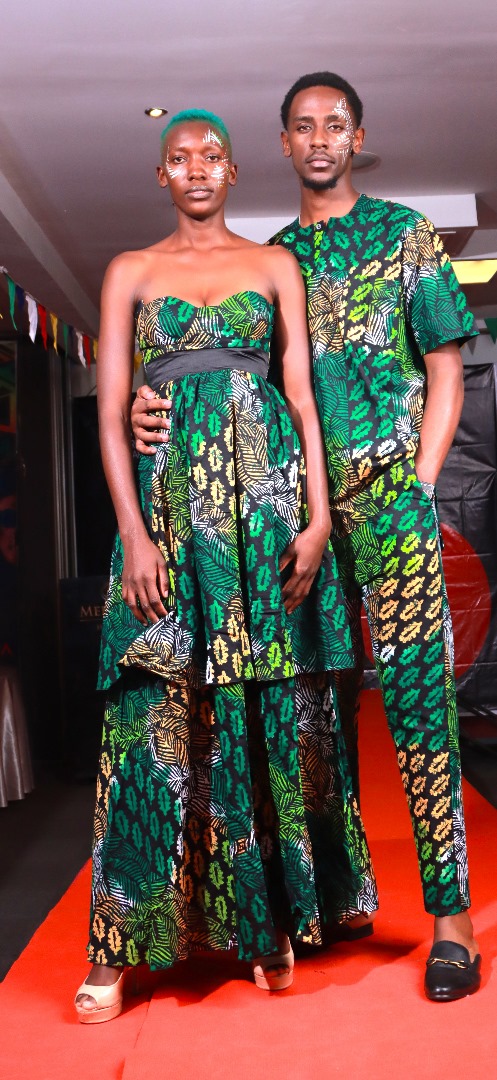 [PHOTO: The African Fashion and Art Awards (AFAA2024)-East Africa Fashion and Art Expo in Nairobi}
[PHOTO: The African Fashion and Art Awards (AFAA2024)-East Africa Fashion and Art Expo in Nairobi}
One Kenyan model expressed satisfaction with the event, stating, "The event was good, I can say, and models were very happy because they did their part and we were all paid." This model also sent an encouraging message to aspiring models, urging them to "keep chasing that dream."
 [PHOTO: The African Fashion and Art Awards (AFAA2024)- East Africa Fashion and Art Expo in Nairobi}
[PHOTO: The African Fashion and Art Awards (AFAA2024)- East Africa Fashion and Art Expo in Nairobi}
The AFAA East Africa Fashion and Art Expo was a vibrant celebration of African fashion and art, highlighting the diversity and creativity that defines the continent's fashion industry. It provided a platform for both established and emerging designers to showcase their talent and connect with potential customers and industry professionals.
However, despite the overall success of the event, some fashion enthusiasts in Nairobi pointed out areas for improvement. One attendee suggested that future events could benefit from earlier and more extensive advertising: "We all understand the energy the organizers used to put together the AFAA 2024 Nairobi edition, and big up to the organizers. But next time they will need to do advertisement earlier to help fashion people know event's details ahead of time."
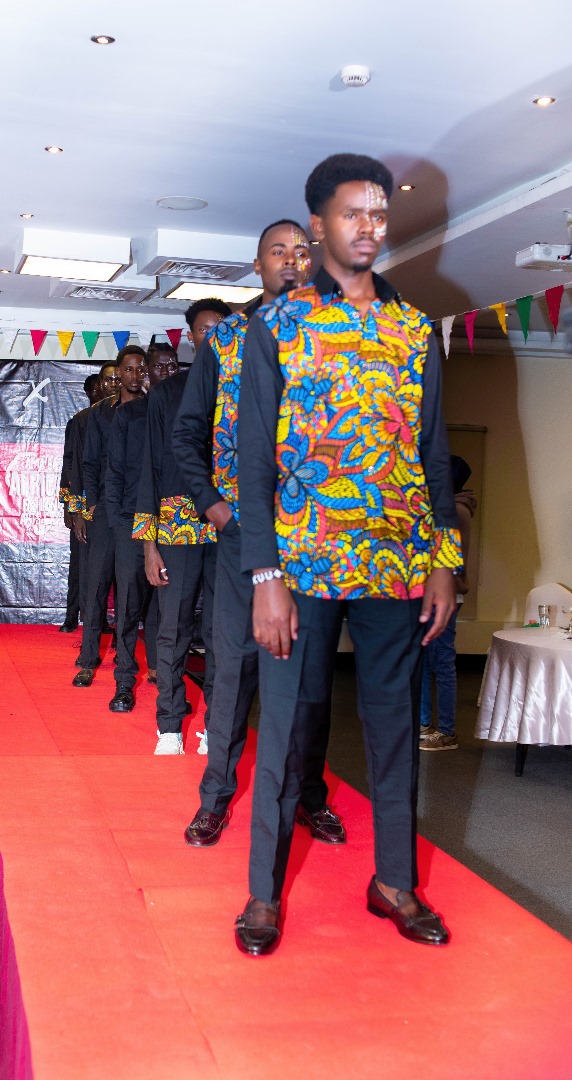 [PHOTO: The African Fashion and Art Awards (AFAA2024)- East Africa Fashion and Art Expo in Nairobi}
[PHOTO: The African Fashion and Art Awards (AFAA2024)- East Africa Fashion and Art Expo in Nairobi}
Another challenge noted was the venue's location. A fashion enthusiast commented on the difficulties posed by holding the event in Nairobi's Central Business District (CBD): "Scheduling an event downtown in Nairobi [CBD], you have to be very careful with the traffic. Some people were willing to attend the event, but thinking of parking and reaching the hotel during rush hour, some decided not to attend."
These insights highlight the importance of strategic planning in event organization, particularly in bustling urban centers like Nairobi "Future editions of the AFAA Expo or other fashion events coming to Nairobi might consider factors such as accessibility, parking availability, and traffic patterns when selecting venues to ensure maximum attendance and participation" says expo and events organizer in Kenya
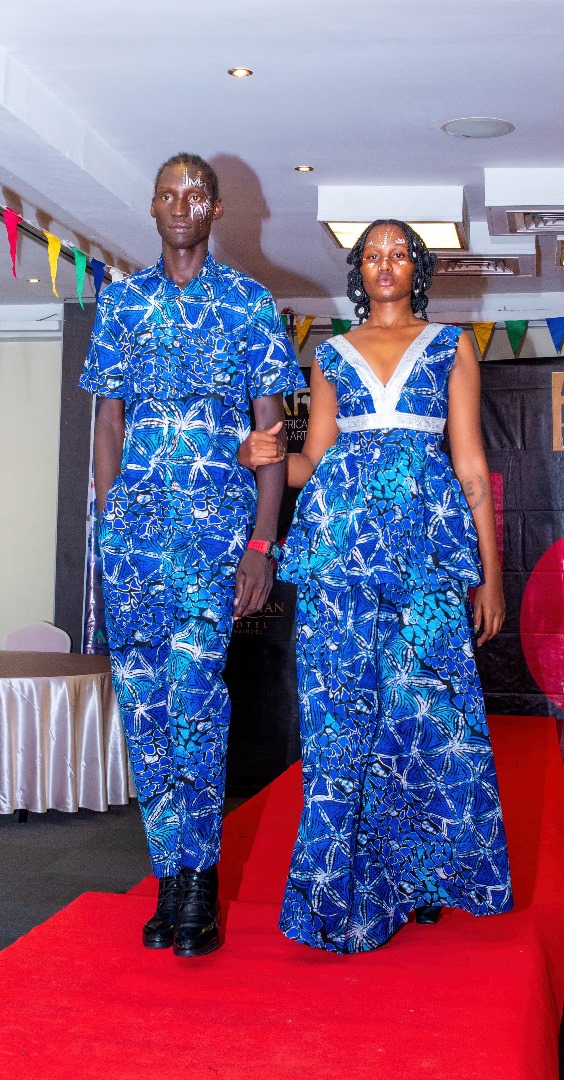 [PHOTO: The African Fashion and Art Awards (AFAA2024) -East Africa Fashion and Art Expo in Nairobi}
[PHOTO: The African Fashion and Art Awards (AFAA2024) -East Africa Fashion and Art Expo in Nairobi}
Despite these challenges, the AFAA East Africa Fashion and Art Expo successfully showcased the vibrancy and creativity of the African fashion scene. It provided a valuable platform for designers to display their work, connect with industry professionals, and potentially make sales. For models, it offered an opportunity to gain exposure and earn income, contributing to the growth of the local fashion industry.
The event also served as a precursor to the upcoming African Fashion and Arts Award in Cape Town, South Africa, scheduled for later in 2024. According to Kingsley, "The AFAAWARDS 2024 promises to be even more grandiose, as a gathering where fashion and art creatives will be rewarded and celebrated with an array of new designers and artists set to showcase their work."
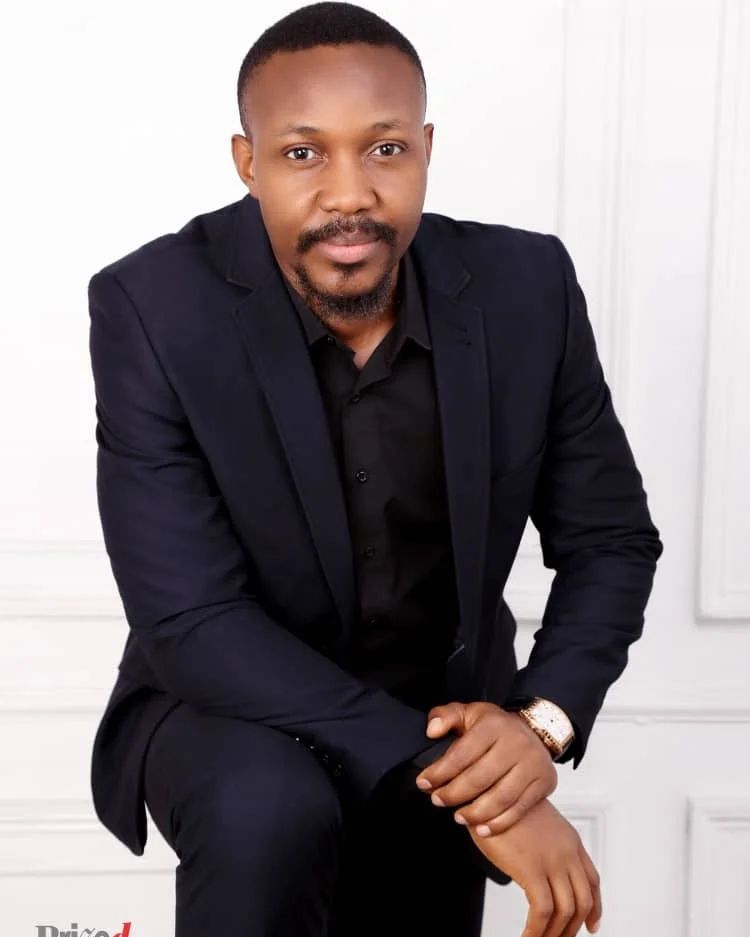 [PHOTO: Kingsley Amako CEO and founder of the African Fashion and Art Awards ]
[PHOTO: Kingsley Amako CEO and founder of the African Fashion and Art Awards ]
This upcoming event in Cape Town is expected to build on the success of the Nairobi Expo, further elevating the profile of African fashion and art on the global stage. It will likely attract an even wider range of designers, artists, and industry professionals from across the continent and beyond.
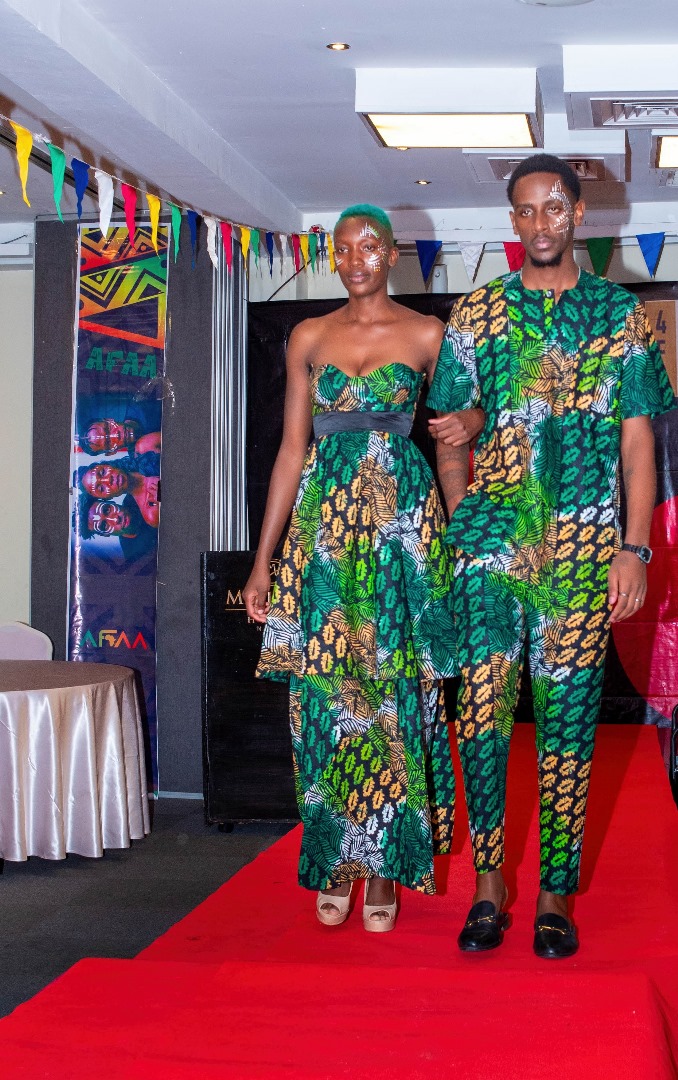 [PHOTO: The African Fashion and Art Awards (AFAA2024) - East Africa Fashion and Art Expo in Nairobi}
[PHOTO: The African Fashion and Art Awards (AFAA2024) - East Africa Fashion and Art Expo in Nairobi}
The AFAA events play a crucial role in promoting African fashion and art, both within the continent and internationally. They provide a platform for talented designers and artists to showcase their work, fostering creativity and innovation in the industry. Moreover, these events contribute to the economic growth of the fashion and art sectors, creating opportunities for employment and entrepreneurship.
As the African fashion industry continues to grow and evolve, events like the AFAA East Africa Fashion and Art Expo are becoming increasingly important. They not only celebrate the rich cultural heritage and creativity of African designers but also help to position Africa as a major player in the global fashion scene.
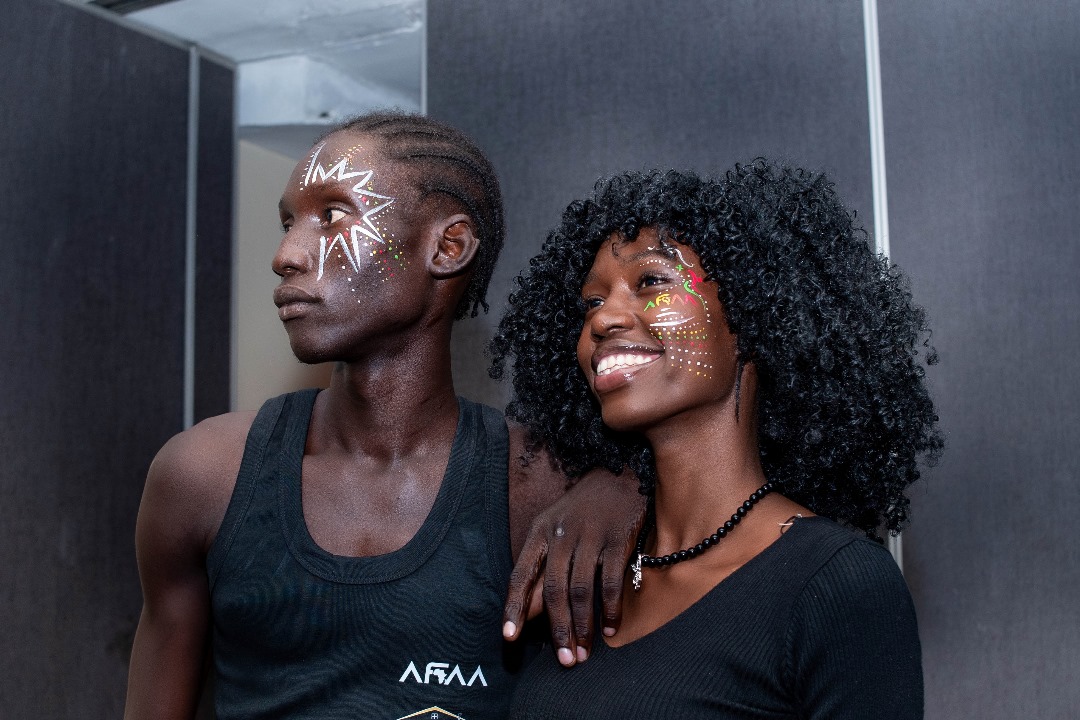 [PHOTO: The African Fashion and Art Awards (AFAA2024)- East Africa Fashion and Art Expo in Nairobi}
[PHOTO: The African Fashion and Art Awards (AFAA2024)- East Africa Fashion and Art Expo in Nairobi}
Looking ahead, the organizers of AFAA events are considering incorporating more digital elements to reach a wider audience and overcome logistical challenges. “Yes, we are aware of the virtual fashion shows, online marketplaces, and live streaming options and these will be among others to improve in the future by allowing our designers to connect with a global audience and potentially increase sales opportunities” added Kingsley
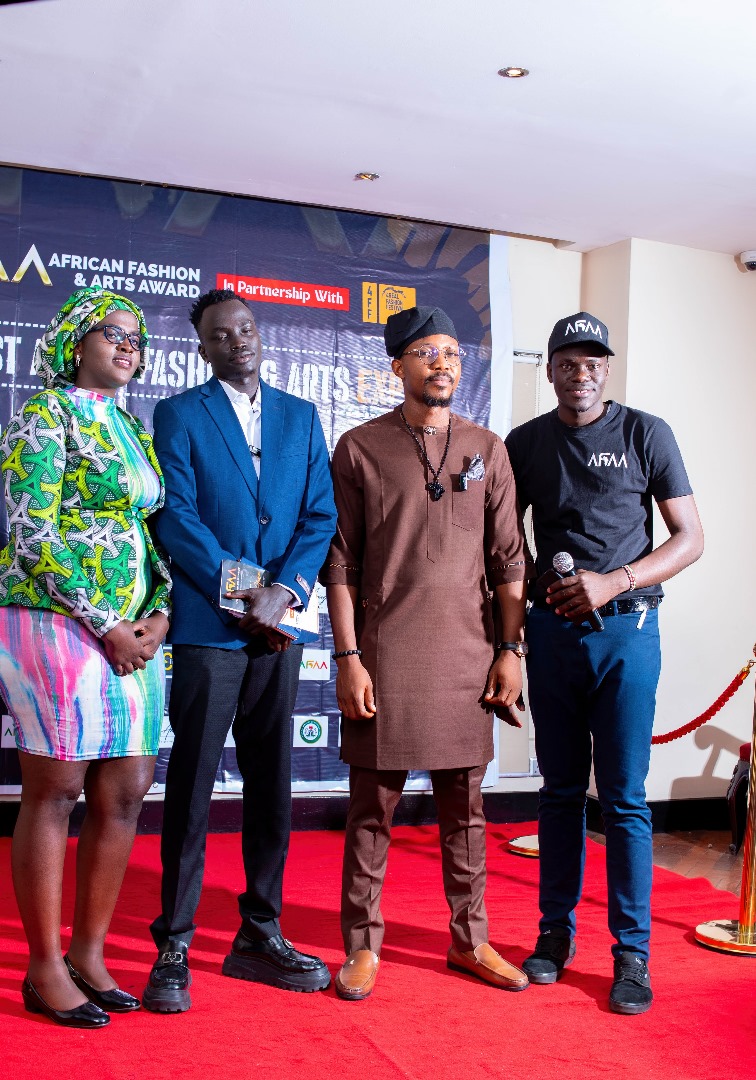 [PHOTO: Kingsley Amako CEO and founder of the African Fashion and Art Awards with his team after the event in Nairobi}
[PHOTO: Kingsley Amako CEO and founder of the African Fashion and Art Awards with his team after the event in Nairobi}
The African Fashion and Arts Award (AFAA) is an event designed to recognize and celebrate the creativity of young Africans in various verticals of the creative industries. AFAA is committed to driving economic development through fashion and arts, creating opportunities and platforms for emerging fashion entrepreneurs, creative visual artists, models, writers, poets, photographers, graphic designers, sculptors, podcasters, and more.
In 2022, AFAA received several endorsements from established Nigerian Government Ministries, Departments, Agencies, and Cooperations, which granted Nigeria the hosting rights for AFAA-2022 and 2023. The 2022 event was held in five different venues in Abuja and welcomed participants from Ghana, Zimbabwe, Egypt, Turkey, Côte D’Ivoire, Lebanon, and different parts of Nigeria.
What to Expect in the Kigali Novelty Fashion Experience 2024
The fashion scene in Kigali is set to sizzle once again with the highly anticipated second edition of the Novelty Fashion Experience. Building on the success and lessons learned from its inaugural event in 2023, the 2024 edition promises to be a grander, more inclusive, and truly spectacular celebration of style, creativity, and African fashion. Set to unfold over four exciting days, this year’s experience aims to elevate Kigali's status as an emerging fashion capital in East Africa.
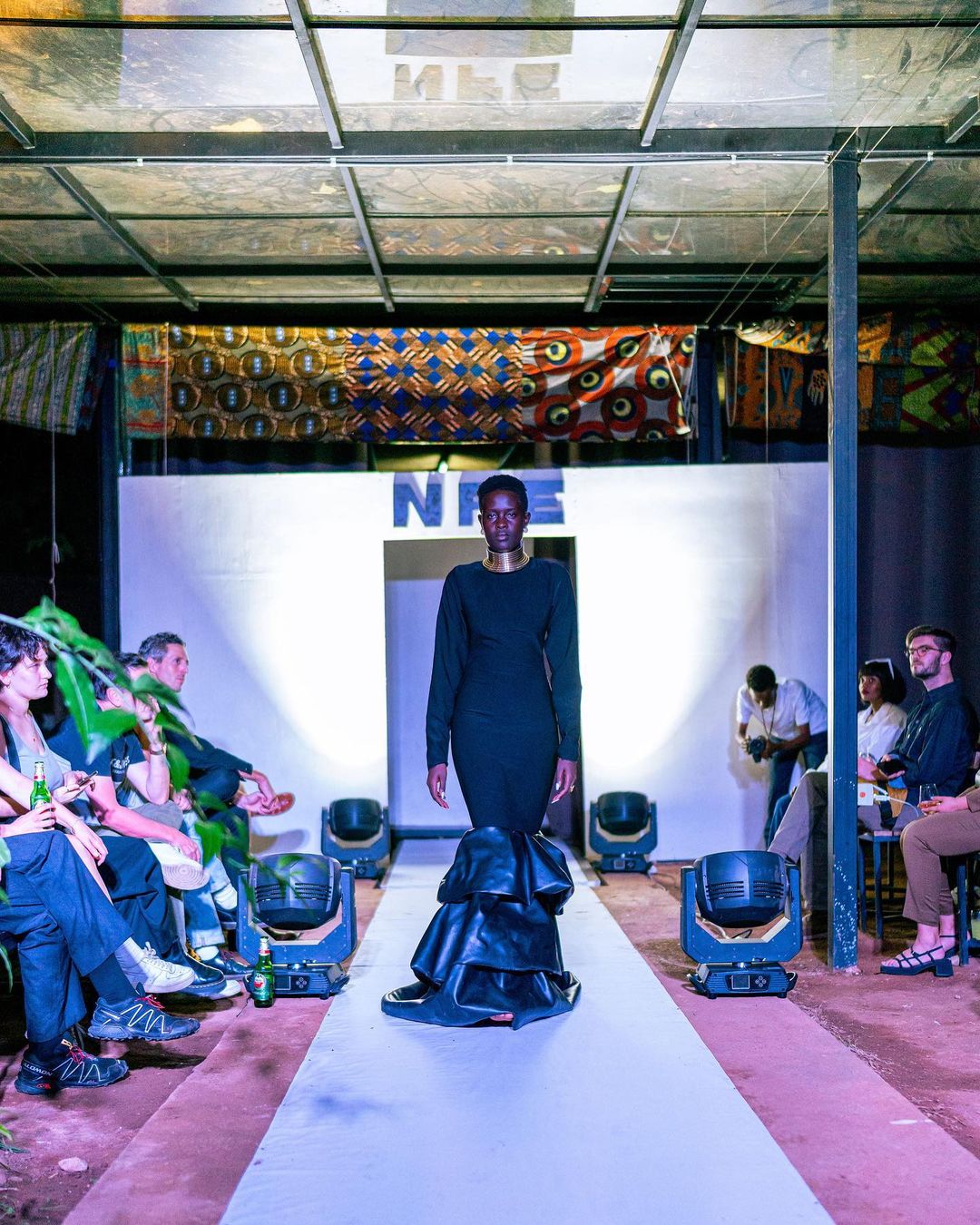 PHOTO: The Novelty Fashion Experience in 2023]
PHOTO: The Novelty Fashion Experience in 2023]
The first Novelty Fashion Experience in 2023 made waves in Kigali's fashion community. Showcasing the work of five talented local designers; MATHEO, SHEMA GAETAN, MAISON INKINGI, KONI CLOTHING, and BRAND 8 (representing Fashion Forward) the event was praised for its professional organization and vibrant collections.
A fashion enthusiast and journalist from Flash TV Rwanda noted, "The first edition of the Novelty Fashion Experience was a good fashion show. Their lighting was good, and their collections were very unique and very inspiring." The success was attributed in part to support from the Centre Culturel Francophone du Rwanda (the Institut Français in Rwanda), which provided crucial logistical assistance"
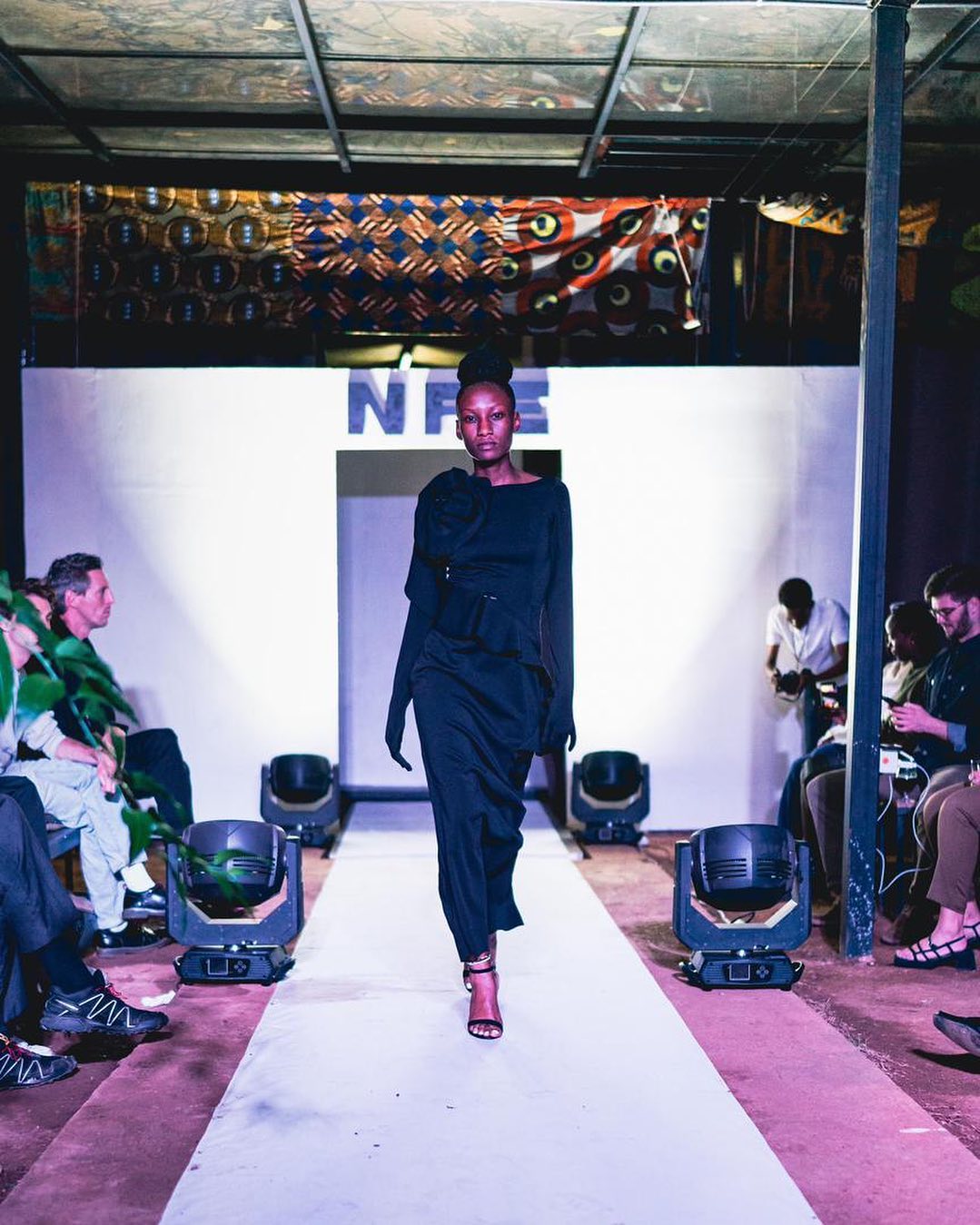 [PHOTO: The Novelty Fashion Experience in 2023]
[PHOTO: The Novelty Fashion Experience in 2023]
However, the event wasn't without its challenges. Some attendees noted that audience numbers were lower than expected, and there was a noticeable absence of established local designers among the crowd. One observer remarked, "I was there, the show was ok, but the number of the audience was easy to see and countable. I did not see other fashion designers besides their team members. These other established fashion designers with big names didn't attend their event. It was so sad."
The organizers of the Novelty Fashion Experience have taken these observations to heart, using them as valuable lessons to shape an even more impressive event for 2024. A Kigali-based fashion show organizer commented, "They learned a lesson, and you can see this year's edition they want to involve other fashion designers to make it bigger."
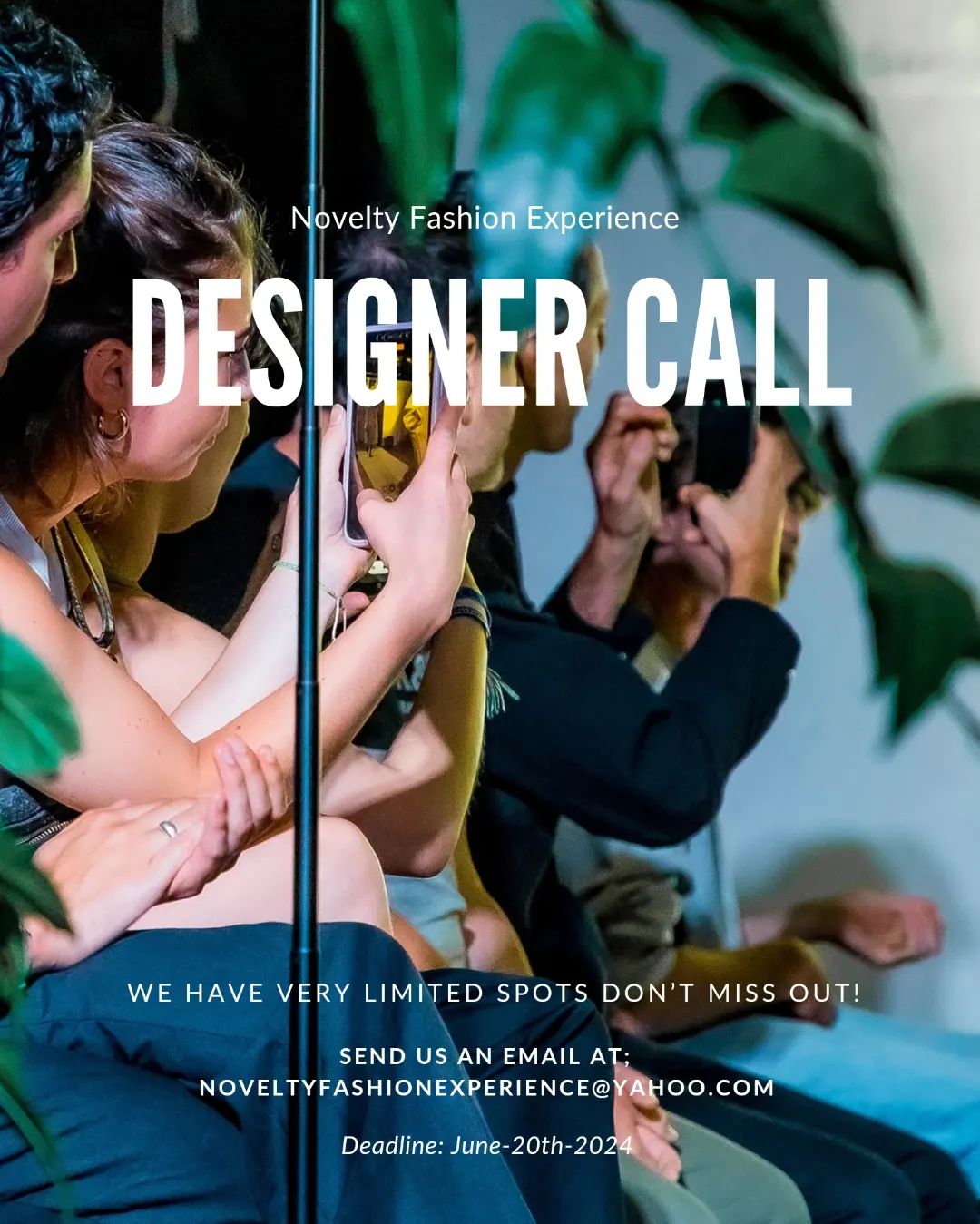
This spirit of growth and inclusivity is at the heart of the 2024 edition's expanded vision. By extending the event to four days and opening participation to both local and international designers, the Novelty Fashion Experience aims to create a true fashion week atmosphere in the heart of Rwanda.
According to the organizers, the 2024 Novelty Fashion Experience will transform from a one-night event into a four-day celebration of style. This extended format allows for a more comprehensive exploration of fashion, art, and luxury. “Attendees will be able to look forward to a packed schedule of runway shows, exhibitions, and contemporary performances that showcase the best of African and international design” organizers say
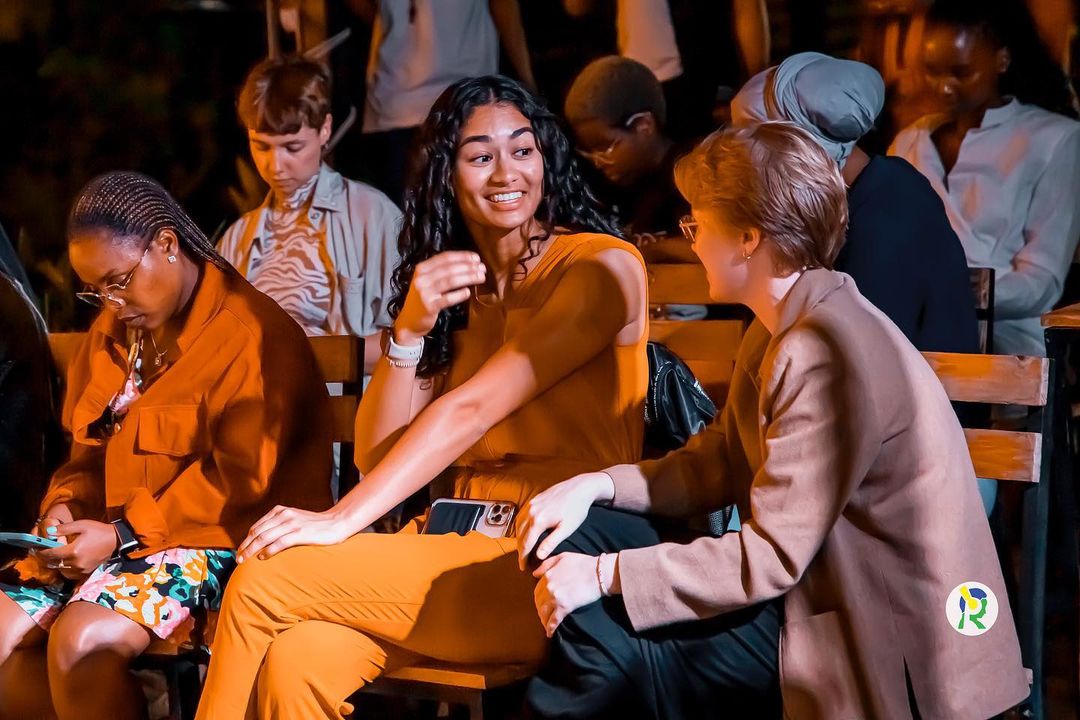 [PHOTO: The Novelty Fashion Experience in 2023]
[PHOTO: The Novelty Fashion Experience in 2023]
While the 2023 event focused on local talent, the 2024 edition is casting a wider net. Expect to see a mix of returning favorites like MATHEO and SHEMA GAETAN alongside new local discoveries and international designers eager to make their mark on the Kigali fashion scene. This diversity promises to bring fresh perspectives and exciting cross-cultural collaborations to the runway.
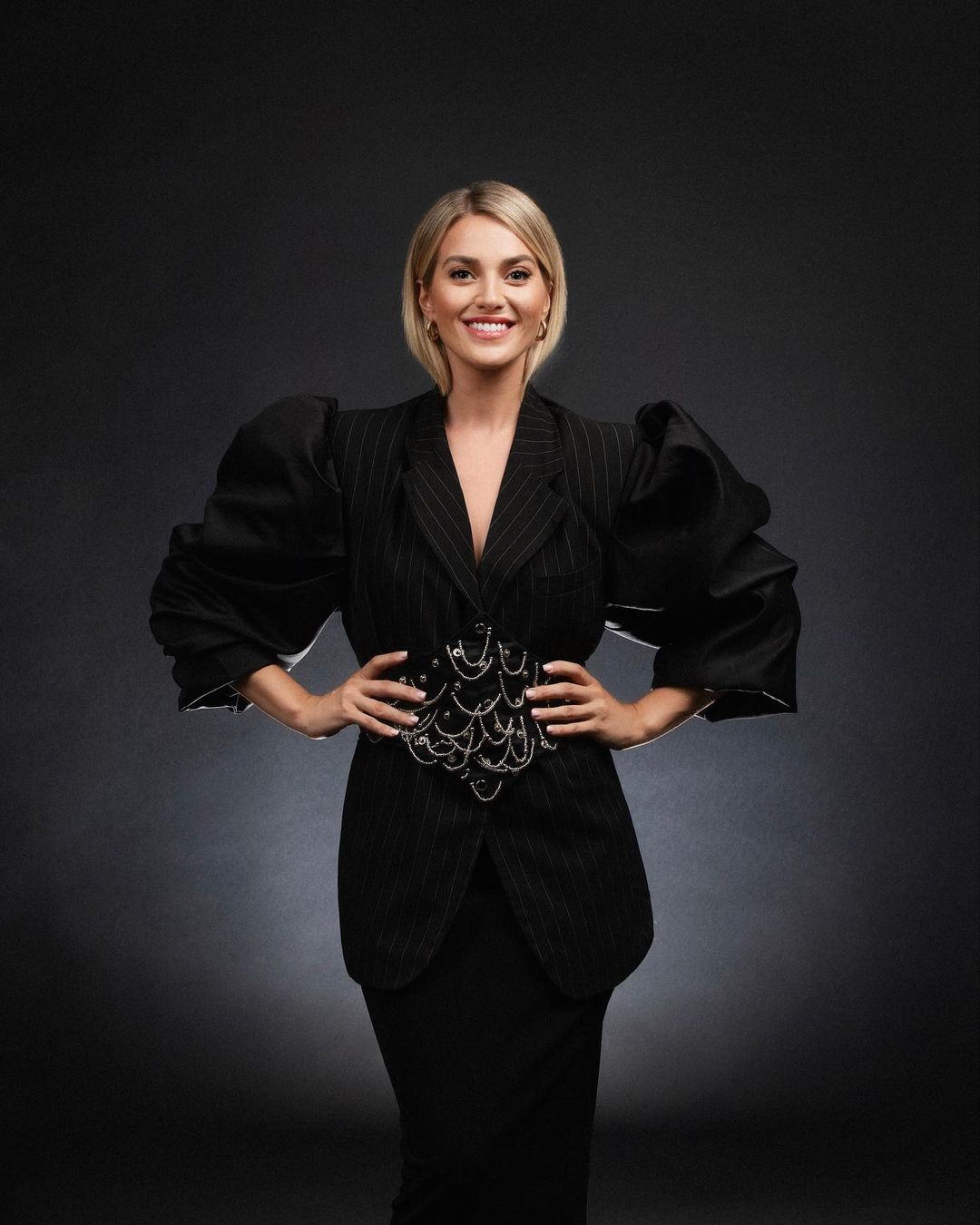 [PHOTO: Collection made by Matheo Clothing brand based in Kigali]
[PHOTO: Collection made by Matheo Clothing brand based in Kigali]
“The Novelty Fashion Experience 2024 will feature curated exhibitions. These spaces will allow designers to present their collections in more intimate settings, giving attendees the chance to examine the craftsmanship up close and personal. Look for innovative display concepts that blur the lines between fashion and art” organizers say
According to the organizer, fashion is more than just clothing, it’s a form of expression that often intersects with other art forms. “The 2024 event will incorporate contemporary performances that complement and enhance the fashion on display”
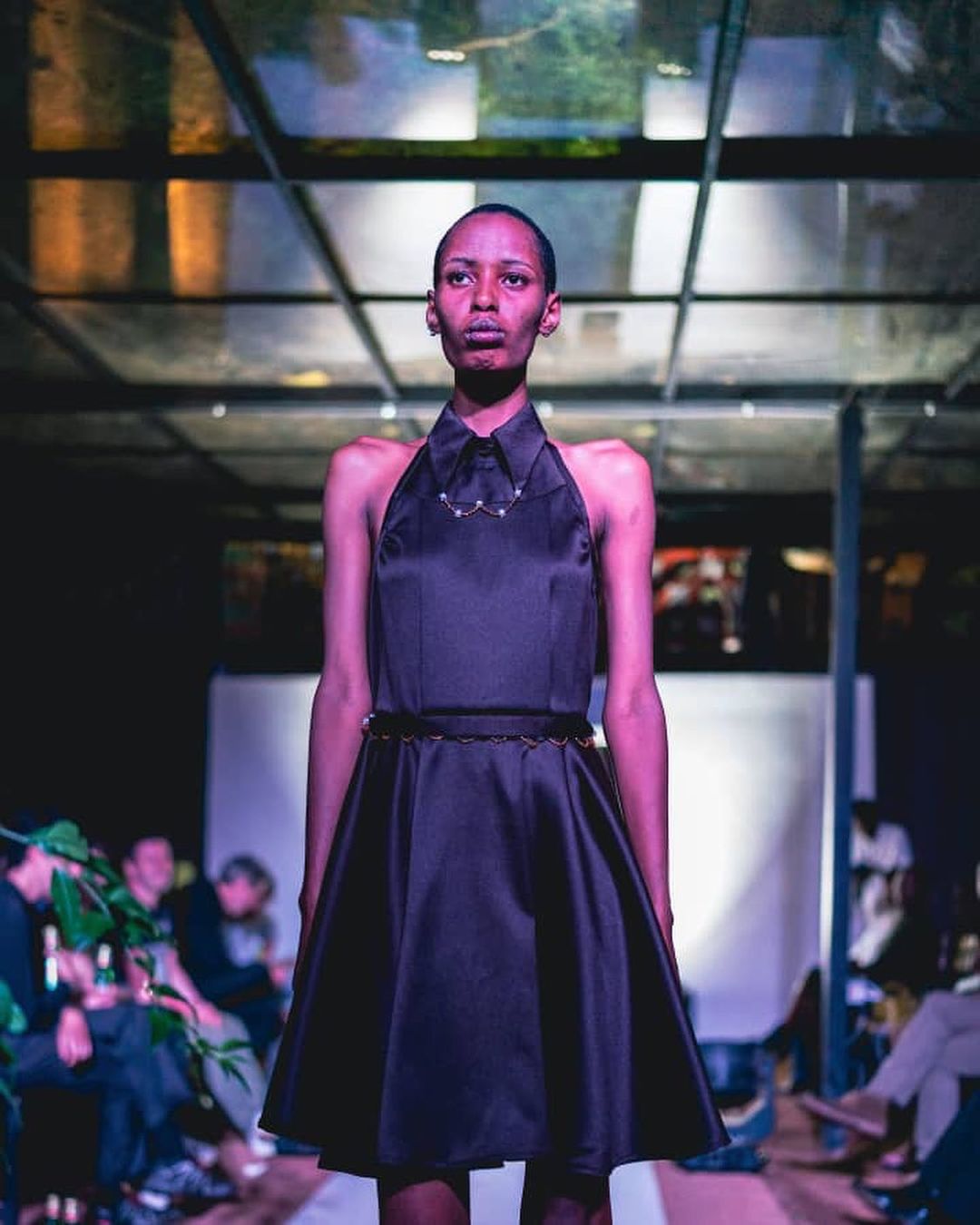 [PHOTO: The Novelty Fashion Experience in 2023]
[PHOTO: The Novelty Fashion Experience in 2023]
The Novelty Fashion Experience 2024 is committed to providing a platform for emerging designers. Look for dedicated shows or segments that highlight up-and-coming creatives who represent the future of African fashion. The organizers cast a wide net and invited participation from various sectors of the fashion industry.
They state, "We are thrilled to call upon every designer, whether local or international, to come and participate in these 4 days of fashion week which will include mainly fashion shows, contemporary performances, and exhibitions. Experience days of fashion, art but most importantly LUXURY."
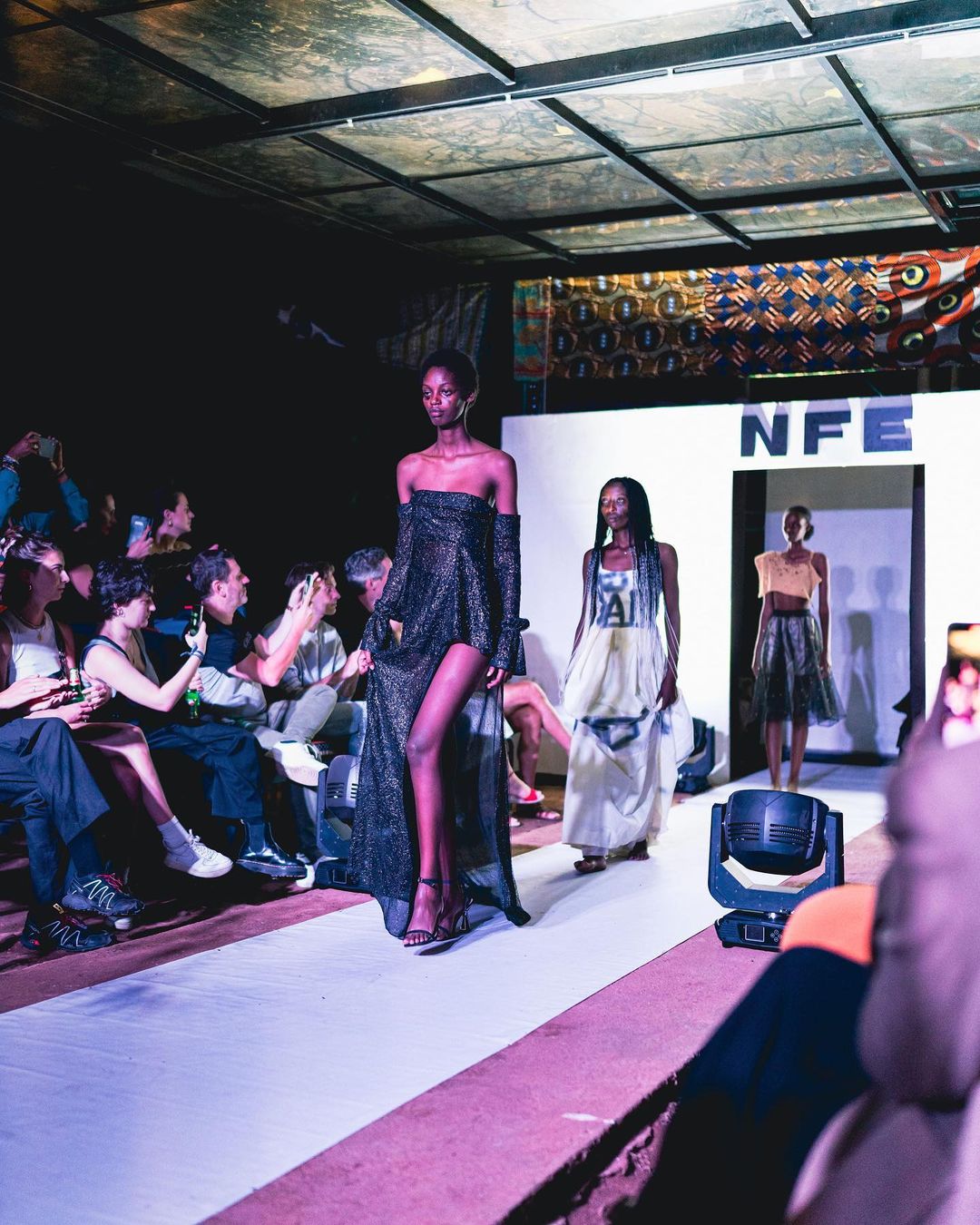 [PHOTO: The Novelty Fashion Experience in 2023]
[PHOTO: The Novelty Fashion Experience in 2023]
In addition to designers, they're also seeking interns in various fashion-related fields: stylists, models, vloggers, bloggers, and other fashion industry professionals. This open call underscores the event's commitment to fostering new talent and creating a truly inclusive fashion experience.
As the global fashion industry grapples with its environmental impact, sustainability is on the agenda of the 2024 Novelty Fashion Experience “We are looking for designers who incorporate eco-friendly materials, upcycling techniques, or traditional craftsmanship that promotes sustainable practices” organizers say
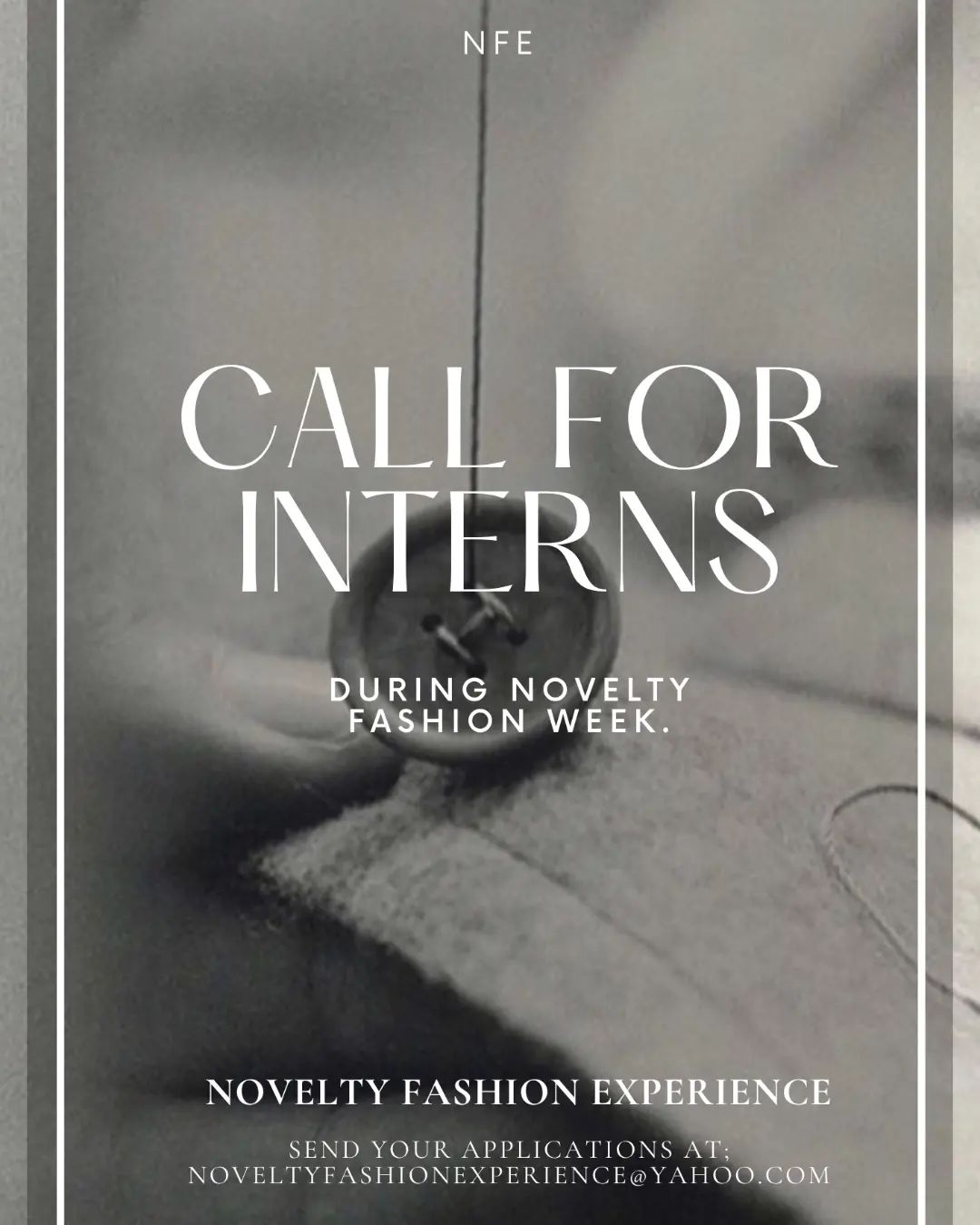
With its expanded format, the event will naturally attract a wider range of fashion industry professionals. Expect to see buyers, journalists, influencers, and established designers in attendance, creating valuable networking opportunities for all participants.
The Kigali Novelty Fashion Experience 2024 is shaping up to be a transformative event for Rwanda's fashion scene. By learning from the successes and challenges of its first edition, expanding its scope, and embracing a more inclusive approach, the event is poised to put Kigali firmly on the global fashion map. Attendees can expect four days of creativity, innovation, and style that celebrate the best of African fashion while welcoming international influences.
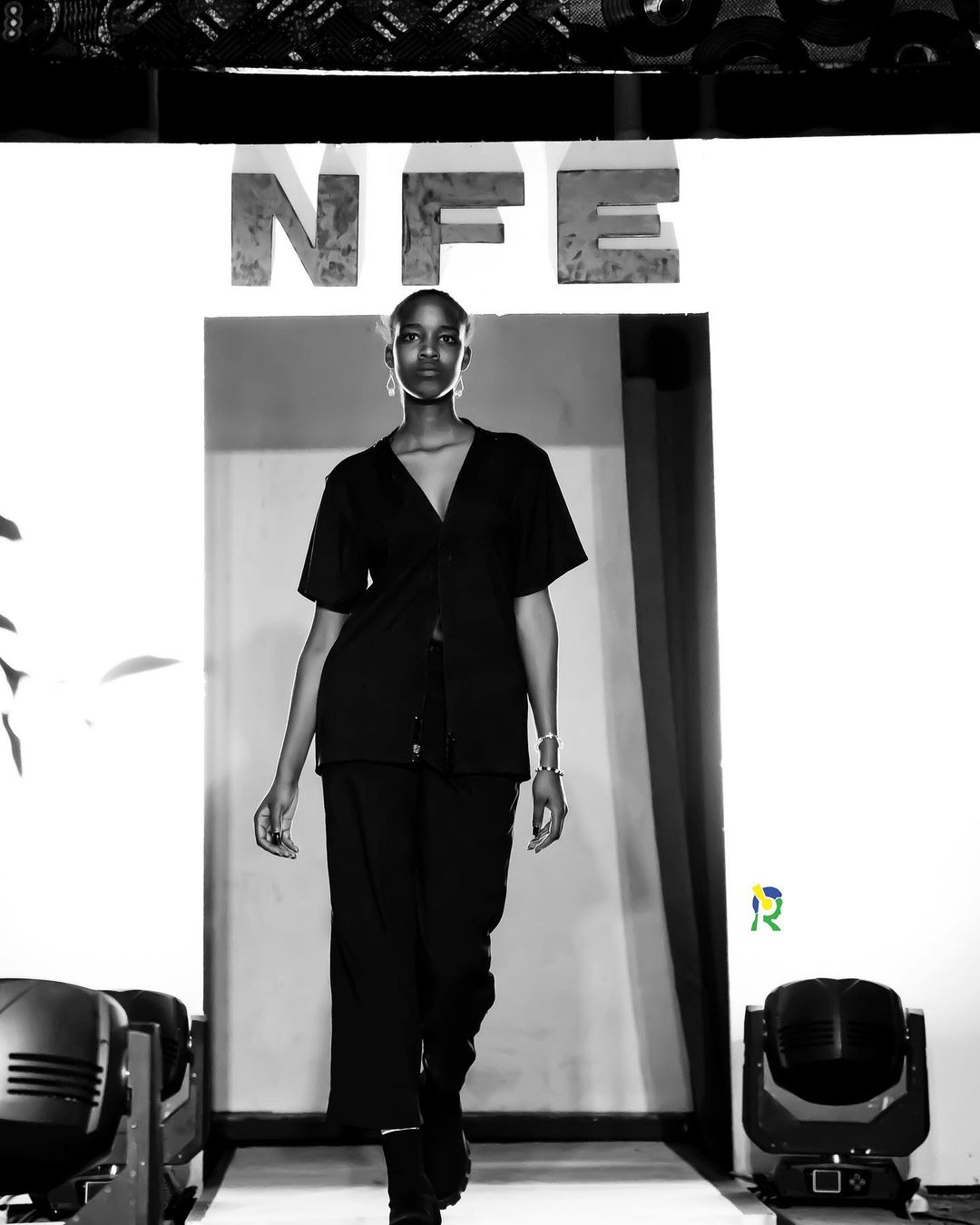 [PHOTO: The Novelty Fashion Experience in 2023]
[PHOTO: The Novelty Fashion Experience in 2023]
As the fashion world turns its eyes to Kigali, the Novelty Fashion Experience 2024 promises to be more than just a series of runway shows. It's set to be a comprehensive celebration of style, art, and culture that showcases the vibrant creativity of Rwanda and beyond. Whether you're a fashion industry professional, a style enthusiast, or simply curious about the evolving fashion landscape of East Africa, this is an event not to be missed.
Fashion and Elections in Rwanda: A Longstanding Tradition
Since Rwanda's independence in 1962, fashion and elections have been inextricably intertwined. Candidates and political parties have long used clothing and accessories as a means to convey their political symbols and ideologies to supporters. From individual candidates to entire parties, fashion has become an integral part of election campaigns and celebrations, serving as a visual identifier of allegiances and affiliations.
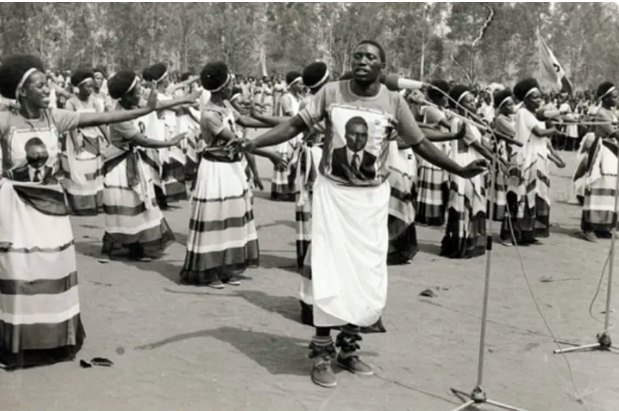 Rwandan dancers and political supporters wearing a T-shirt printed on a picture of their favorite candidate in 1976 [PHOTO NT]
Rwandan dancers and political supporters wearing a T-shirt printed on a picture of their favorite candidate in 1976 [PHOTO NT]
In Rwanda, elections are not merely political events but also cultural and artistic expressions. The colors, patterns, and designs adorning campaign attire have become a language unto themselves, communicating messages of unity, progress, and national pride. From hats and T-shirts to jackets and umbrellas, fashion has played a crucial role in elections, allowing supporters to proudly display their allegiances and participate in the democratic process.
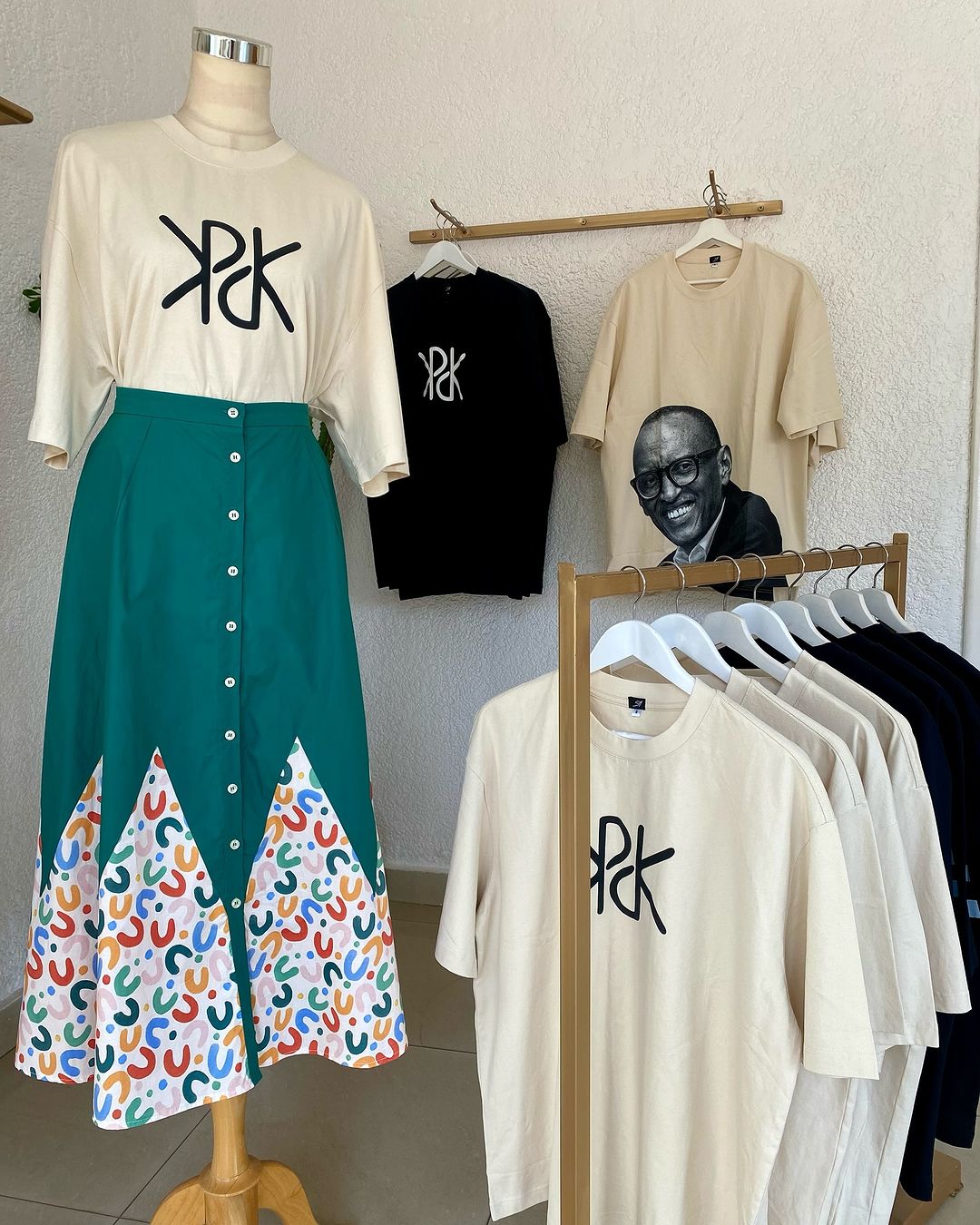 Different collections made by Sonia Mugabo, a fashion brand based in Kigali [PHOTO SM]
Different collections made by Sonia Mugabo, a fashion brand based in Kigali [PHOTO SM]
As the country gears up for the highly anticipated parliamentary and presidential elections on July 15, 2024, the fashion landscape is set to explode with an array of vibrant styles and designs. According to the Rwanda Electoral Commission, three candidates are vying for the presidency, including the candidate from the dominant Rwanda Patriotic Front (RPF-Inkotanyi) party.
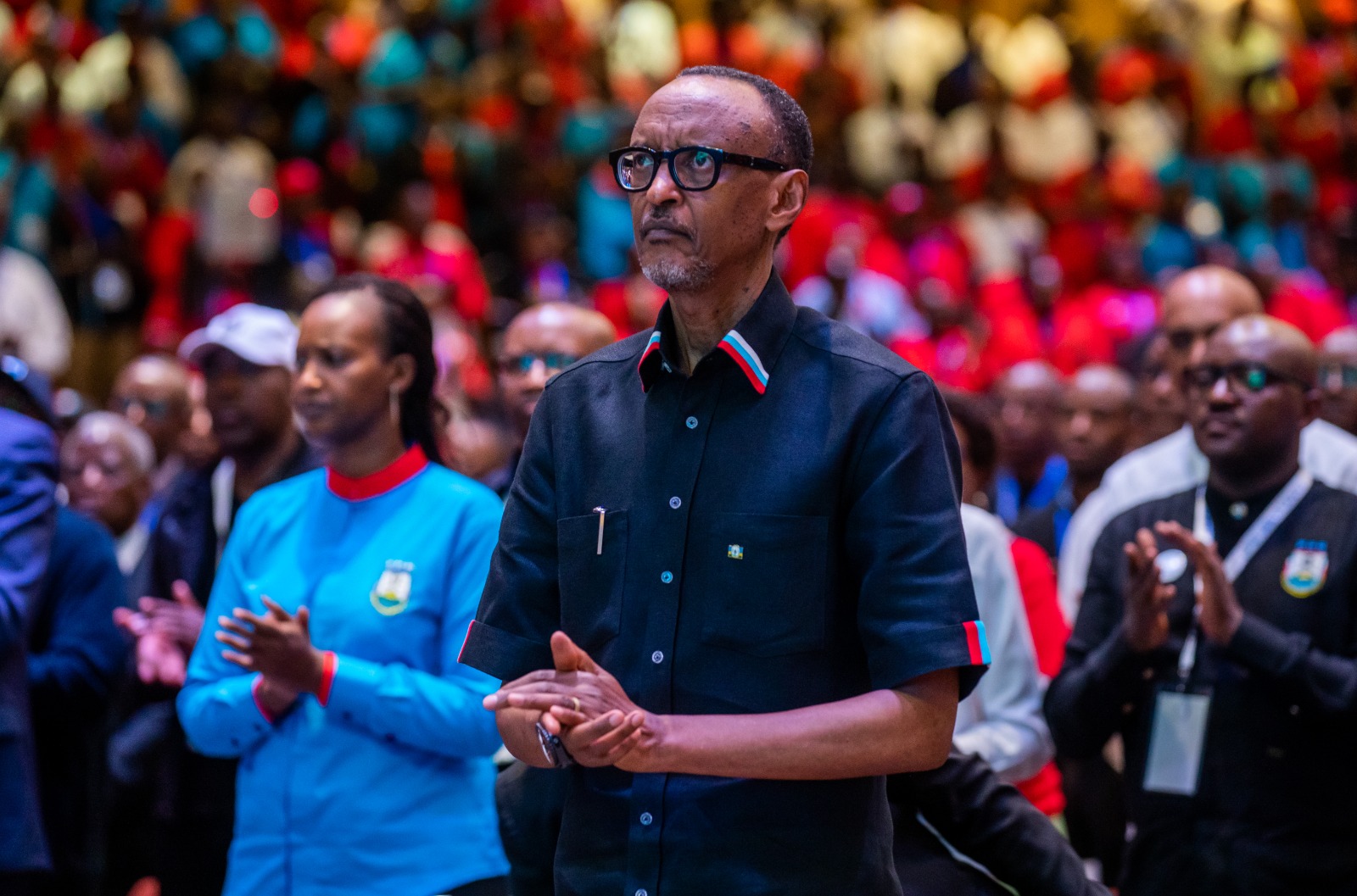 Paul Kagame is the candidate in the Rwanda presidential election 2024 from the FPR-Inkotanyi [PHOTO NT]
Paul Kagame is the candidate in the Rwanda presidential election 2024 from the FPR-Inkotanyi [PHOTO NT]
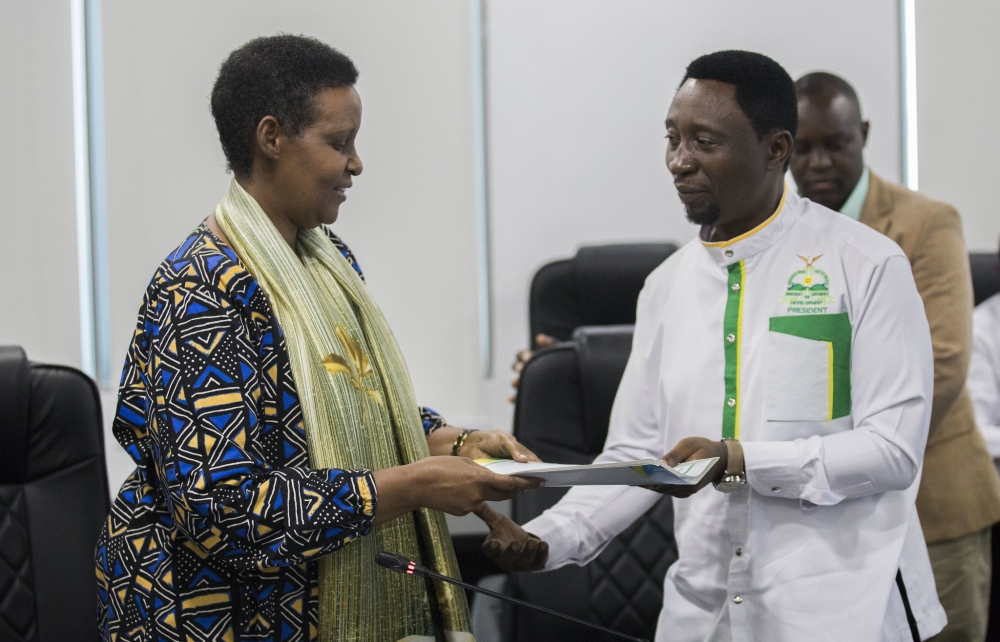 Frank Habineza, the president of the Democratic Green Party of Rwanda, on May 20, submitted his candidature for the July presidential elections to the National Electoral Commission (NEC).[PHOTO GP]
Frank Habineza, the president of the Democratic Green Party of Rwanda, on May 20, submitted his candidature for the July presidential elections to the National Electoral Commission (NEC).[PHOTO GP]
Local fashion designers in Rwanda are working tirelessly to meet the growing demand for election-themed apparel. Many have already begun selling T-shirts and hats adorned with the colors and symbols of their preferred candidates, pushing the boundaries of creativity to attract both politicians and their supporters.
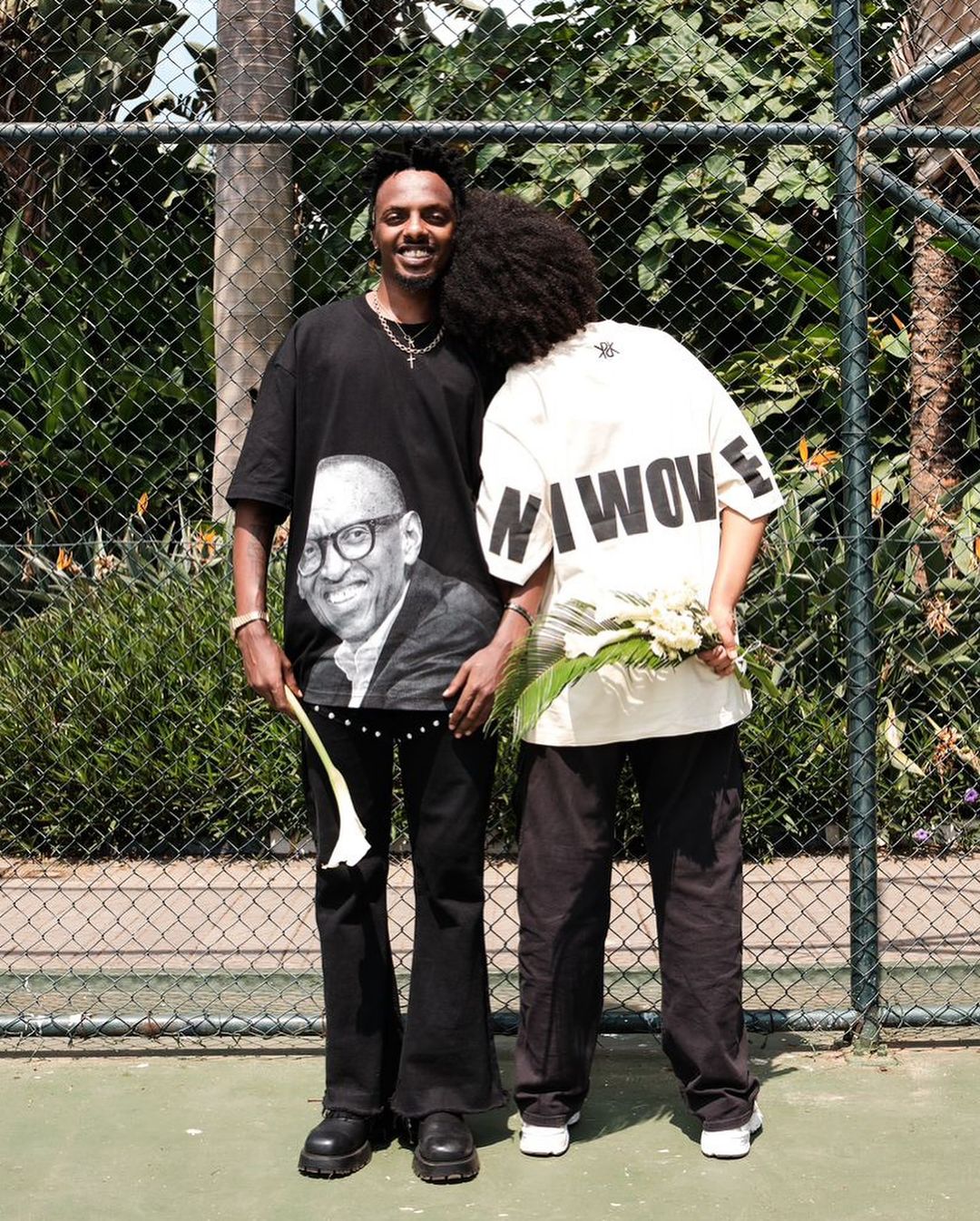 Made by Sonia Mugabo, a fashion brand based in Kigali [PHOTO SM]
Made by Sonia Mugabo, a fashion brand based in Kigali [PHOTO SM]
Karenzi Abdalah, a prominent figure in the fashion industry, predicts that the RPF's campaign will unveil fashion styles never seen before in Rwandan elections. "Look, many fashion designers in Kigali are already printing T-shirts and hats, and they are being more creative to attract politicians and their supporters," Karenzi explains. "Then imagine when the RPF starts their campaign. We will see more fashion styles from the chiefs of villages to the ministers."
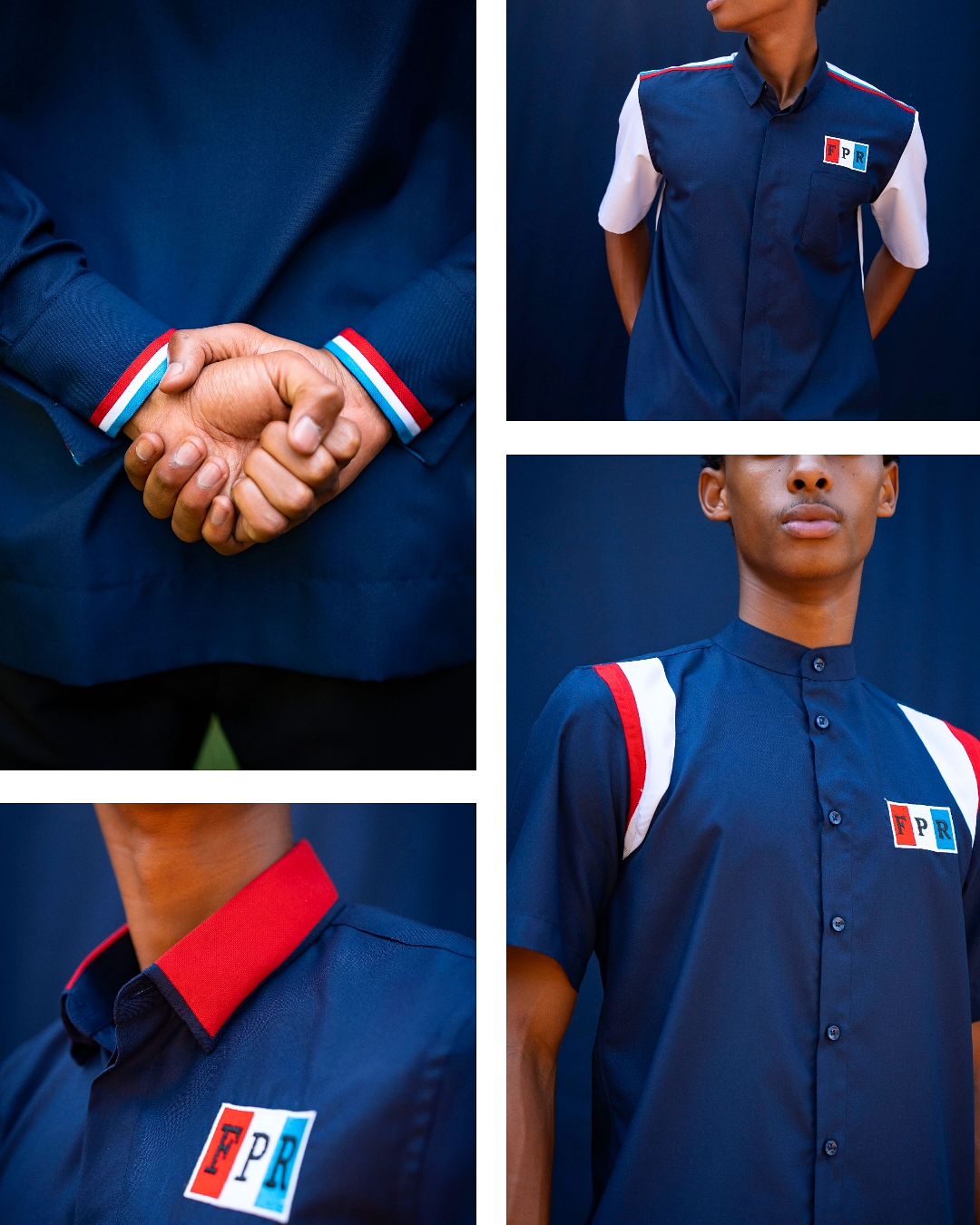 Made by House of Tayo, a fashion brand based in Kigali [PHOTO HT]
Made by House of Tayo, a fashion brand based in Kigali [PHOTO HT]
The fusion of fashion and politics in Rwanda's elections extends far beyond mere aesthetics. It reflects the deep-rooted cultural traditions and the country's commitment to democratic values. As citizens prepare to cast their votes, the vibrant colors and designs adorning their attire will serve as a visual testament to their political allegiances and aspirations for the nation's future.
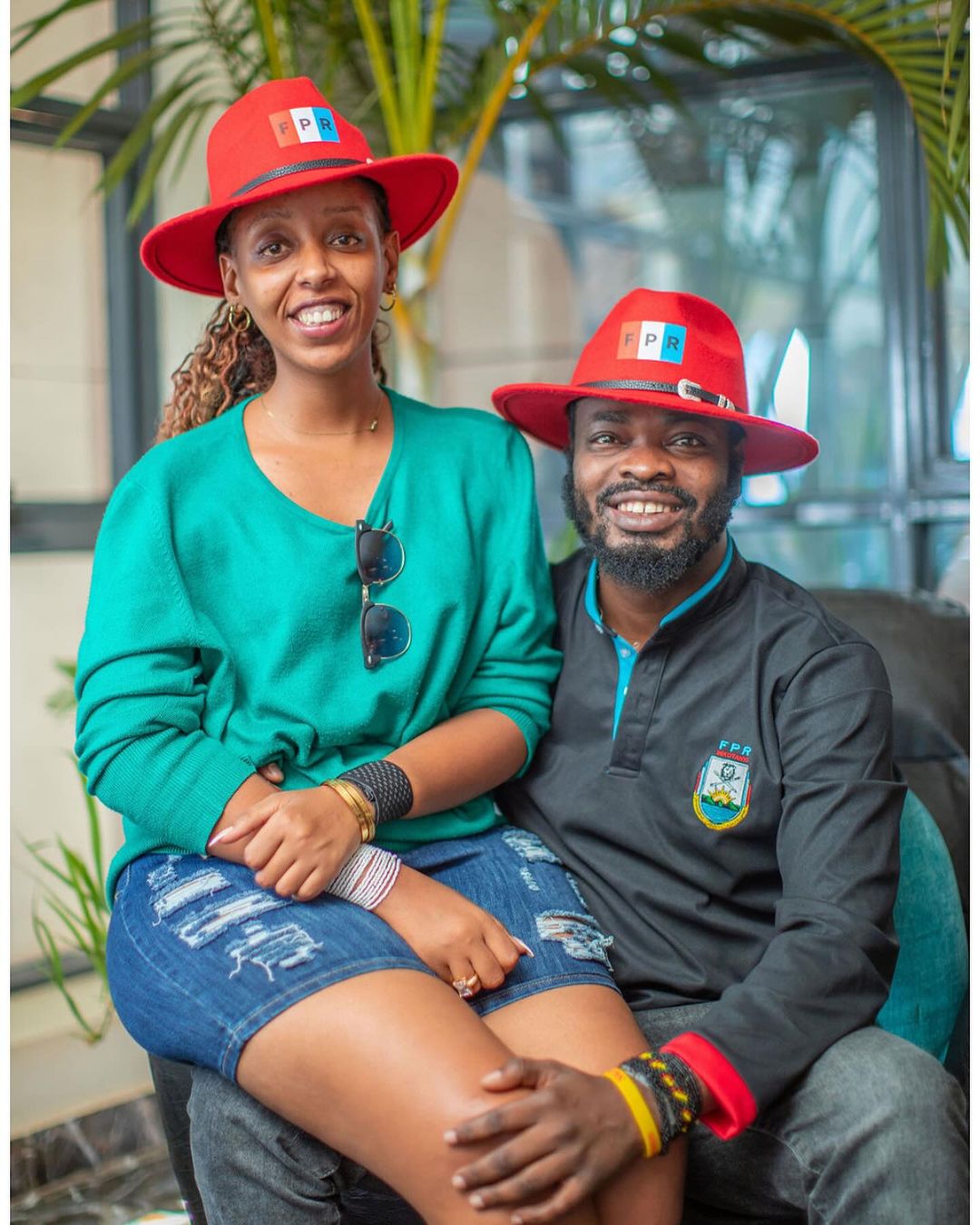 FPR-Inkotanyi supporters [PHOTO NT]
FPR-Inkotanyi supporters [PHOTO NT]
From the bustling streets of Kigali to the remote villages, fashion will undoubtedly play a pivotal role in shaping the narrative and atmosphere of the 2024 elections. As the campaigns intensify, Rwandans will embrace the opportunity to express their political views through the medium of fashion, transforming the electoral process into a vibrant tapestry of colors, symbols, and artistic expression.
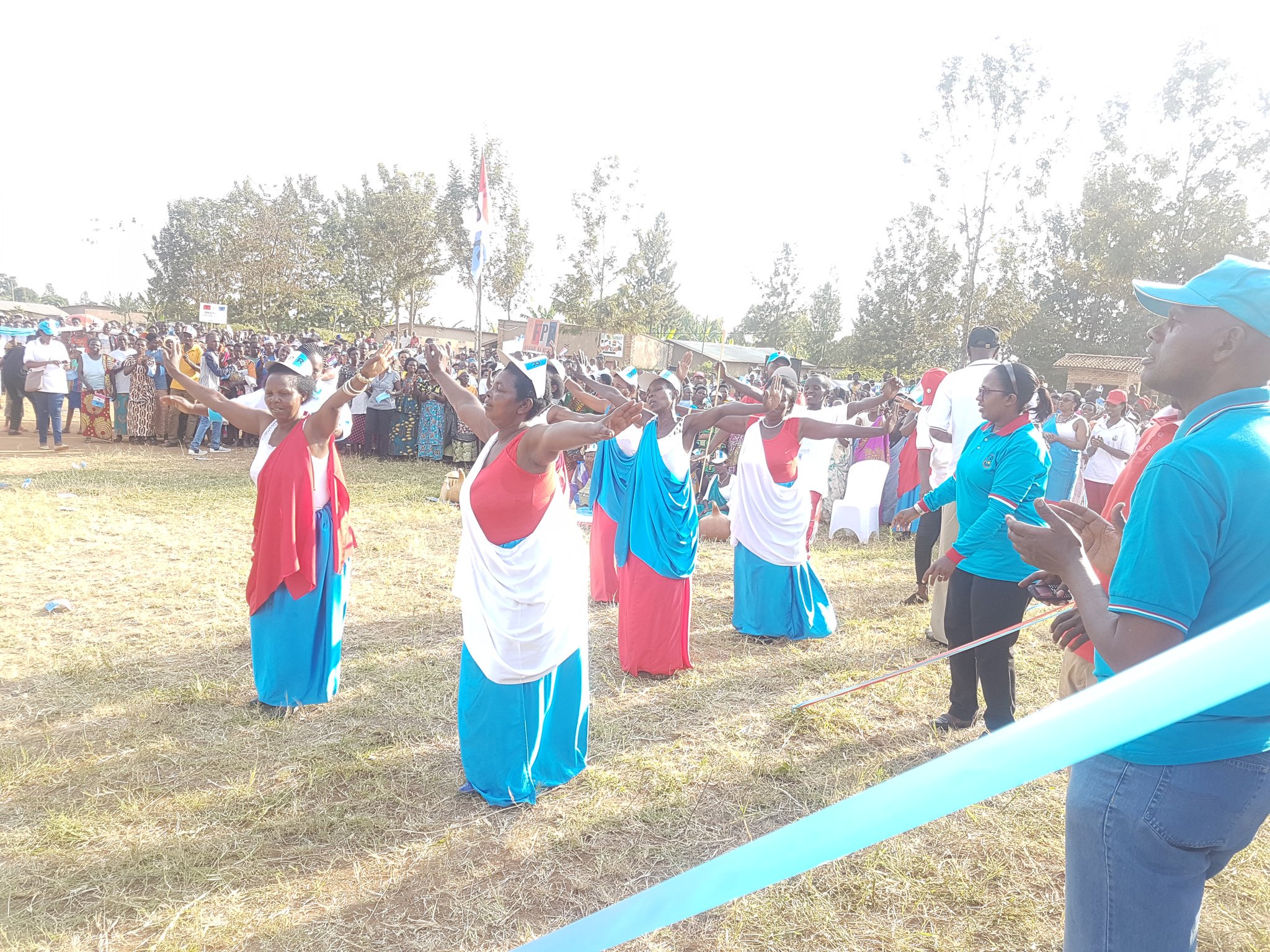 Women dancers of the FPR-Inkotanyi supporters in well-known fashion " Umushana"Umucyenyero" in their colors Blue-Red-White [PHOTO NT]
Women dancers of the FPR-Inkotanyi supporters in well-known fashion " Umushana"Umucyenyero" in their colors Blue-Red-White [PHOTO NT]
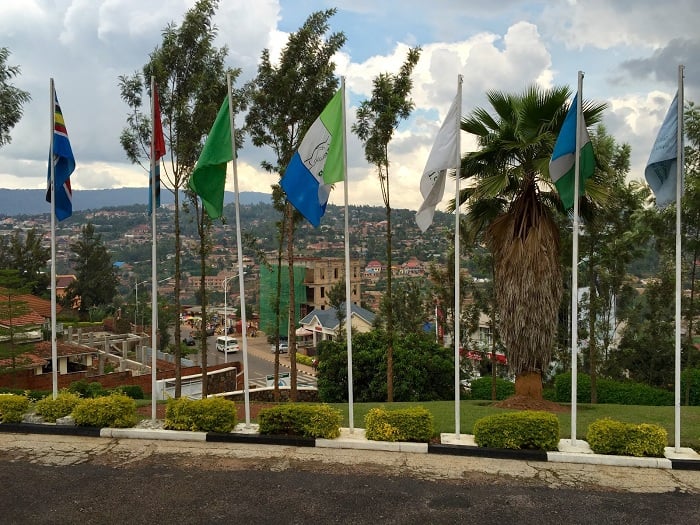 Flags of some political parties in Rwanda [PHOTO NT]
Flags of some political parties in Rwanda [PHOTO NT]
Where is House of Tayo and Its Branded Rwanda Jersey?
 Clients wearing jersey made by House of Tayo on their wedding celebrations [PHOTO NT]
Clients wearing jersey made by House of Tayo on their wedding celebrations [PHOTO NT]
House of Tayo was born out of a desire to showcase the sophistication, style, and flavors of Africa through contemporary, locally-made clothing and accessories. With influences ranging from the Motown era to traditional British tailoring, the brand seeks to combine elegance and class with a strong sense of African heritage and iconography.
 Former NBA star Joakim Noah dressed in House of Tayo during his recent visit to Kigali [PHOTO NT]
Former NBA star Joakim Noah dressed in House of Tayo during his recent visit to Kigali [PHOTO NT]
This distinctly Rwandan brand works with local artisans and tailors, providing stable income and employment opportunities that support the community. The unconventional combination of colors and patterns creates a bold and futuristic look that is edgy yet sophisticated, reflecting the current proliferation of African arts, culture, and style on the global stage.
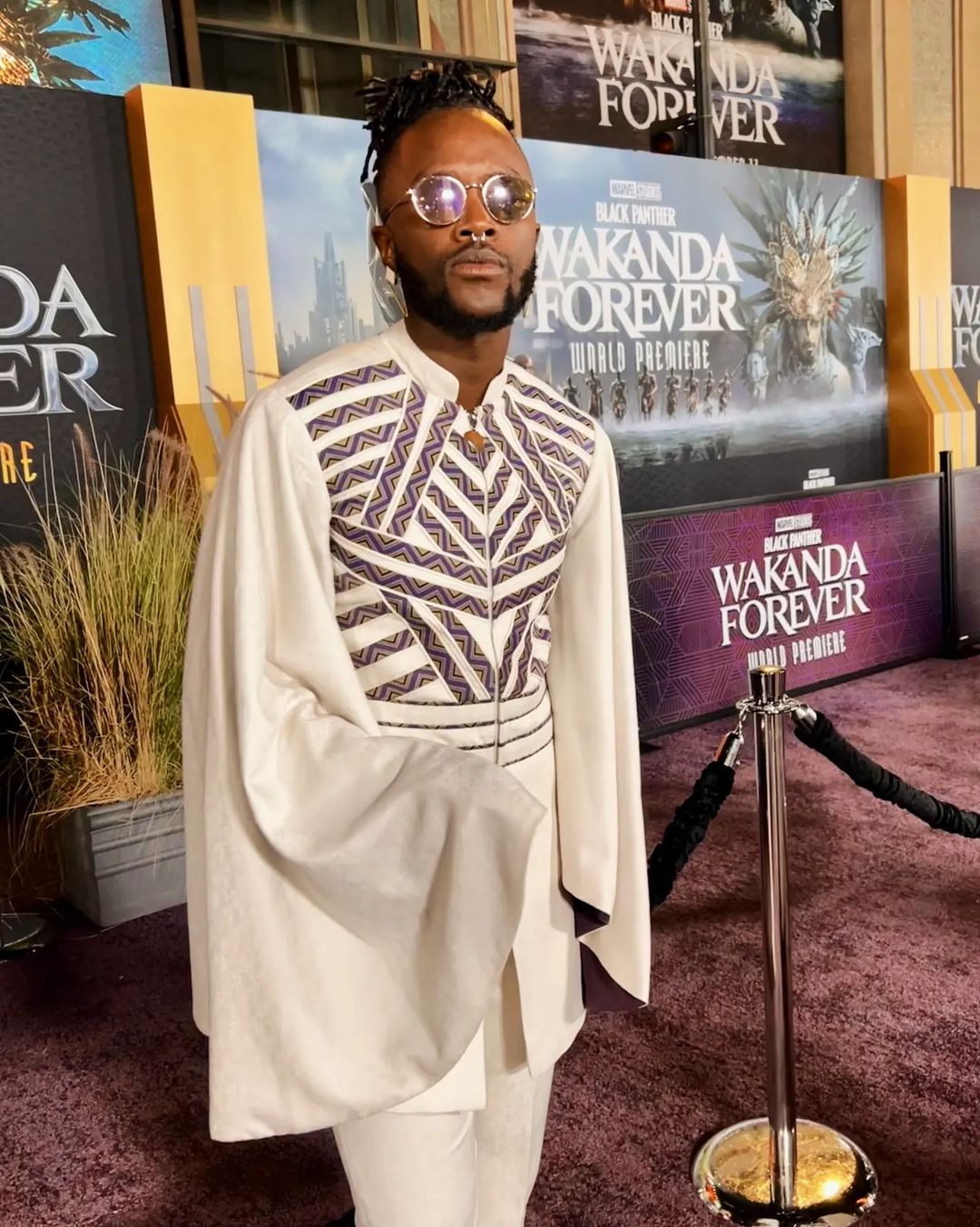 Junior Nyongo, an actor, musician Dj in a collection made by House Tayo [PHOTO NT]
Junior Nyongo, an actor, musician Dj in a collection made by House Tayo [PHOTO NT]
Authenticity is at the core of House of Tayo, with African textiles and fabrics brought to life by Rwandan tailors and artisans. The brand has gained international recognition, with one of its most notable products being a sporty T-shirt or jersey that caught the eye of FIFA President Gianni Infantino and his wife Leena during the 73rd FIFA Congress in Kigali.
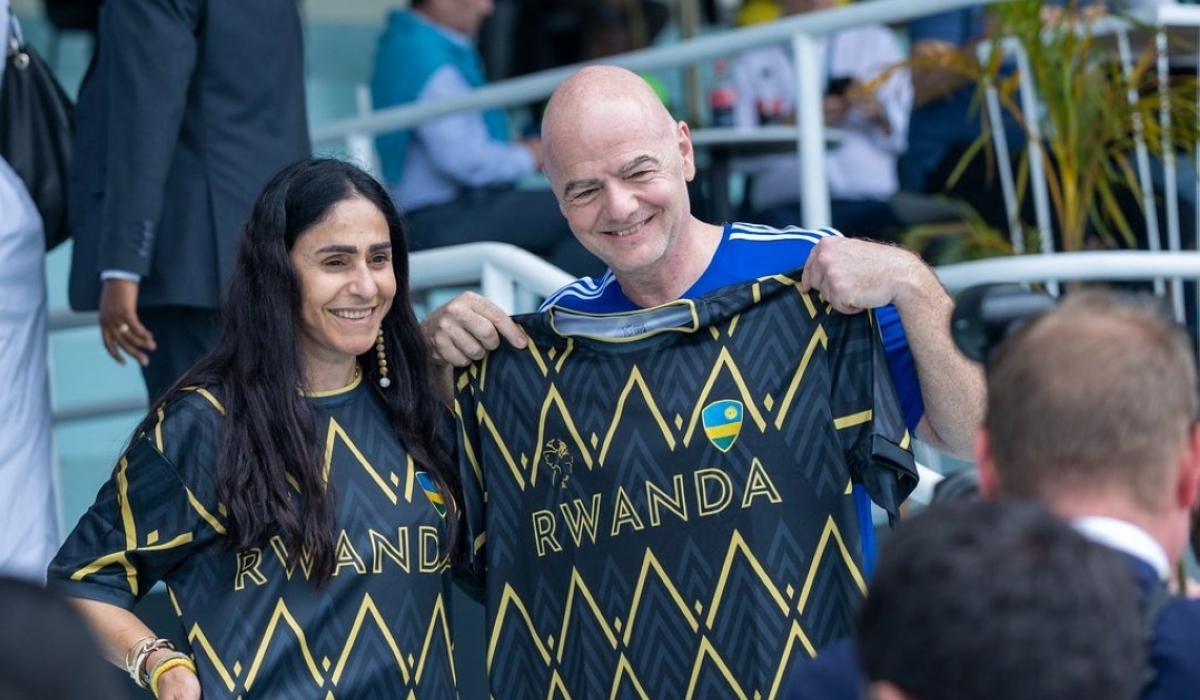 FIFA President Gianni Infantino and his wife Leena show off the Ijezi at the just concluded 73rd FIFA Congress in Kigali [PHOTO NT]
FIFA President Gianni Infantino and his wife Leena show off the Ijezi at the just concluded 73rd FIFA Congress in Kigali [PHOTO NT]
House of Tayo is a member of CollectiveRw, a renowned fashion designers' club known for organizing fashion shows and exhibitions in collaboration with the Rwanda Development Board (RDB). However, fashion enthusiasts in Kigali are wondering about the future of CollectiveRw and its signature event, Rwanda Fashion Week.
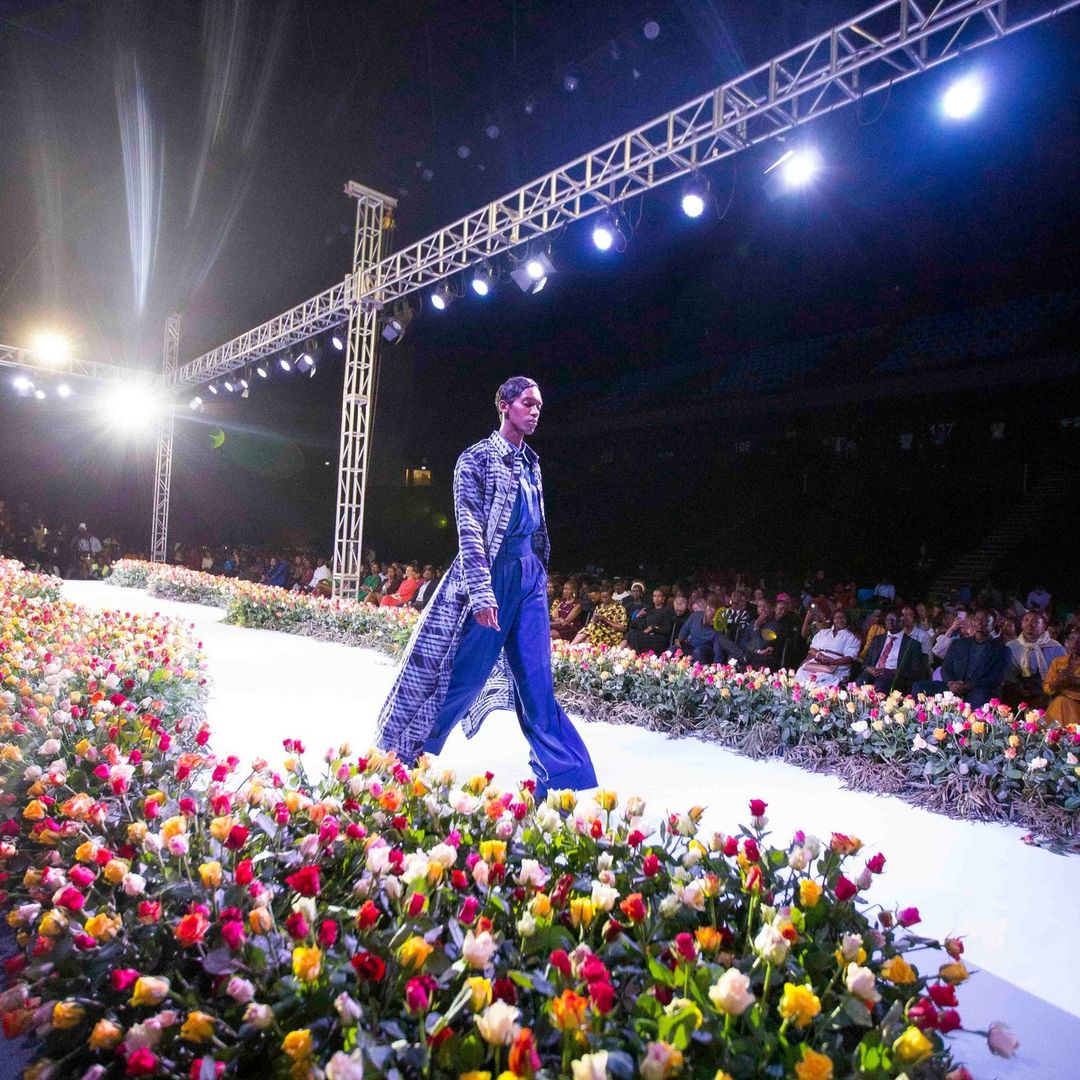 A model on the runway of the Rwanda Fashion Week 2022 in Kigali [PHOTO NT]
A model on the runway of the Rwanda Fashion Week 2022 in Kigali [PHOTO NT]
The House of Tayo's clothing and accessories are a celebration of African heritage, blending traditional elements with contemporary flair. The brand's creations are a true embodiment of Rwandan craftsmanship, with each piece meticulously crafted by skilled local artisans.
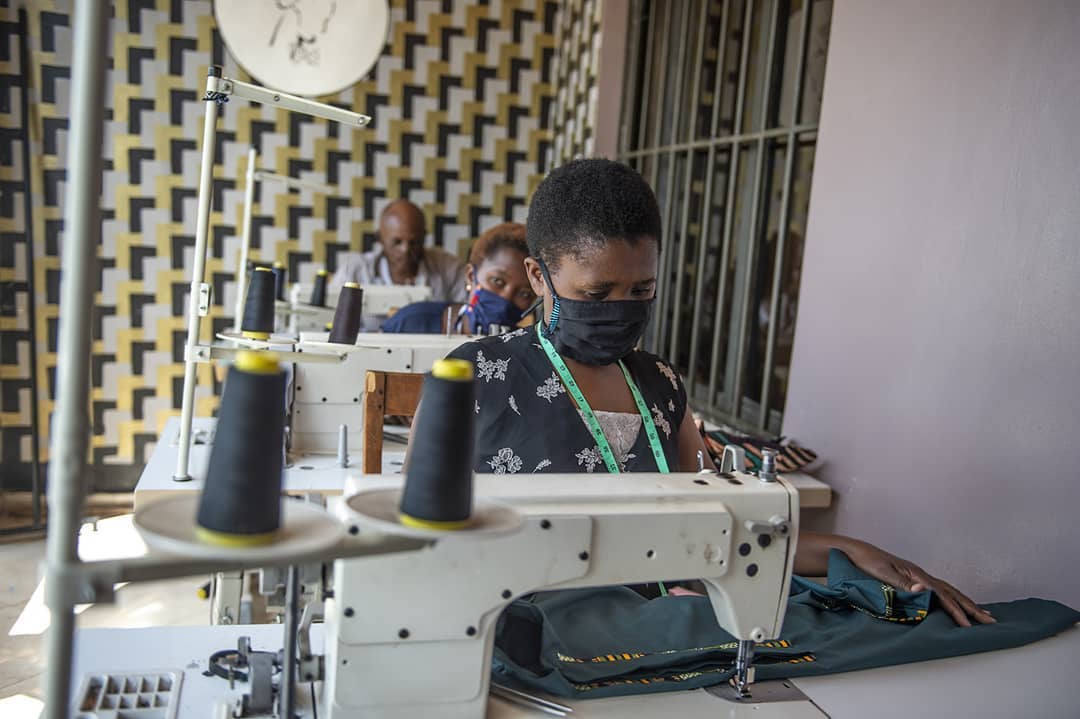 A woman worker from the tailoring team inside the House Tayo factory [PHOTO NT]
A woman worker from the tailoring team inside the House Tayo factory [PHOTO NT]
The use of vibrant colors and intricate patterns is a hallmark of House of Tayo's designs, reflecting the rich cultural tapestry of Africa. From bold prints inspired by traditional motifs to unique textile blends, each collection tells a story of African artistry and ingenuity.
The jersey's design is a testament to House of Tayo's ability to fuse fashion with cultural representation, creating a garment that not only looks stylish but also celebrates Rwandan heritage. The jersey has one of the most known arts called "IMIGONGO" which makes it more attractive and lovable.
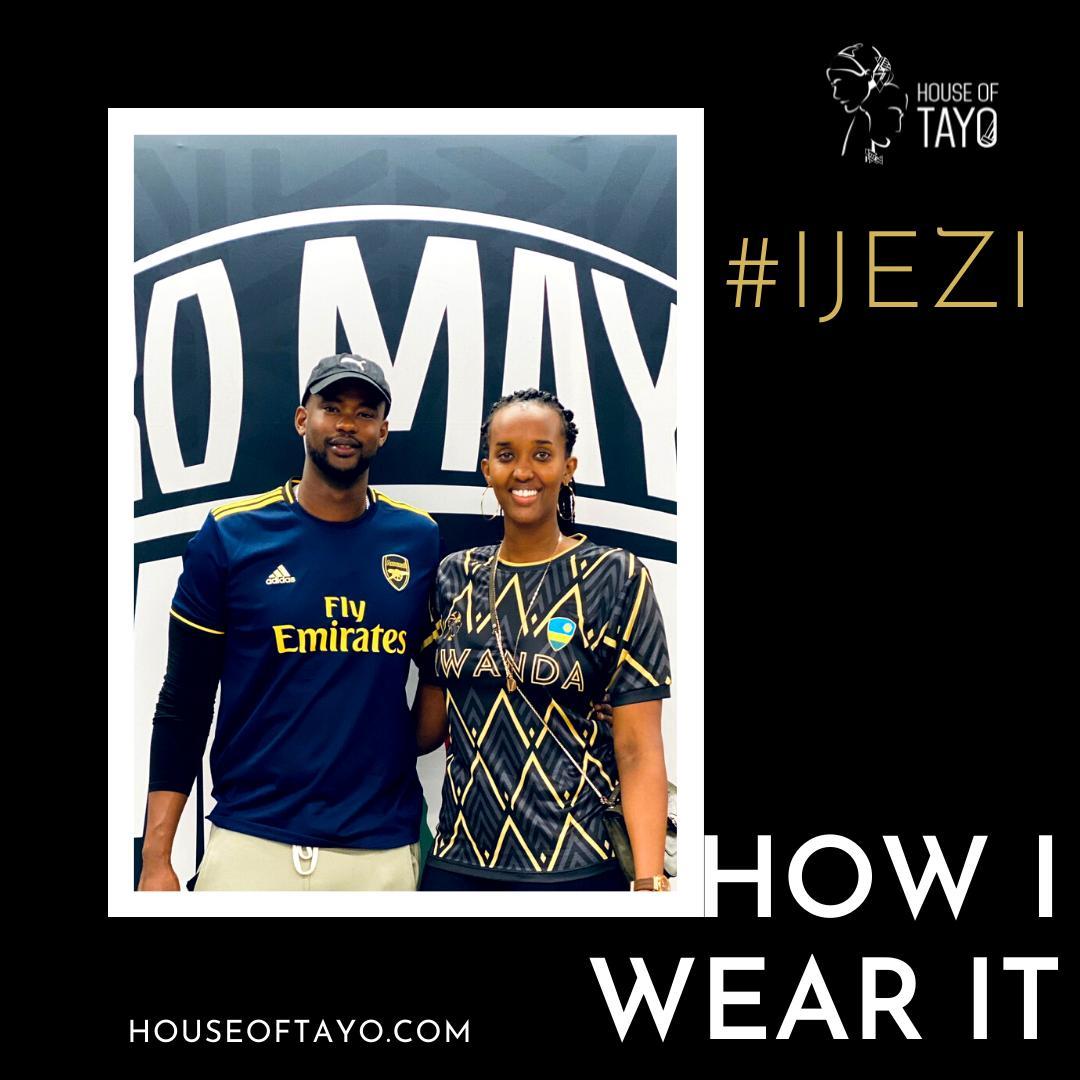 Wearing made by the House of Tayo jersey [Right ] Angel Kagame the daughter of H-E the president of the Republic of Rwanda Paul Kagame and her husband [PHOTO NT]
Wearing made by the House of Tayo jersey [Right ] Angel Kagame the daughter of H-E the president of the Republic of Rwanda Paul Kagame and her husband [PHOTO NT]
House of Tayo's association with the CollectiveRw, a prestigious fashion designers' club in Rwanda, has played a significant role in its success and visibility. The collectiveRw has been instrumental in organizing fashion shows and exhibitions, providing platforms for local designers to showcase their creations to local and international audiences.
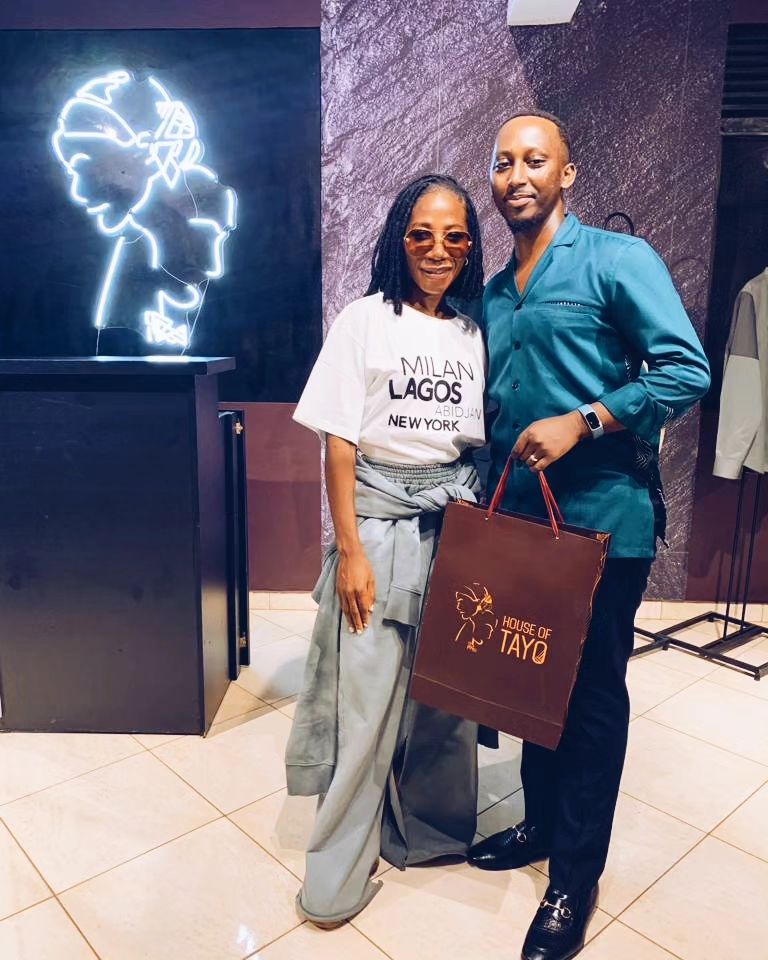 CEO and founder of the House of Tayo Matthew Rugamba with @asaofficial during Kwita Izina week 2023.
CEO and founder of the House of Tayo Matthew Rugamba with @asaofficial during Kwita Izina week 2023.
However, in recent times, fashion enthusiasts have expressed concerns about the future of CollectiveRw and its flagship event, Rwanda Fashion Week. As one fashion enthusiast in Kigali explains, "If you look at the situation of the CollectiveRw fashion designers members, they all have well-established individual brands and are more focused on their own sales. They no longer seem interested in group exhibitions or fashion shows."
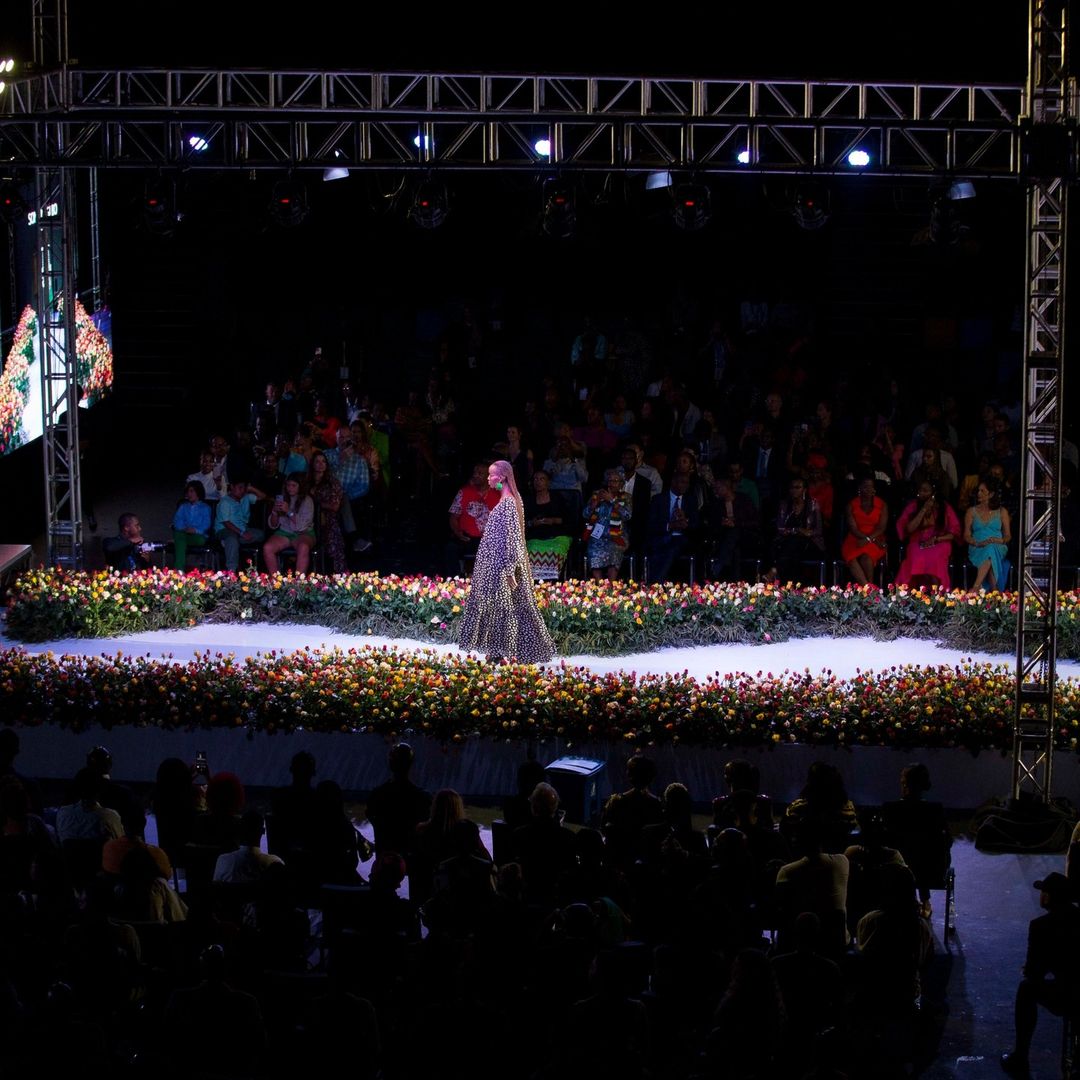 A model on the runway of the Rwanda Fashion Week 2022 in Kigali [PHOTO NT]
A model on the runway of the Rwanda Fashion Week 2022 in Kigali [PHOTO NT]
This shift in focus among CollectiveRw members raises questions about the collective's ability to continue organizing large-scale events like Rwanda Fashion Week 2022’s edition. CollectivRw's events have been crucial for promoting Groupe member's fashion designers, providing them with platforms to showcase their talent and connect with potential buyers and collaborators, especially guests and tourists.
Despite the uncertainty surrounding CollectiveRw, the Rwandan fashion industry continues to thrive, with brands like House of Tayo leading the way and continuing to style most-known celebrities such as Junio Nyongo, Lupita Nyang'o, and many other international superstars.
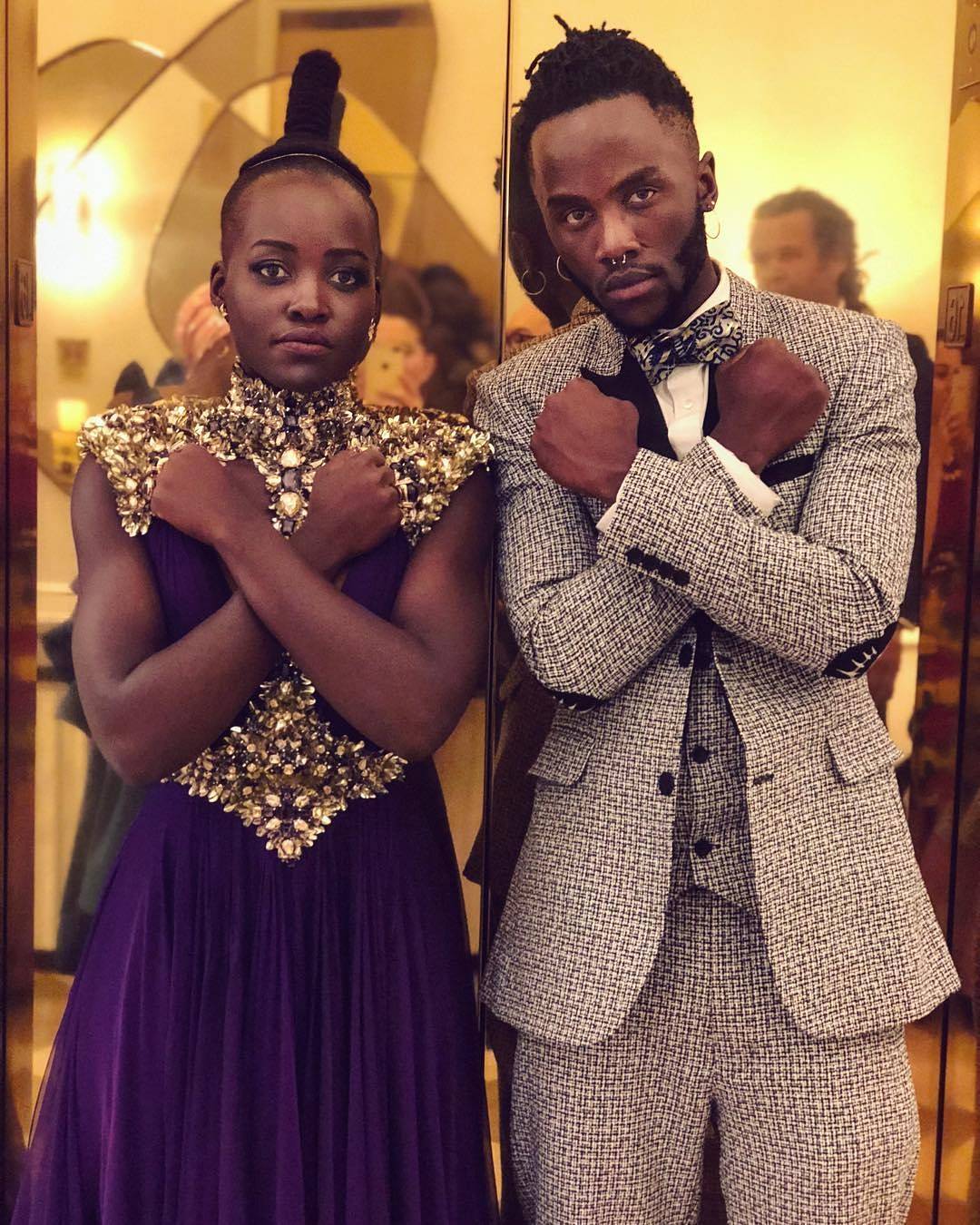 Wearing made by House of Tayo [Left ]Junior Nyongo, an actor, musician Dj and Lupita Nyong'o [PHOTO NT]
Wearing made by House of Tayo [Left ]Junior Nyongo, an actor, musician Dj and Lupita Nyong'o [PHOTO NT]
As the world becomes increasingly interconnected, the demand for unique and culturally significant fashion experiences is on the rise. House of Tayo's ability to blend traditional African elements with contemporary aesthetics positions it at the forefront of this trend, offering a distinct and authentic voice in the world of fashion.
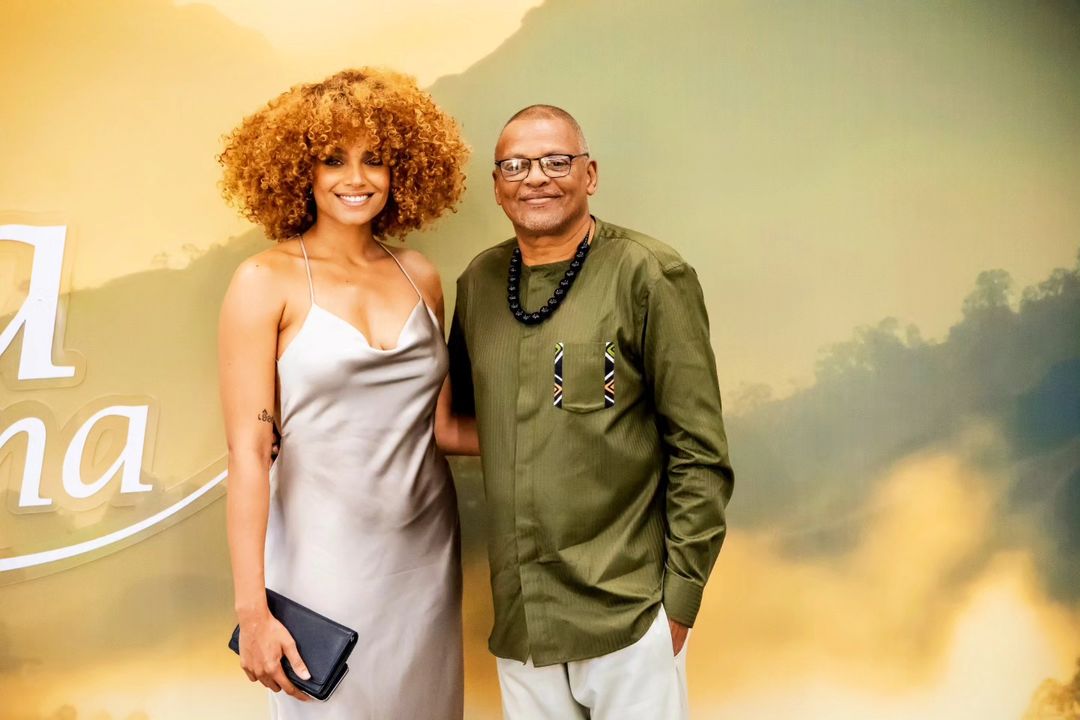 Former @equipedefrance and @psg goalkeeper Bernard Lama in a House of Tayo Shirt at the #KwitaIzina Gala Dinner 2023.
Former @equipedefrance and @psg goalkeeper Bernard Lama in a House of Tayo Shirt at the #KwitaIzina Gala Dinner 2023.
However, the brand's future success, and that of the Rwandan fashion industry as a whole, may depend on the ability of organizations like CollectiveRw and the RDB to adapt and evolve. While individual brands may be thriving, the collective strength of Rwandan designers could be a powerful force in promoting the country's fashion heritage and attracting international attention.
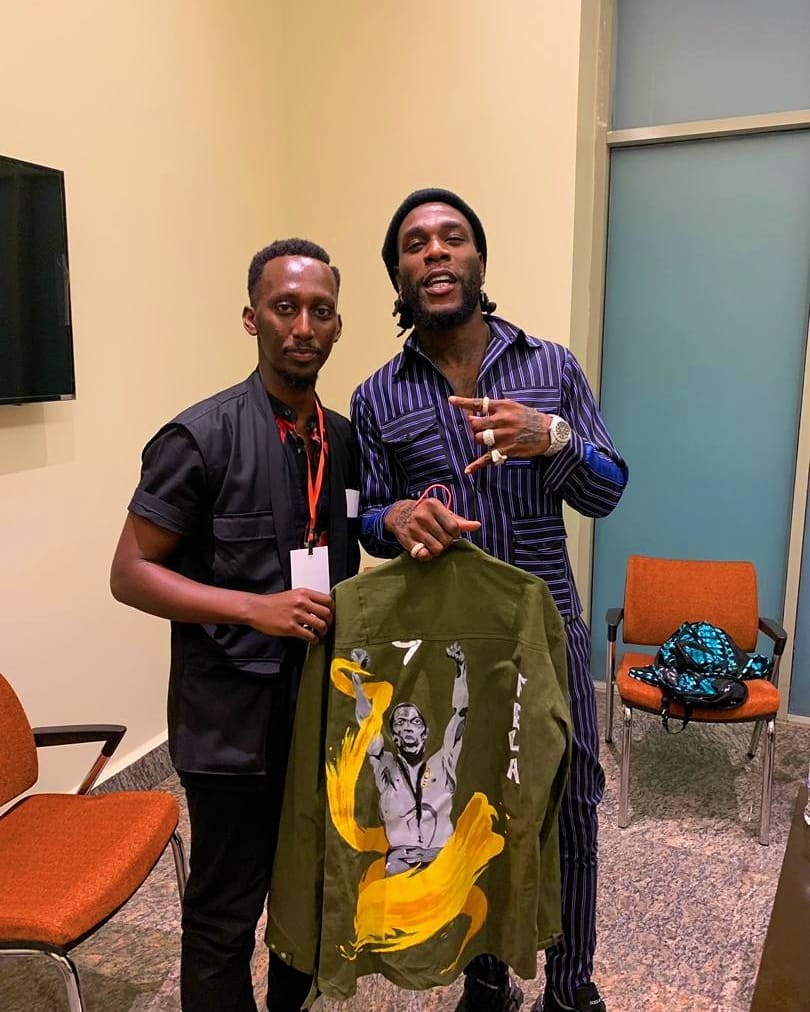 Custom tailored pinstripe top and bottom set and a custom Safari Kimono with Fela Kuti artwork for the African Giant for Nigerian singer Burna Boy [Rigt] [PHOTO NT]
Custom tailored pinstripe top and bottom set and a custom Safari Kimono with Fela Kuti artwork for the African Giant for Nigerian singer Burna Boy [Rigt] [PHOTO NT]
Collaborations, partnerships, and collective efforts could be key to sustaining the momentum of the Rwandan fashion scene. By working together, designers can leverage their collective resources, share knowledge, and create opportunities for cross-pollination of ideas and styles.

[First Right] Matthew Rugamba CEO and founder of House of Tayo with other African fashion designers together with Prince Charles, Prince of Wales & wife Camilla [PHOTO NT]
As the world embraces the richness and diversity of African fashion, it is imperative for the Rwandan fashion community to find ways to preserve and promote its cultural heritage while adapting to the ever-changing landscape of the global fashion industry. Whether through reinventing CollectiveRw or exploring new avenues for collaboration, the future of Rwandan fashion lies in the ability to unite and showcase the country's unique blend of tradition and modernity.
 House of Tayo staff members inside their shop in Kigali [PHOTO NT]
House of Tayo staff members inside their shop in Kigali [PHOTO NT]
LATEST NEWS
One week to go until Africa Sourcing and Fashion Week 2024: Designers, Exhibitors, and Speakers
01 November 2024 282 hitsOne week to go until Africa Sourcing and Fashion Week 2024: Designers, Exhibitors, and Speakers The countdown has begun for…
9 Years Milestone: Moses Turahirwa and His Moshions Brand Rwanda-Based
25 October 2024 434 hits9 Years Milestone: Moses Turahirwa and His Moshions Brand Rwanda-Based Over the past decade, Rwanda's fashion industry has emerged as…
What to Expect in Lagos Heineken Fashion Week 2024: Runways Kick off Today
23 October 2024 538 hitsWhat to Expect in Lagos Heineken Fashion Week 2024: Runways Kick Off Today The prestigious Heineken Lagos Fashion Week (LagosFW),…
Storytelling Meets High Fashion at The Kenya Fashion Story 2024
23 October 2024 625 hitsStorytelling Meets High Fashion at The Kenya Fashion Story 2024 The convergence of narrative and haute couture takes center stage…
Why Former Model Franco Kabano Is Backing the Stage Fashion Showcase's Founder
23 October 2024 537 hitsWhy Former Model Franco Kabano Is Backing the Stage Fashion Showcase's Founder In Rwanda's fashion industry, Franco Kabano and Sandrine…
The Stage Fashion Showcase 2024 Pre-Event Highlights Emerging and Established Talents: Main Event Set for November 1
20 October 2024 515 hitsThe Stage Fashion Showcase 2024 Pre-Event Highlights Emerging and Established Talents: Main Event Set for November 1 The fashion scene…
FASHION SHOPS
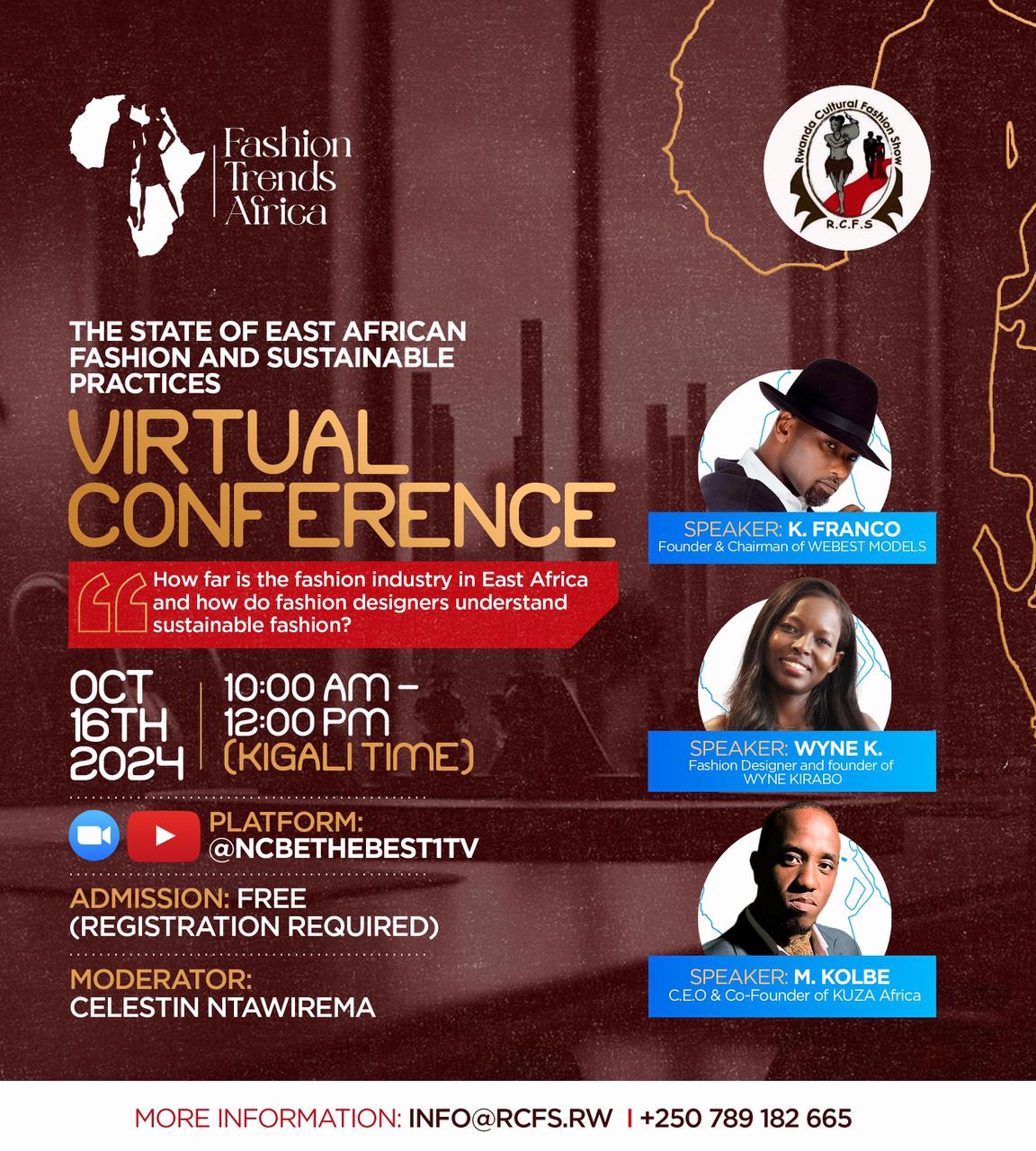



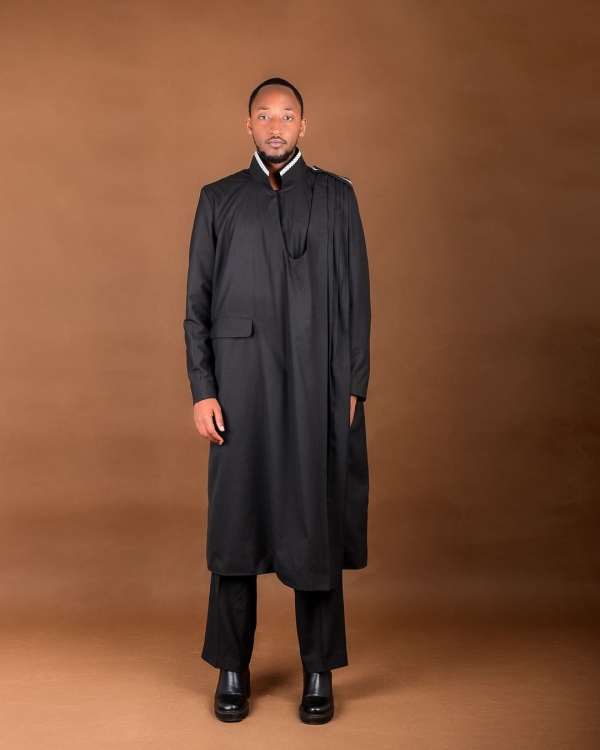
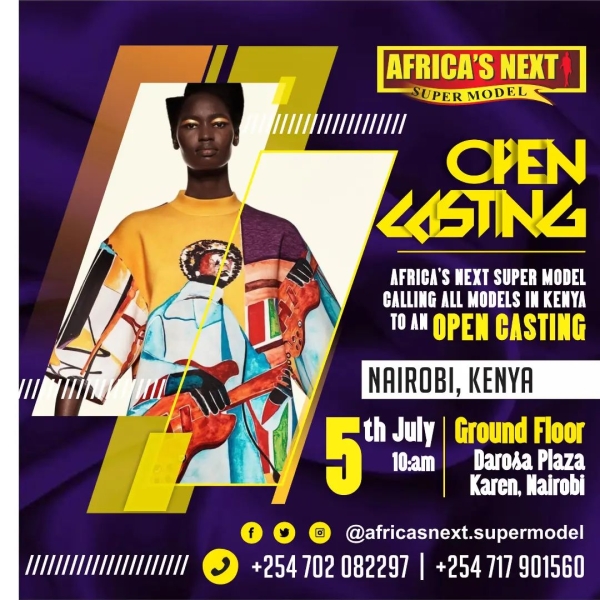
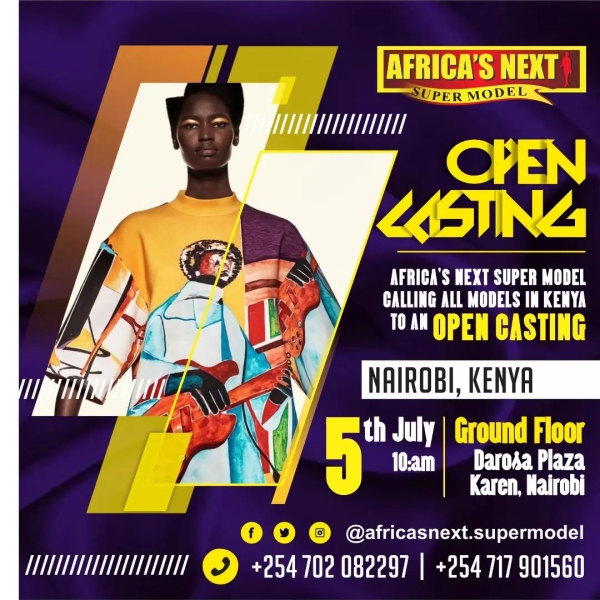
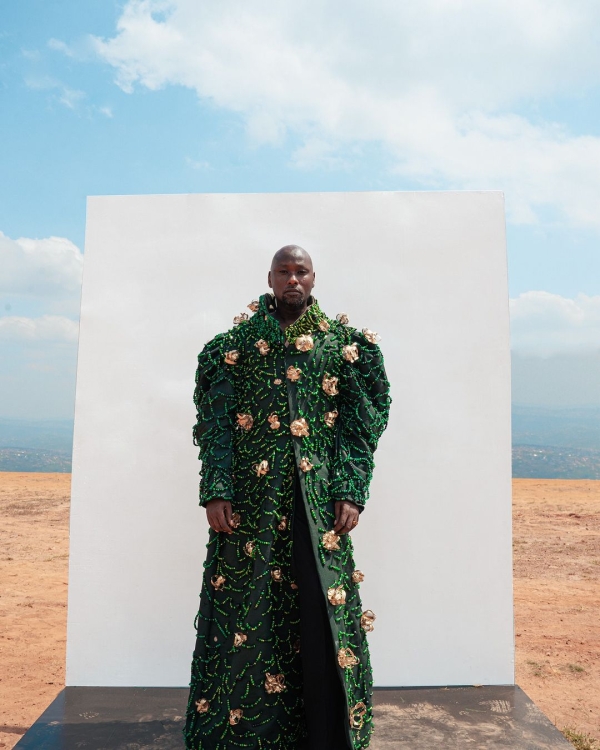
![[PHOTO: Workers inside the Asantii's factory in Kigali]- Fashion is not Singular as an Industry: Inside Asantii from the Land of 1000 Hills](/media/k2/items/cache/24051f1a73d7ccf80aa0e781a6178da9_Generic.jpg)
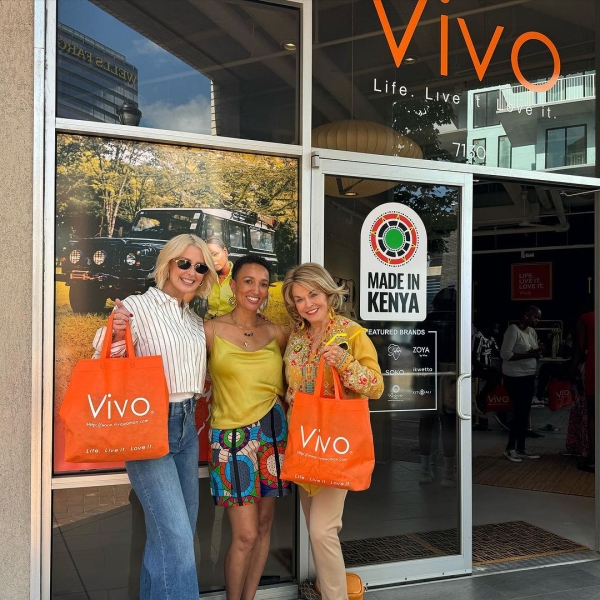
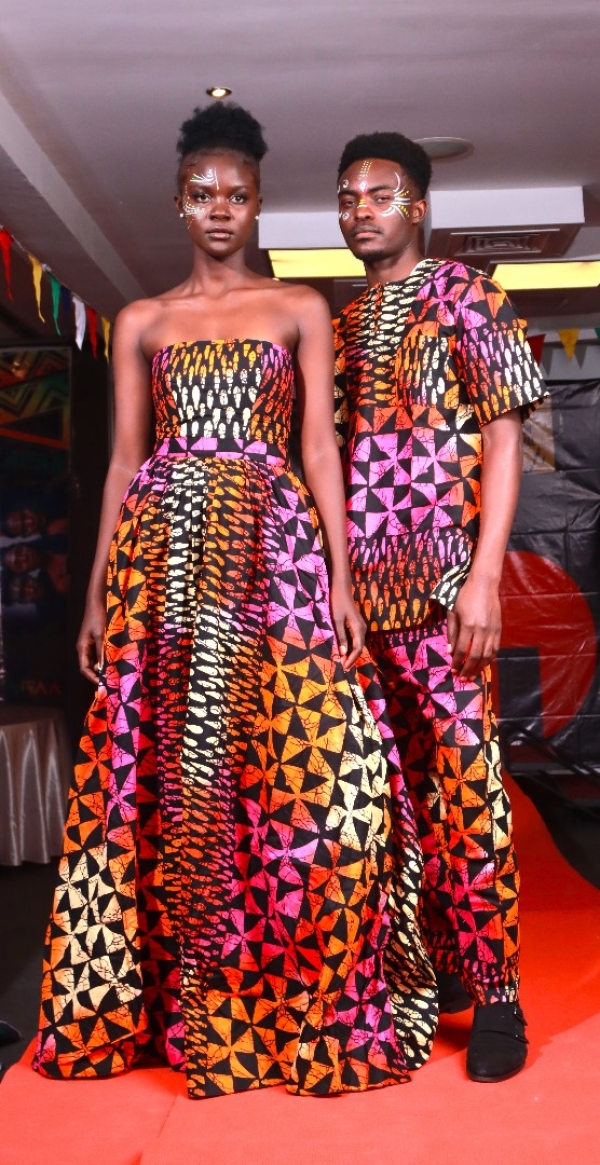
![[PHOTO: A model on the runway in the Novelty Fashion Experience 2023 . Collection made by Shema Gaetan ]](/media/k2/items/cache/b48f2c03bbd159814922841bfb3fe7d7_Generic.jpg)
![A T-shirt made by Sonia Mugabo- Fashion and Elections in Rwanda: A Longstanding Tradition [PHOTO SM]](/media/k2/items/cache/9ad74ebcc3d83e86bcc0098026ed5e9f_Generic.jpg)
![FIFA President Gianni Infantino and his wife Leena show off the Ijezi at the just concluded 73rd FIFA Congress in Kigali. [PHOTO NT]](/media/k2/items/cache/83a9554230ed6e6cccfe522a2a4bd53e_Generic.jpg)
